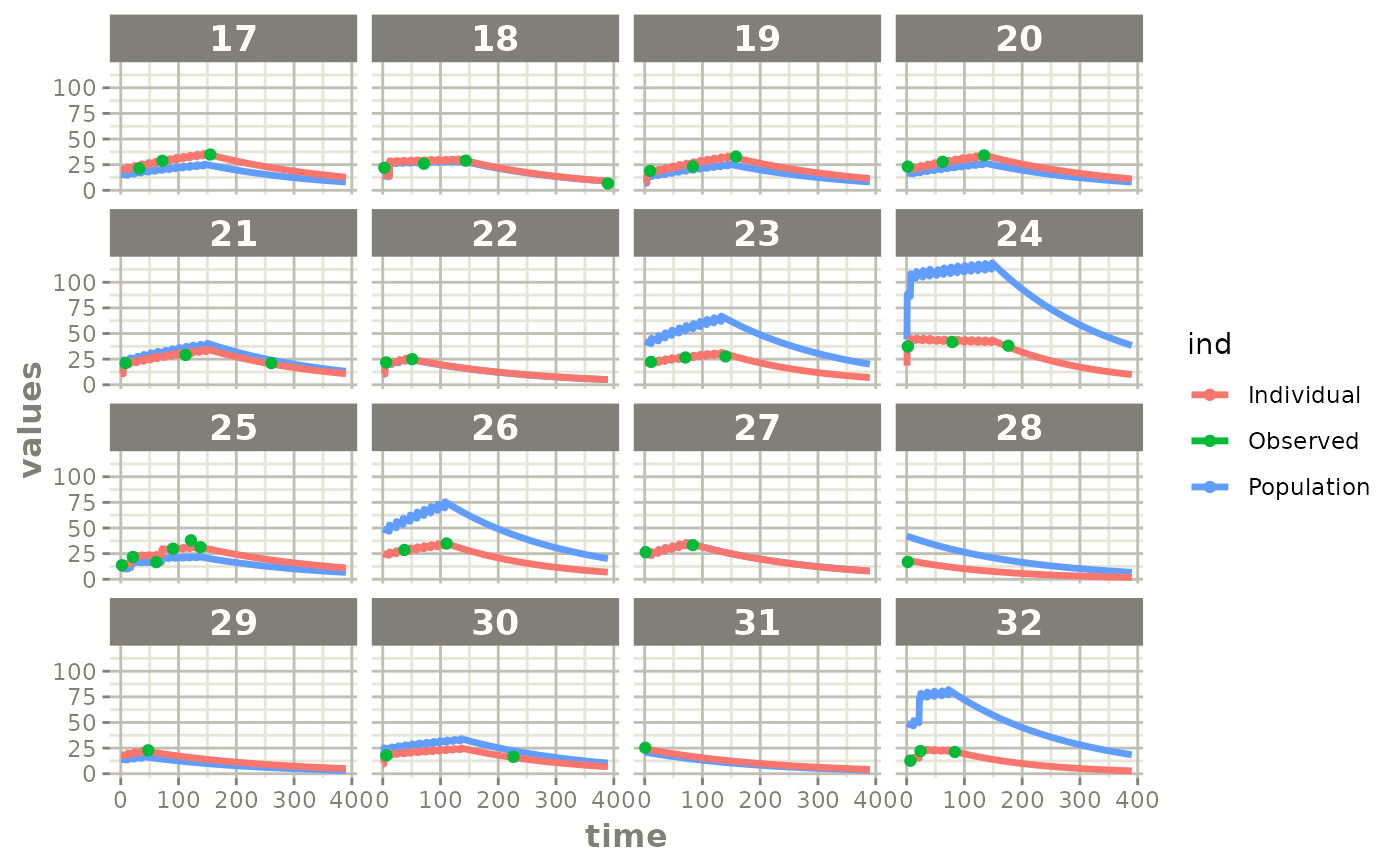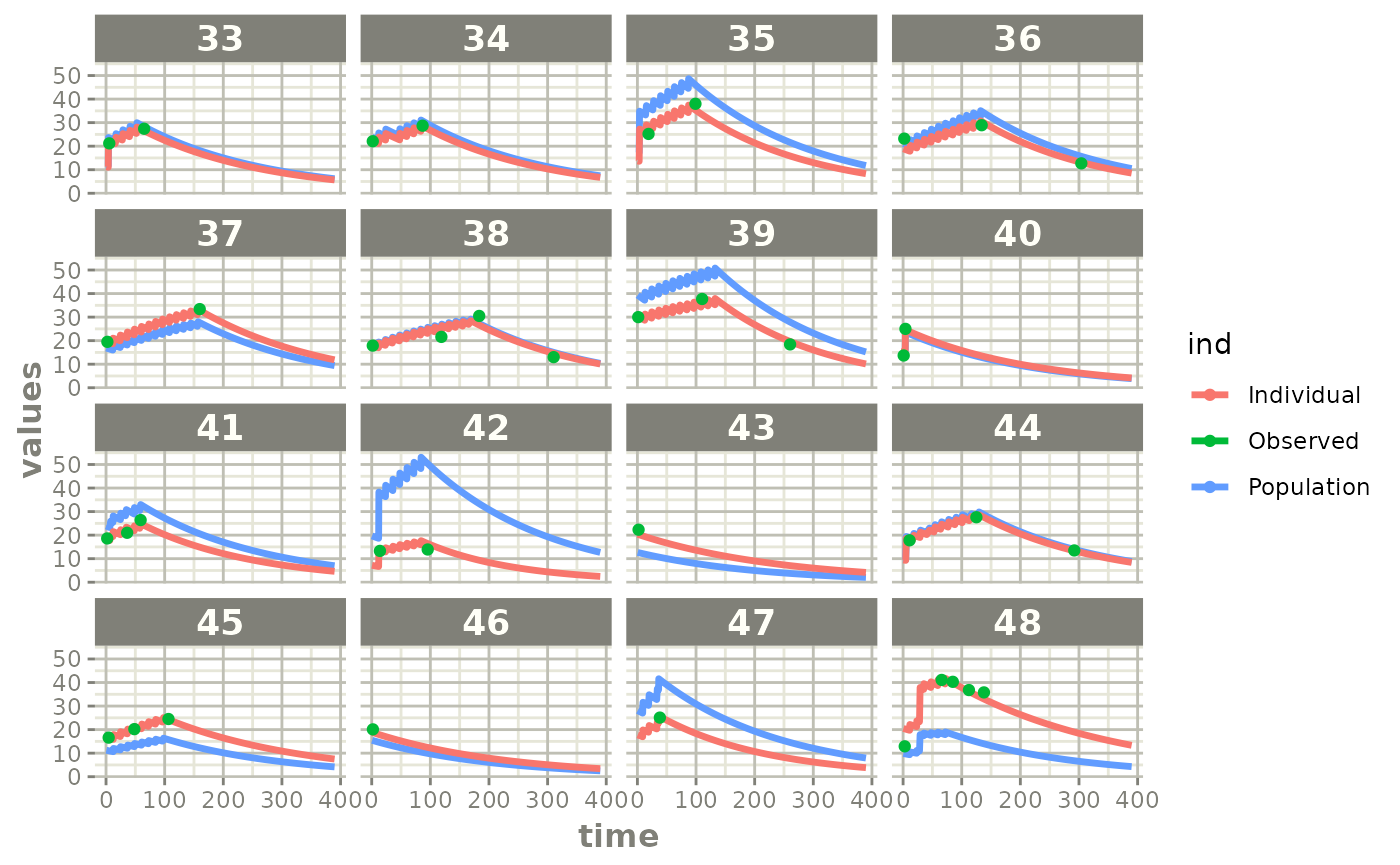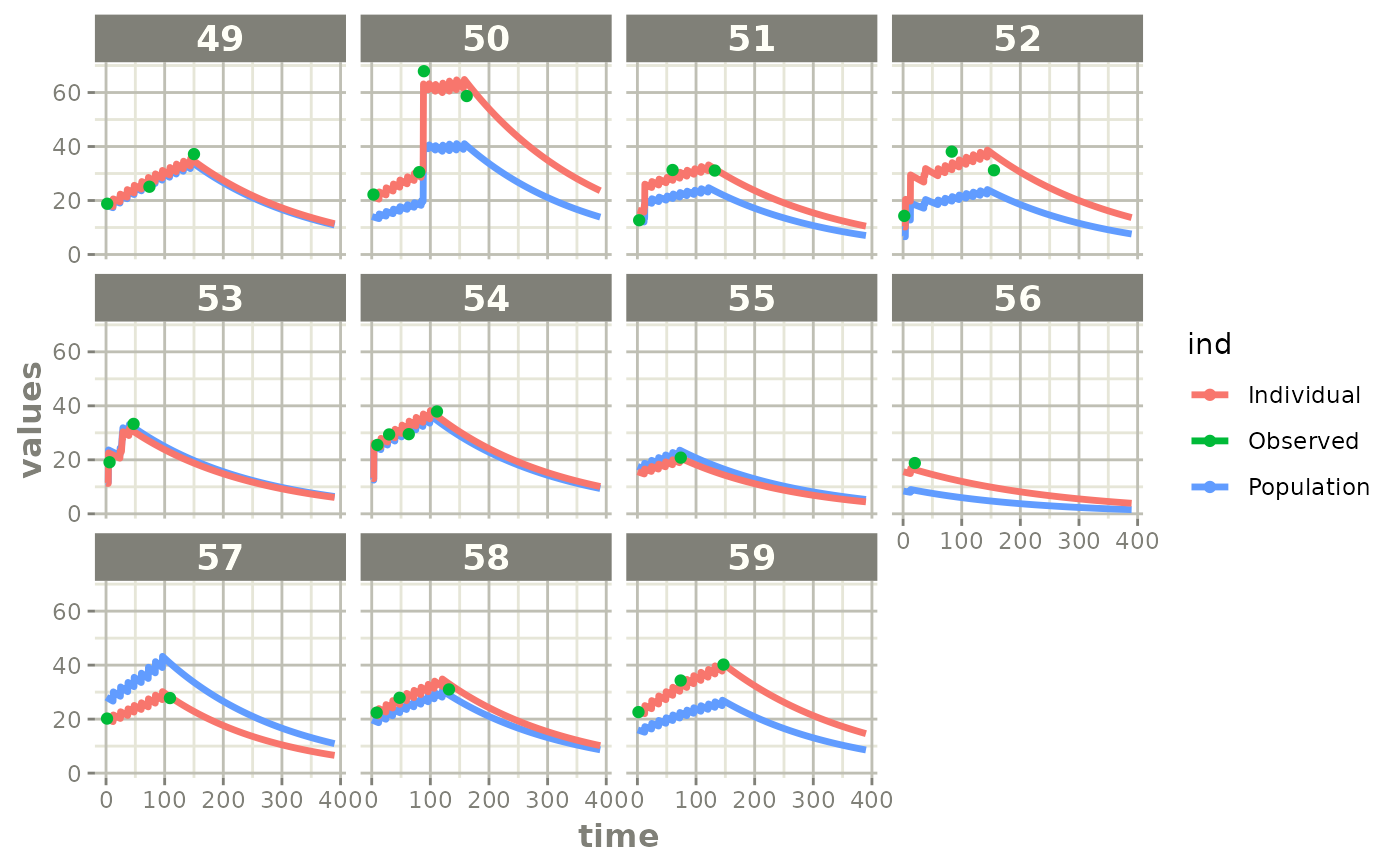Example Model: Phenobarbitol with correlations
2022-03-26
Source:vignettes/addingCovariances.Rmd
addingCovariances.Rmd
nlmixr
Adding Covariances between random effects
You can simply add co-variances between two random effects by adding the effects together in the model specification block, that is eta.cl+eta.v ~. After that statement, you specify the lower triangular matrix of the fit with c().
An example of this is the phenobarbitol data:
Model Specification
pheno <- function() {
ini({
tcl <- log(0.008) # typical value of clearance
tv <- log(0.6) # typical value of volume
## var(eta.cl)
eta.cl + eta.v ~ c(1,
0.01, 1) ## cov(eta.cl, eta.v), var(eta.v)
# interindividual variability on clearance and volume
add.err <- 0.1 # residual variability
})
model({
cl <- exp(tcl + eta.cl) # individual value of clearance
v <- exp(tv + eta.v) # individual value of volume
ke <- cl / v # elimination rate constant
d/dt(A1) = - ke * A1 # model differential equation
cp = A1 / v # concentration in plasma
cp ~ add(add.err) # define error model
})
}Fit with SAEM
fit <- nlmixr(pheno, pheno_sd, "saem",
control=list(print=0),
table=list(cwres=TRUE, npde=TRUE))
#> [====|====|====|====|====|====|====|====|====|====] 0:00:00
#>
#> [====|====|====|====|====|====|====|====|====|====] 0:00:00
#>
#> [====|====|====|====|====|====|====|====|====|====] 0:00:00
#>
#> [====|====|====|====|====|====|====|====|====|====] 0:00:00
#>
#> [====|====|====|====|====|====|====|====|====|====] 0:00:00
#>
#> [====|====|====|====|====|====|====|====|====|====] 0:00:00
print(fit)
#> ── nlmixr SAEM(ODE); OBJF by FOCEi approximation fit ───────────────────────────
#>
#> OBJF AIC BIC Log-likelihood Condition Number
#> FOCEi 689.2758 986.1467 1004.407 -487.0734 7.845486
#>
#> ── Time (sec $time): ───────────────────────────────────────────────────────────
#>
#> saem setup table cwres covariance other
#> elapsed 7.828 3.108015 0.987 4.123 0.019 1.074985
#>
#> ── Population Parameters ($parFixed or $parFixedDf): ───────────────────────────
#>
#> Parameter Est. SE %RSE Back-transformed(95%CI)
#> tcl typical value of clearance -5.01 0.077 1.54 0.00666 (0.00573, 0.00775)
#> tv typical value of volume 0.351 0.053 15.1 1.42 (1.28, 1.58)
#> add.err residual variability 2.84 2.84
#> BSV(CV%) Shrink(SD)%
#> tcl 54.7 1.78%
#> tv 40.3 1.21%
#> add.err
#>
#> Covariance Type ($covMethod): linFim
#> Some strong fixed parameter correlations exist ($cor) :
#> cor:tv,tcl
#> 0.735
#>
#>
#> Correlations in between subject variability (BSV) matrix:
#> cor:eta.v,eta.cl
#> 0.987
#>
#>
#> Full BSV covariance ($omega) or correlation ($omegaR; diagonals=SDs)
#> Distribution stats (mean/skewness/kurtosis/p-value) available in $shrink
#>
#> ── Fit Data (object is a modified tibble): ─────────────────────────────────────
#> # A tibble: 155 × 24
#> ID TIME DV EPRED ERES NPDE NPD PRED RES WRES IPRED IRES
#> <fct> <dbl> <dbl> <dbl> <dbl> <dbl> <dbl> <dbl> <dbl> <dbl> <dbl> <dbl>
#> 1 1 2 17.3 18.7 -1.43 -0.403 -0.403 17.4 -0.132 -0.0180 18.4 -1.07
#> 2 1 112. 31 29.9 1.08 0.376 0.376 27.9 3.05 0.248 29.7 1.33
#> 3 2 2 9.7 10.8 -1.12 -1.01 -1.01 10.5 -0.759 -0.153 12.4 -2.65
#> # … with 152 more rows, and 12 more variables: IWRES <dbl>, CPRED <dbl>,
#> # CRES <dbl>, CWRES <dbl>, eta.cl <dbl>, eta.v <dbl>, A1 <dbl>, cl <dbl>,
#> # v <dbl>, ke <dbl>, tad <dbl>, dosenum <dbl>Basic Goodness of Fit Plots
plot(fit)
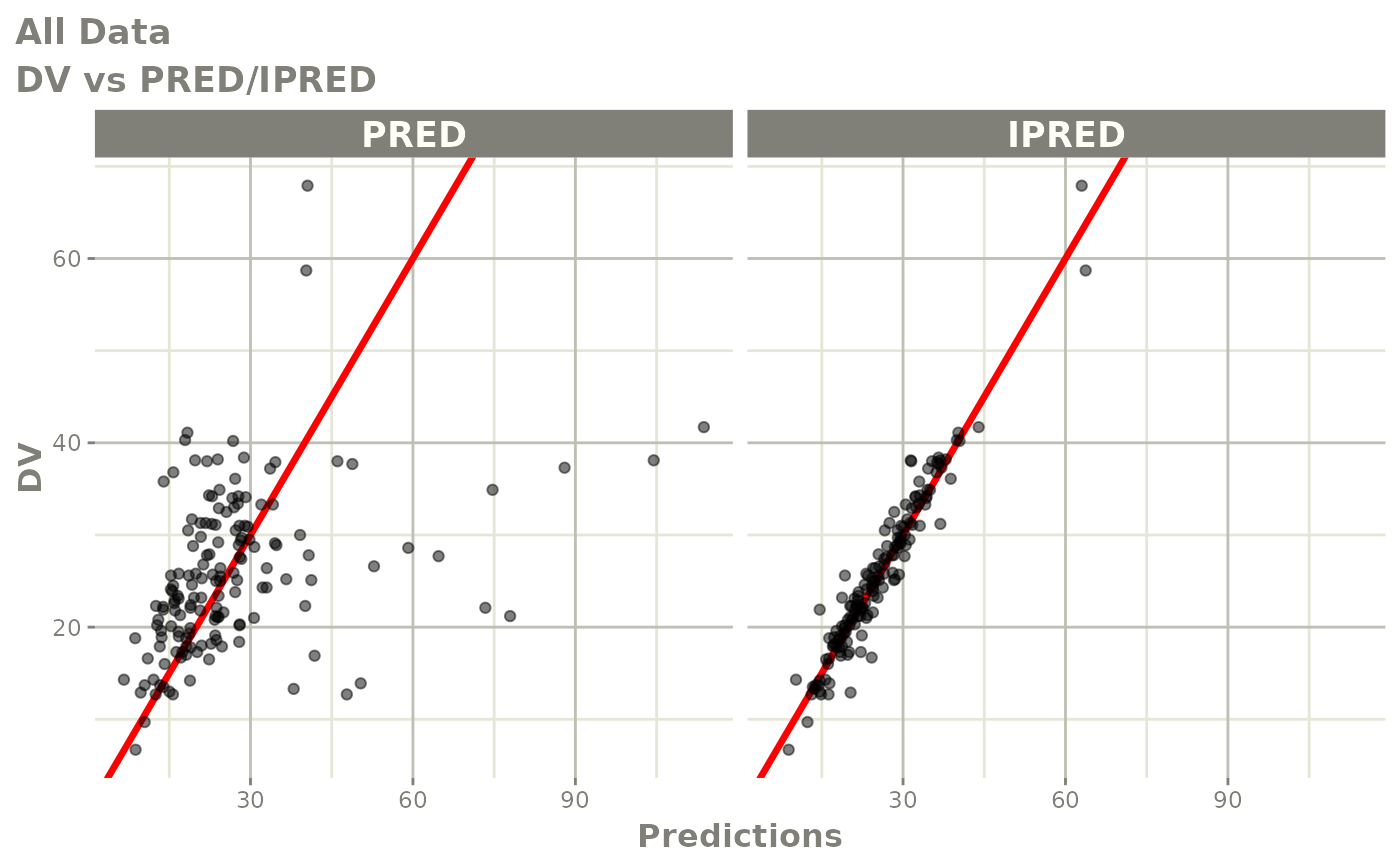
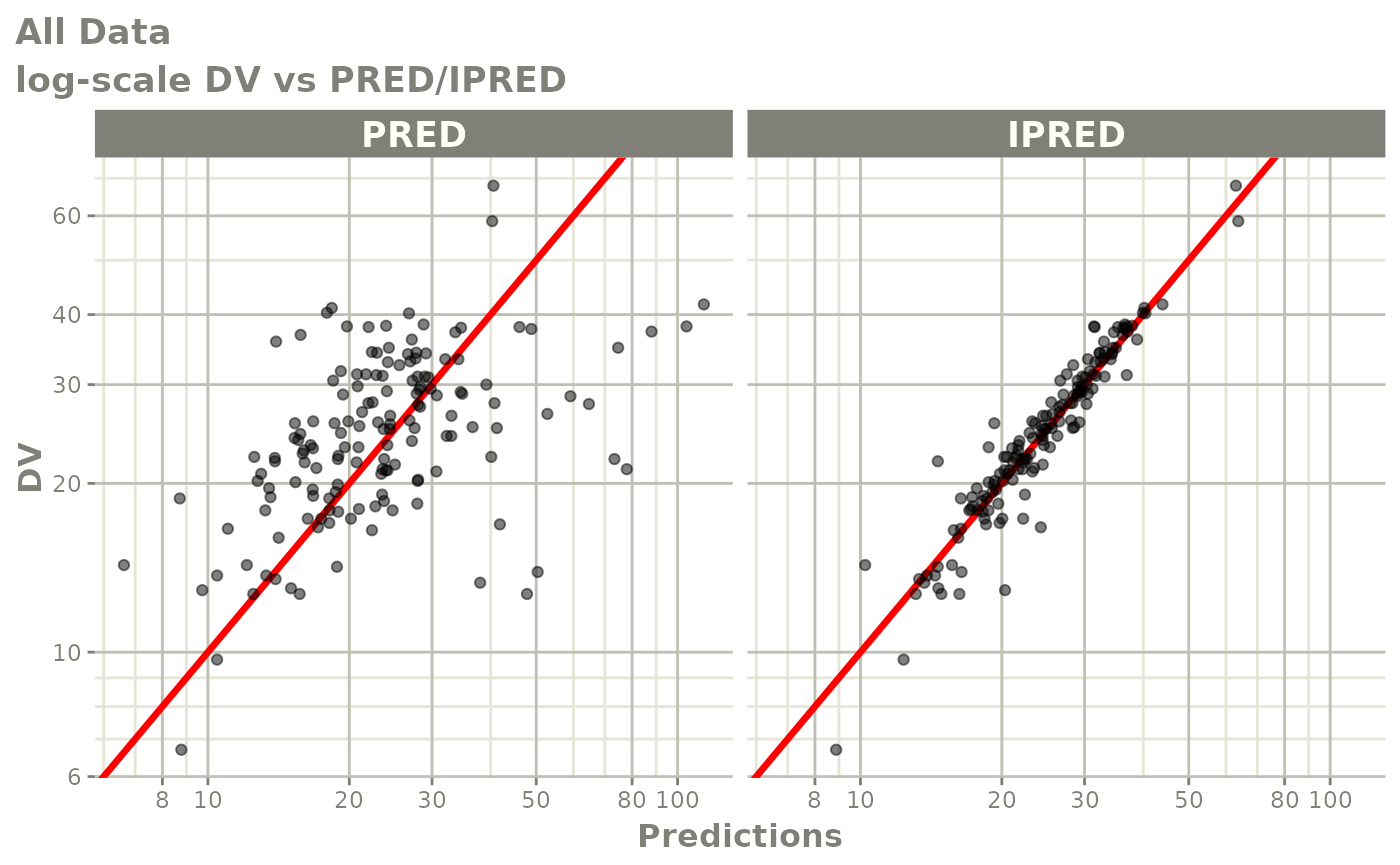
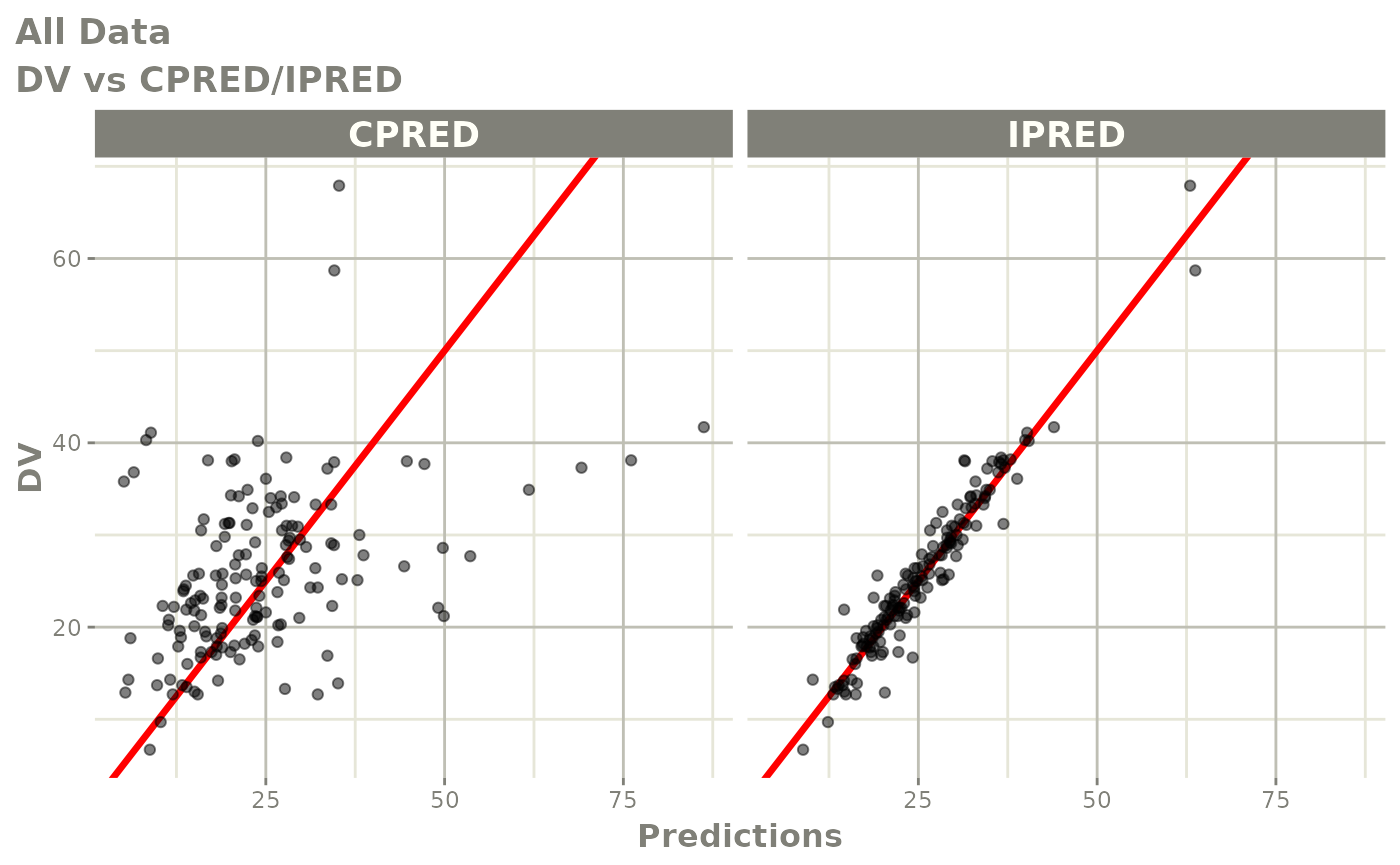
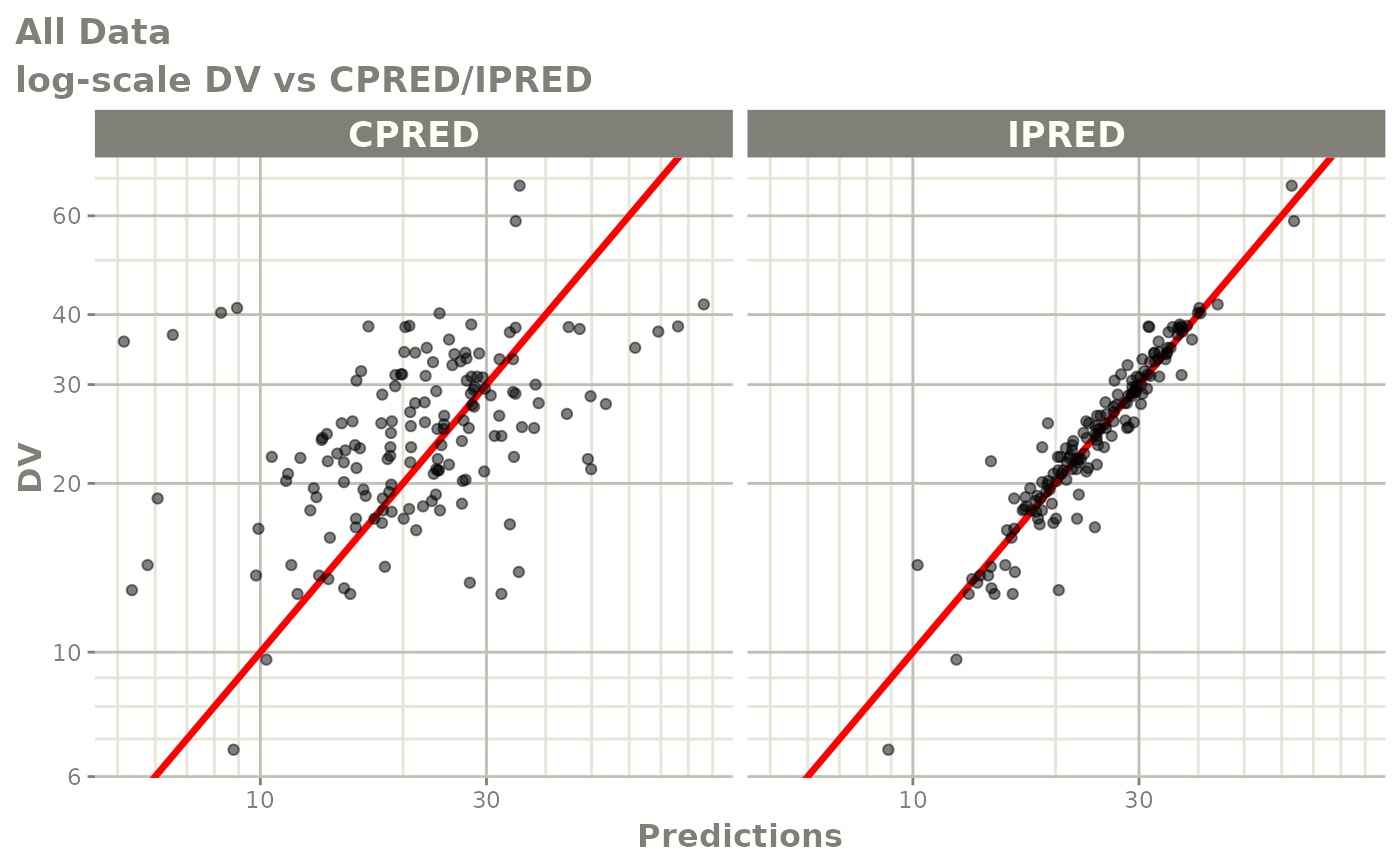
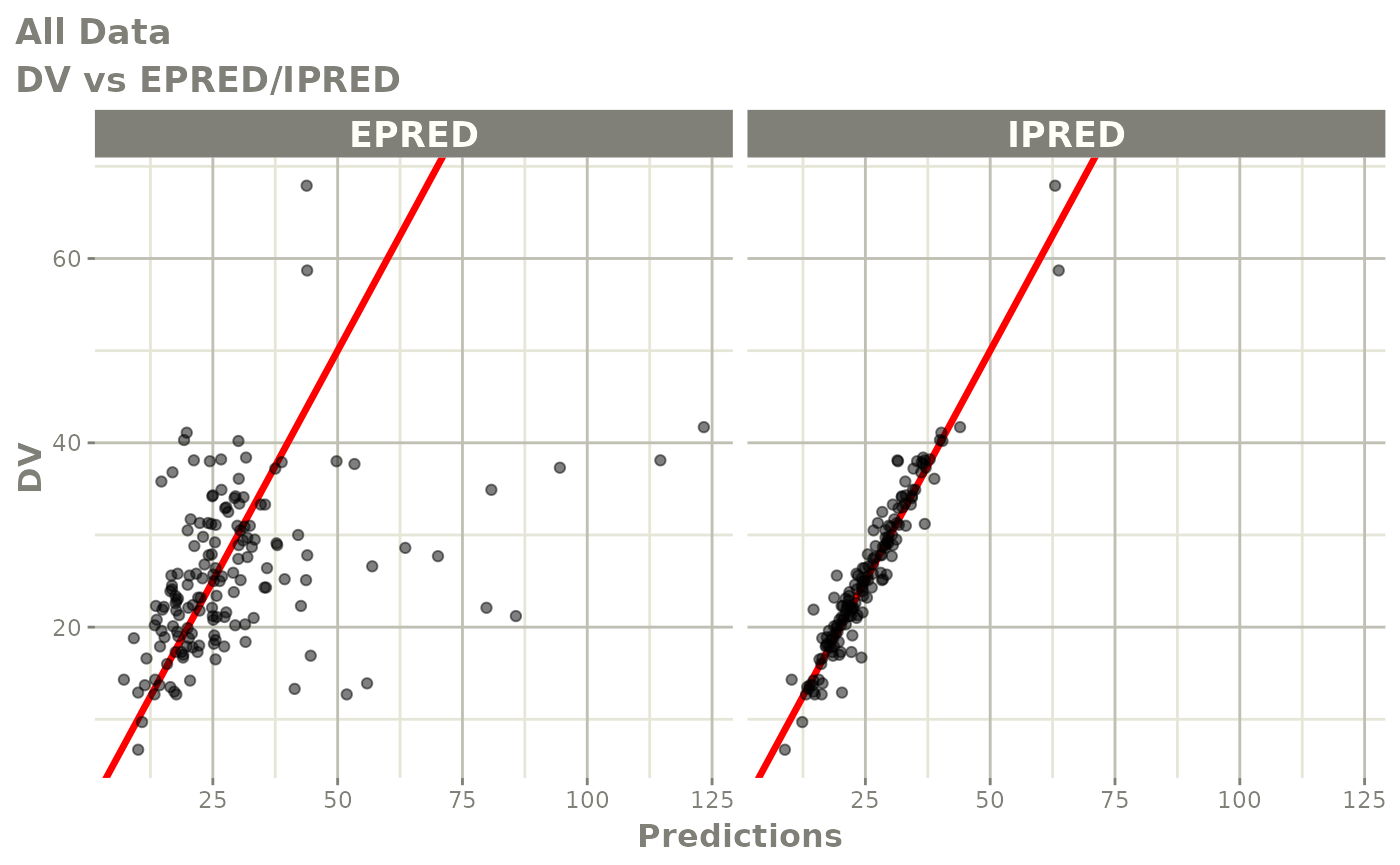
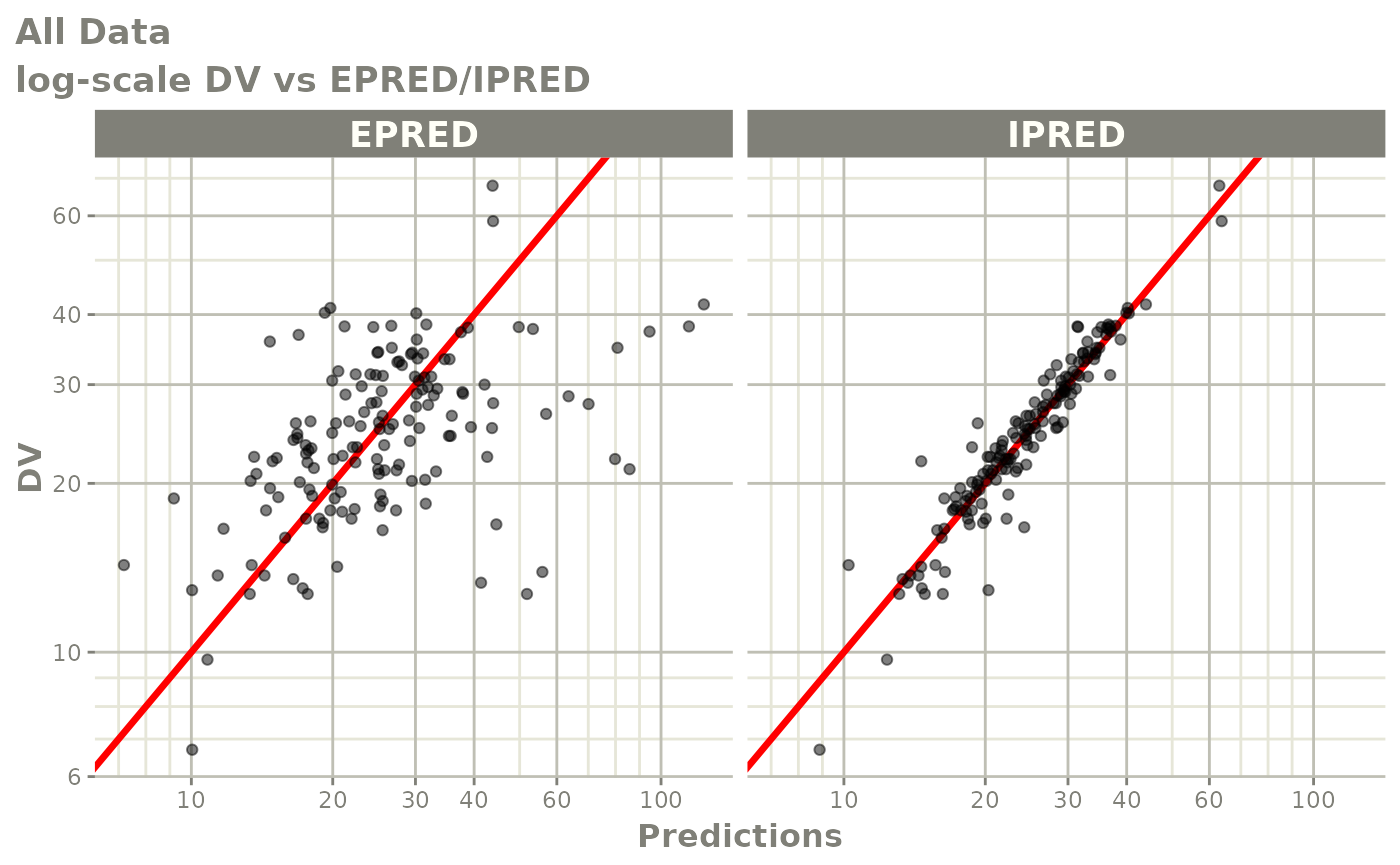
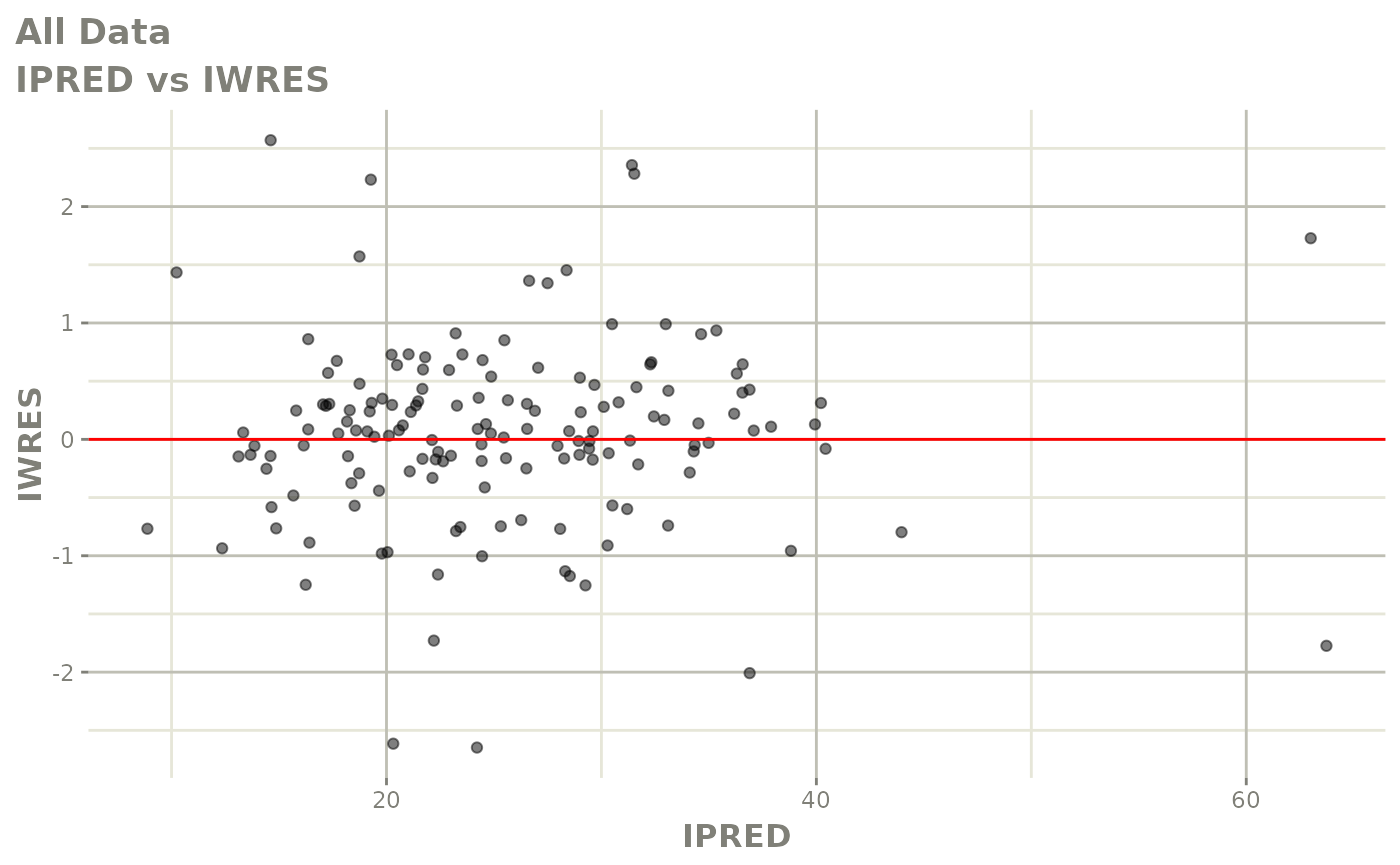
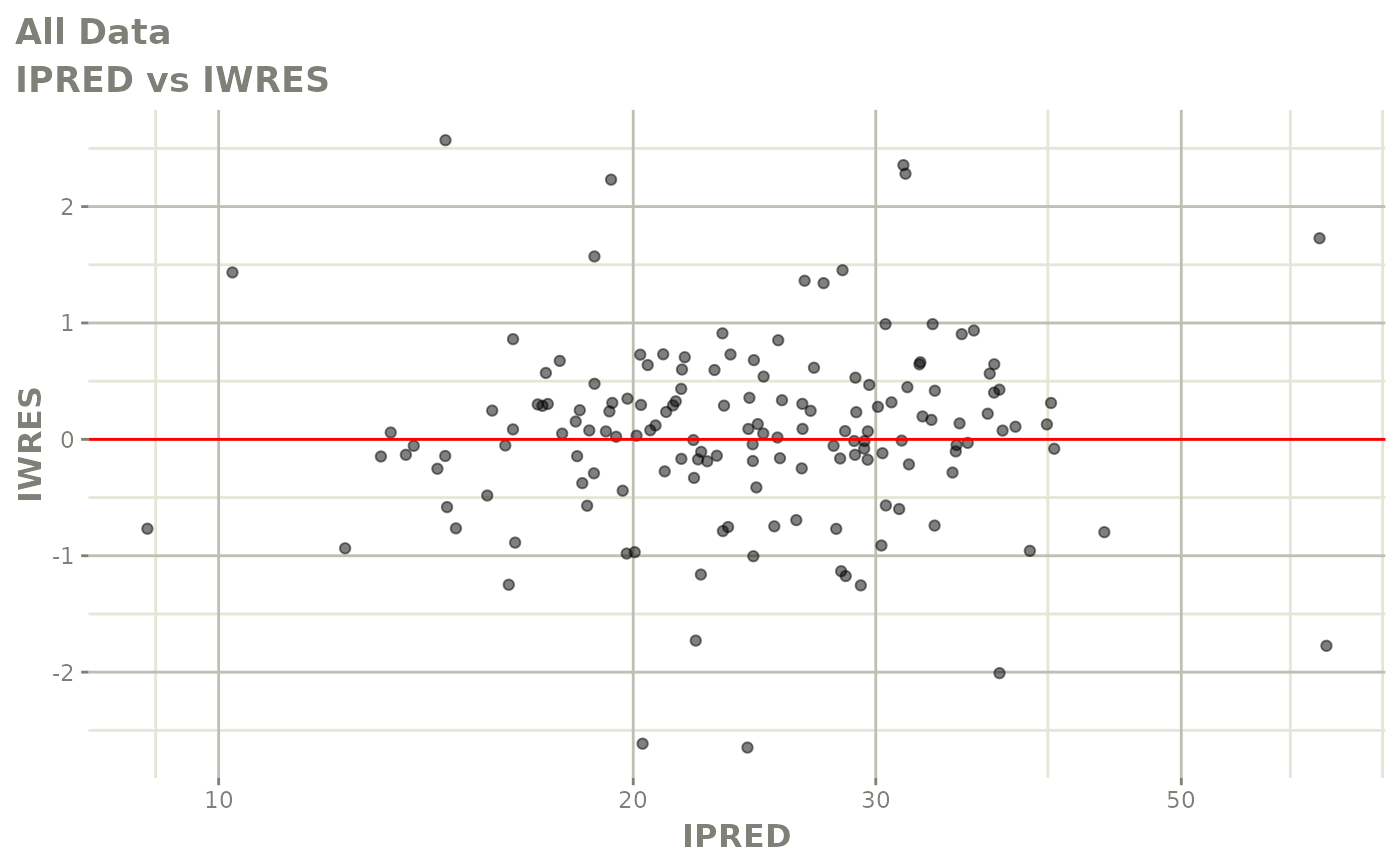
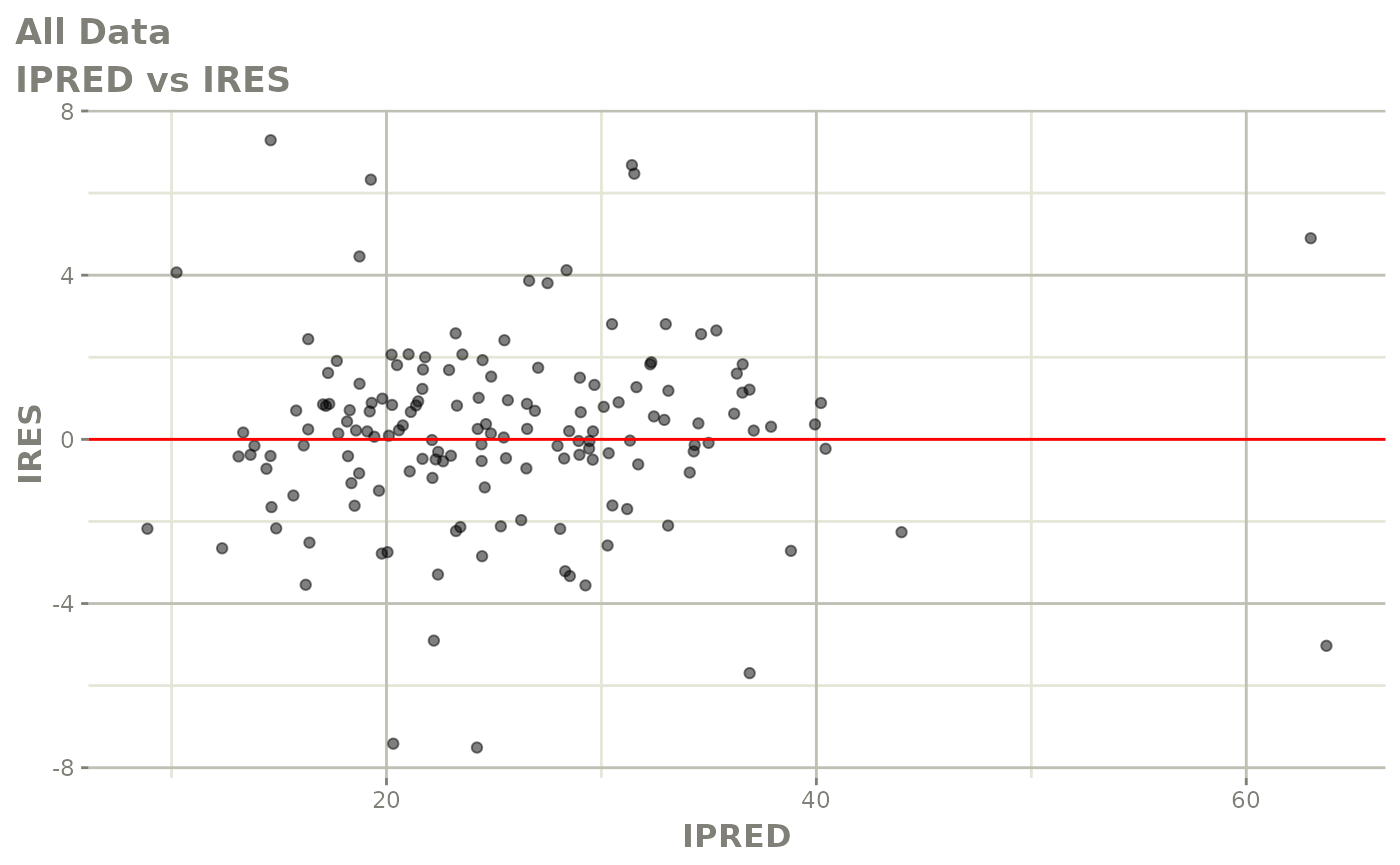
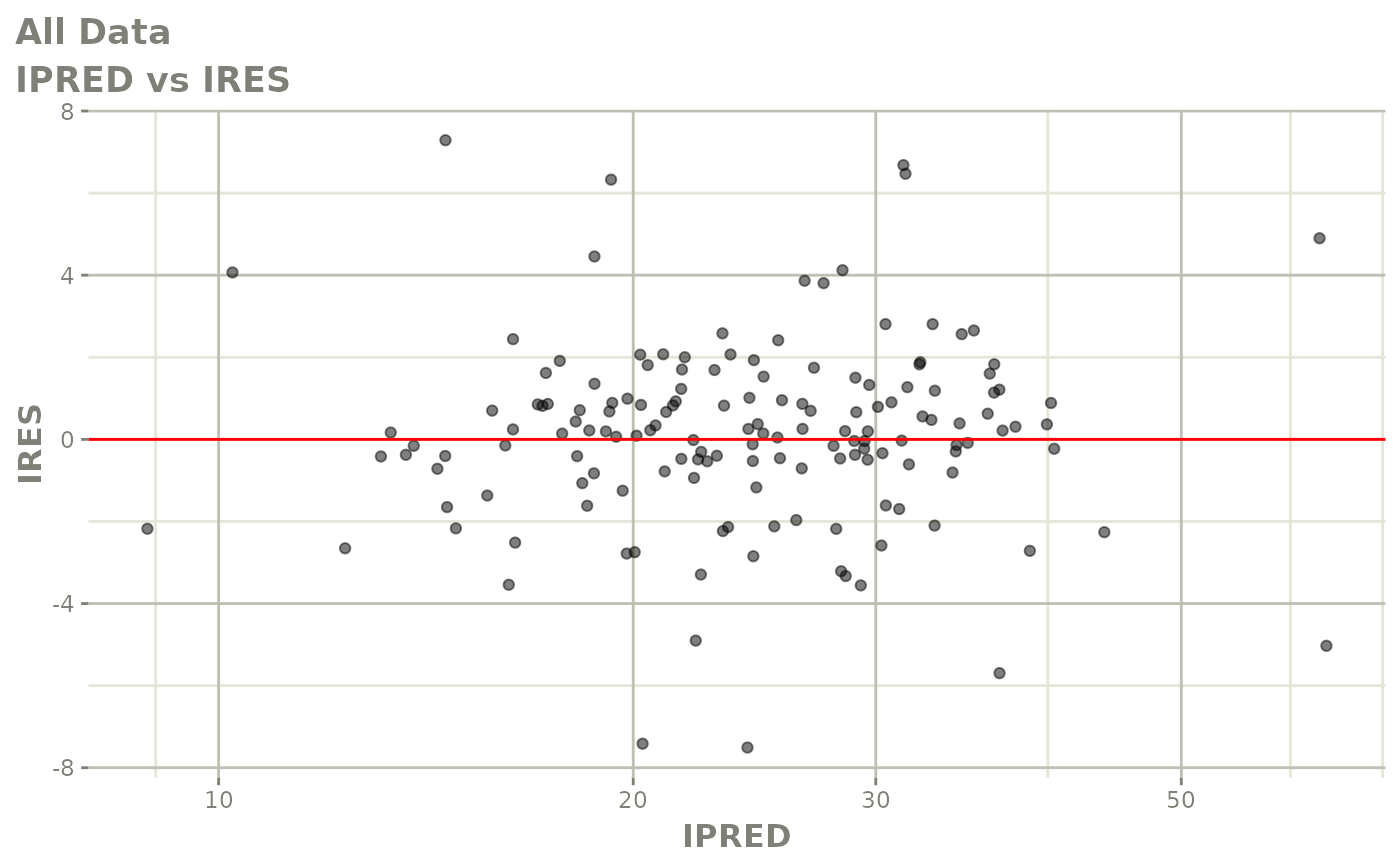
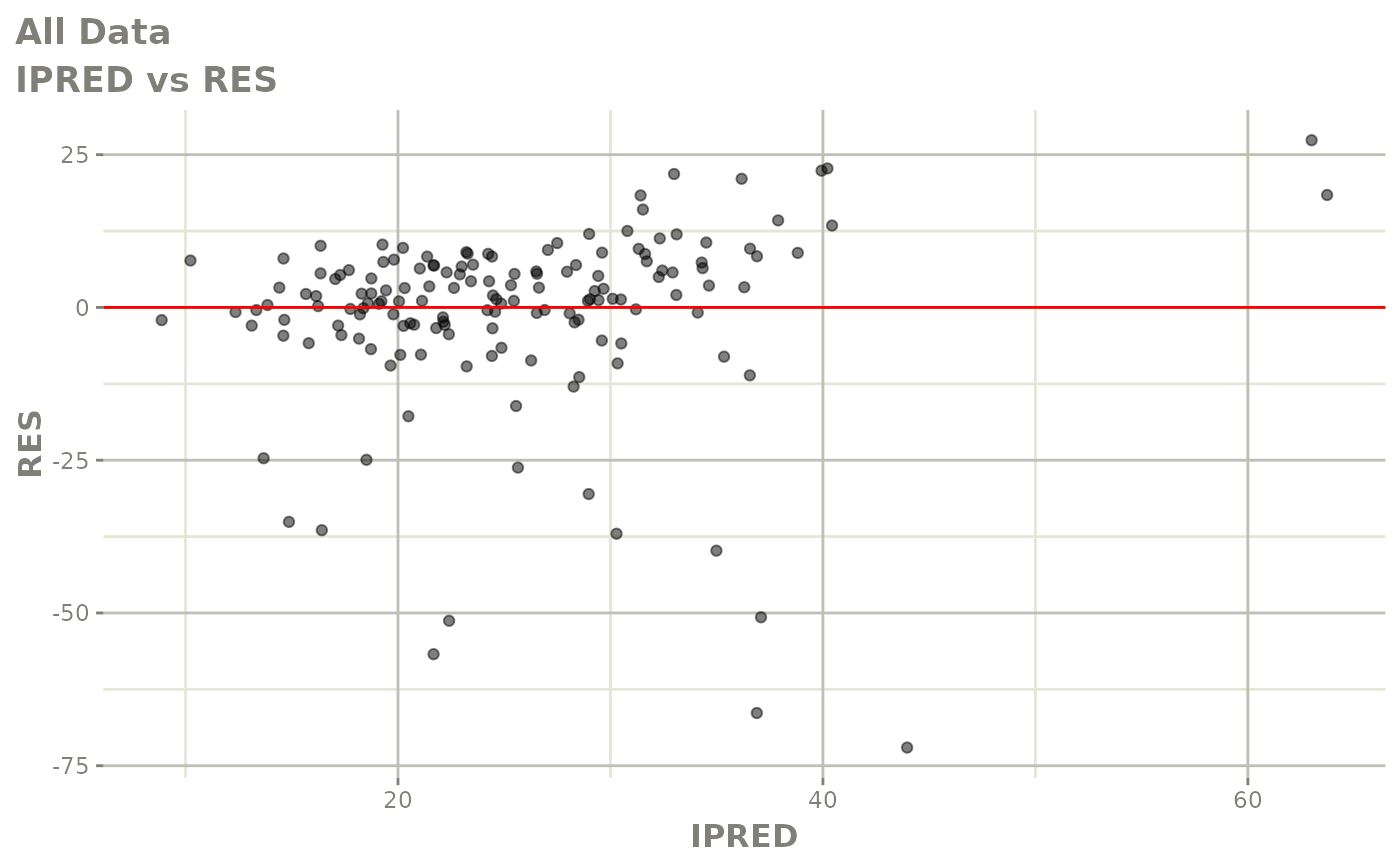
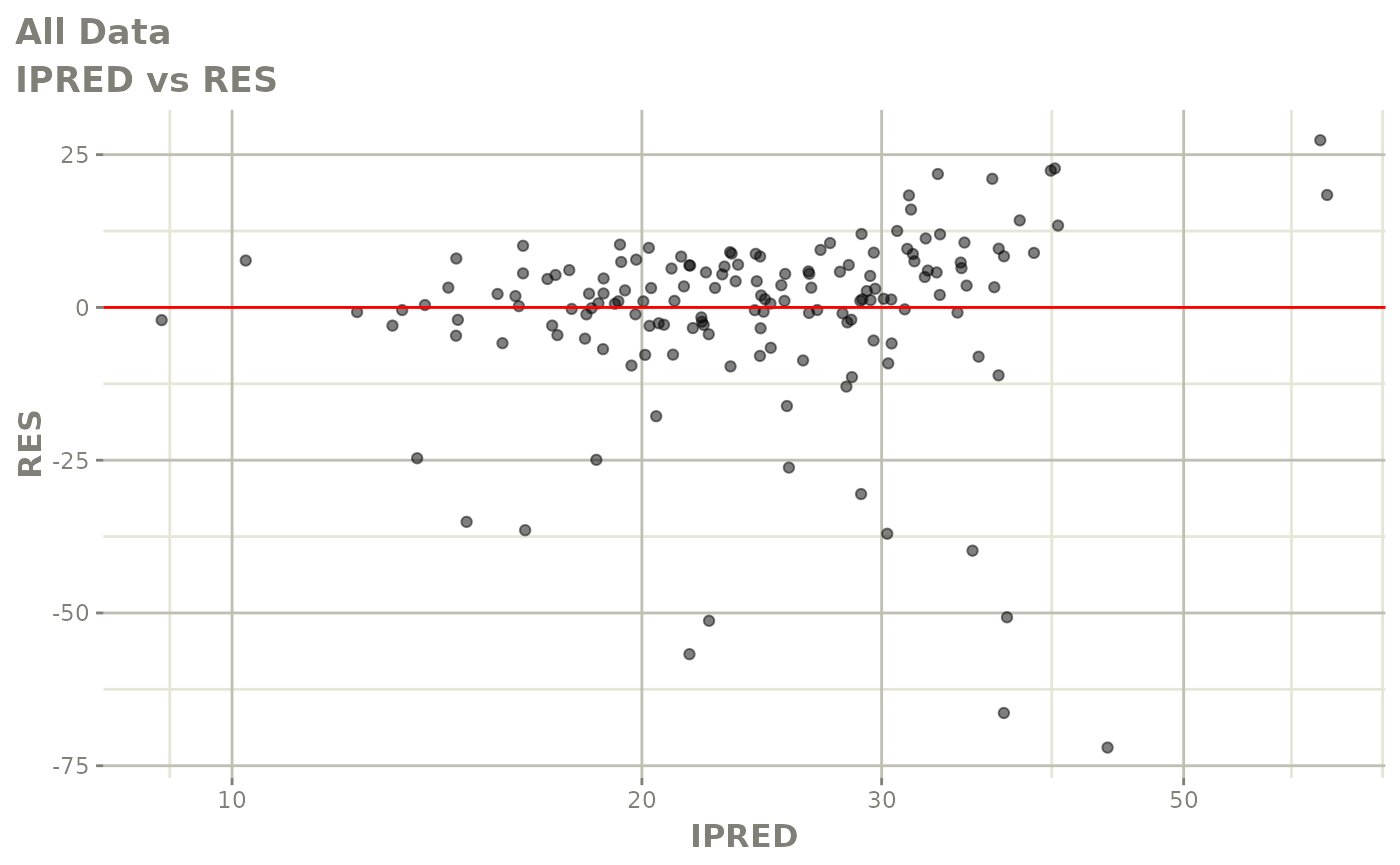
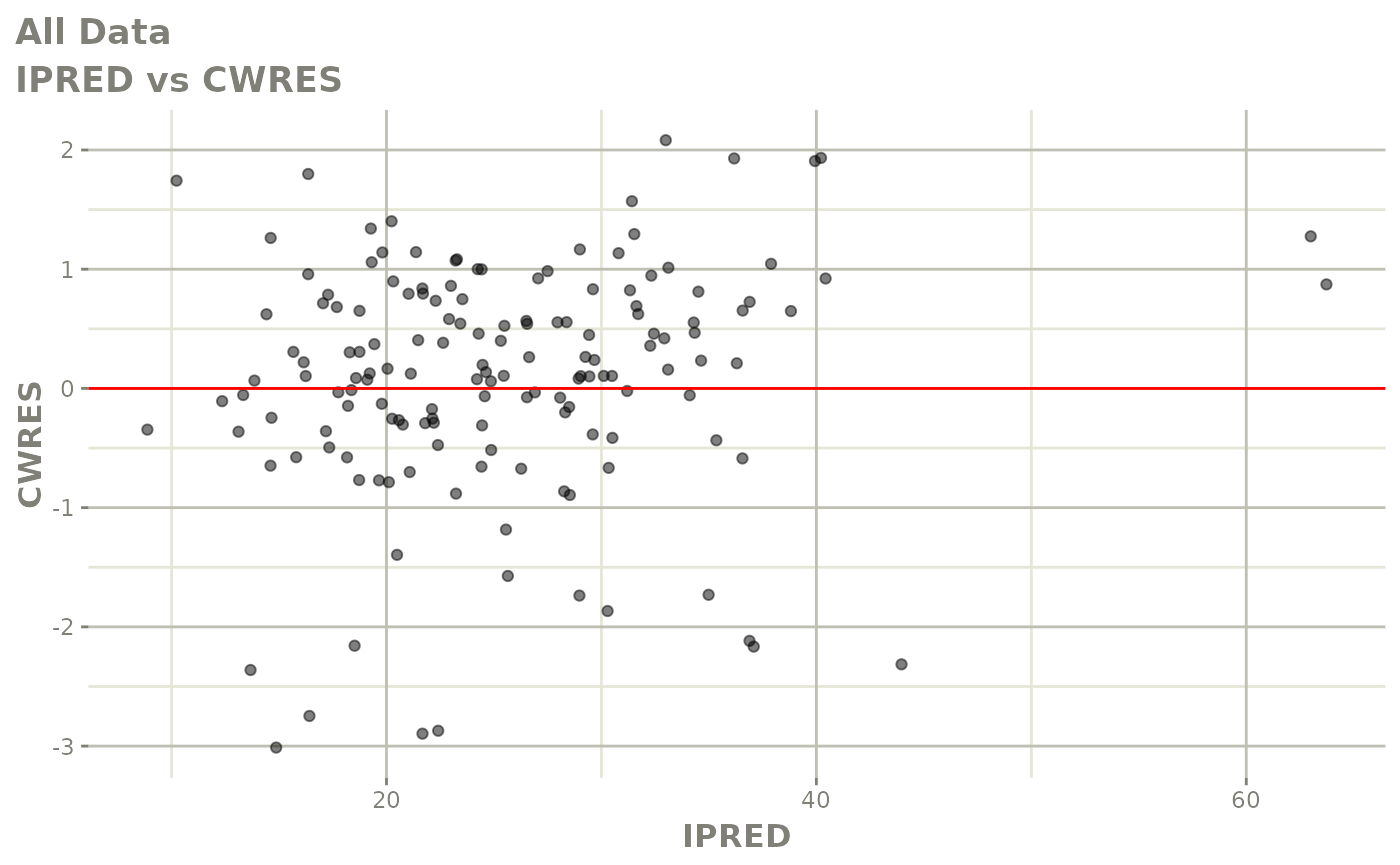
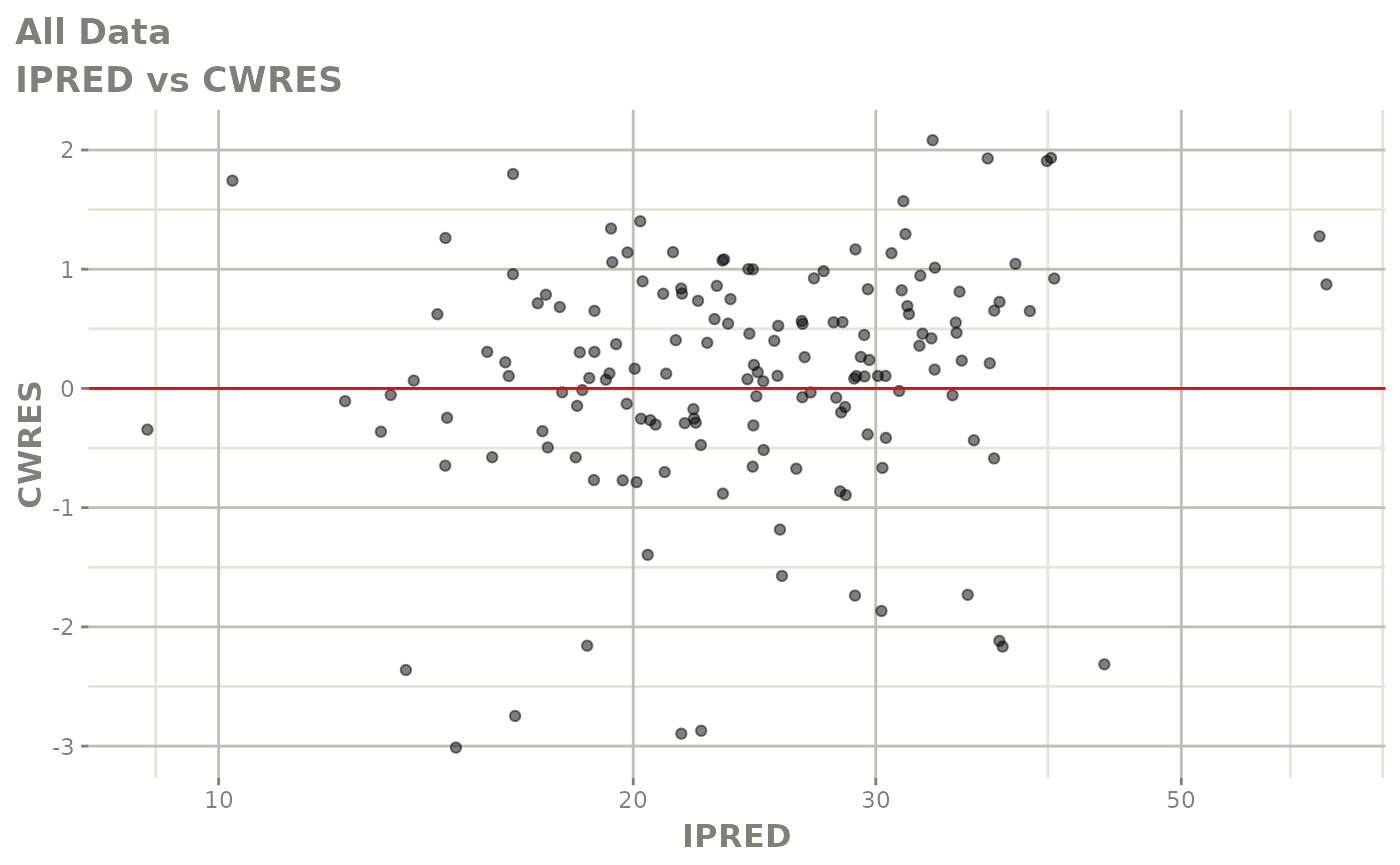
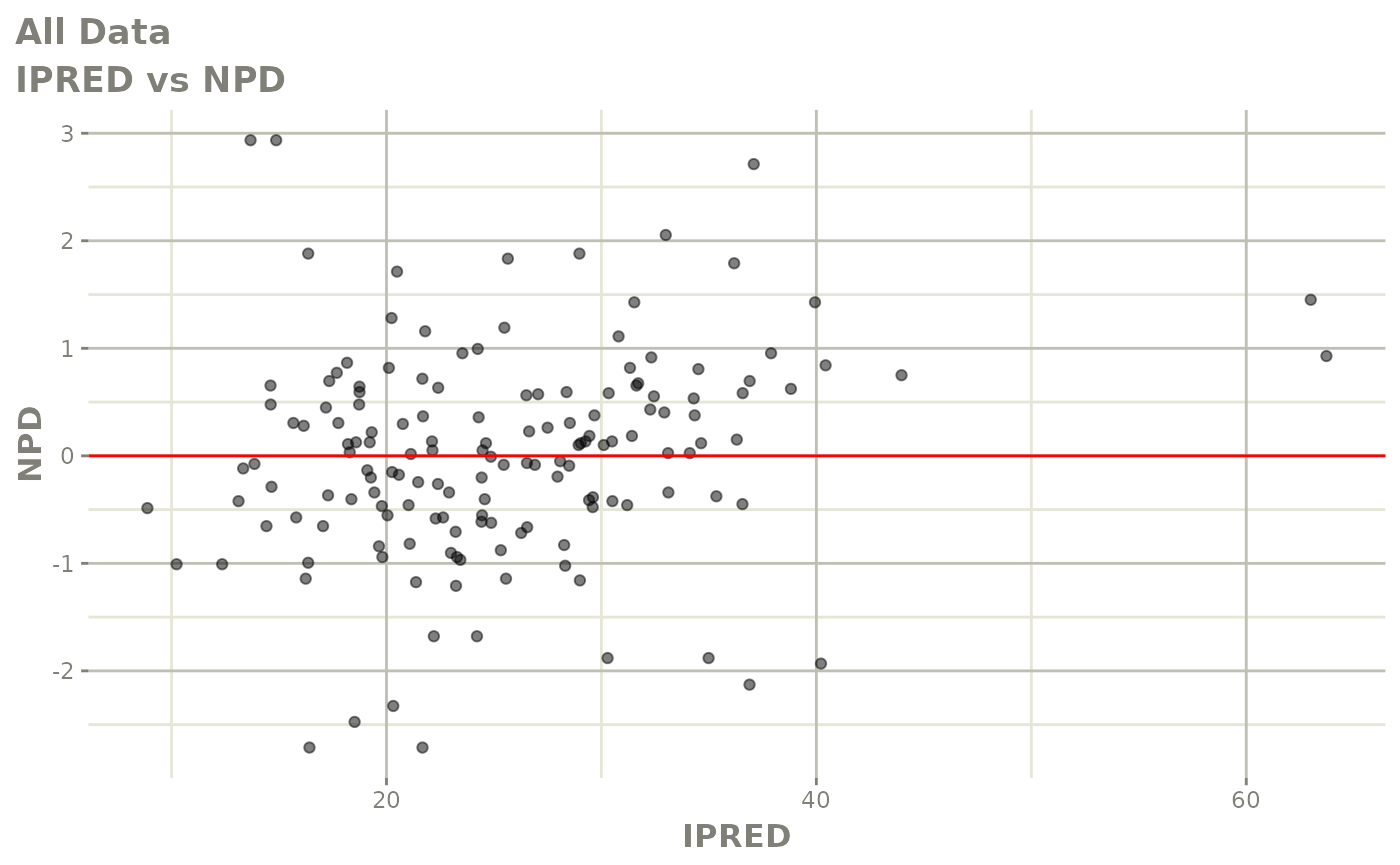
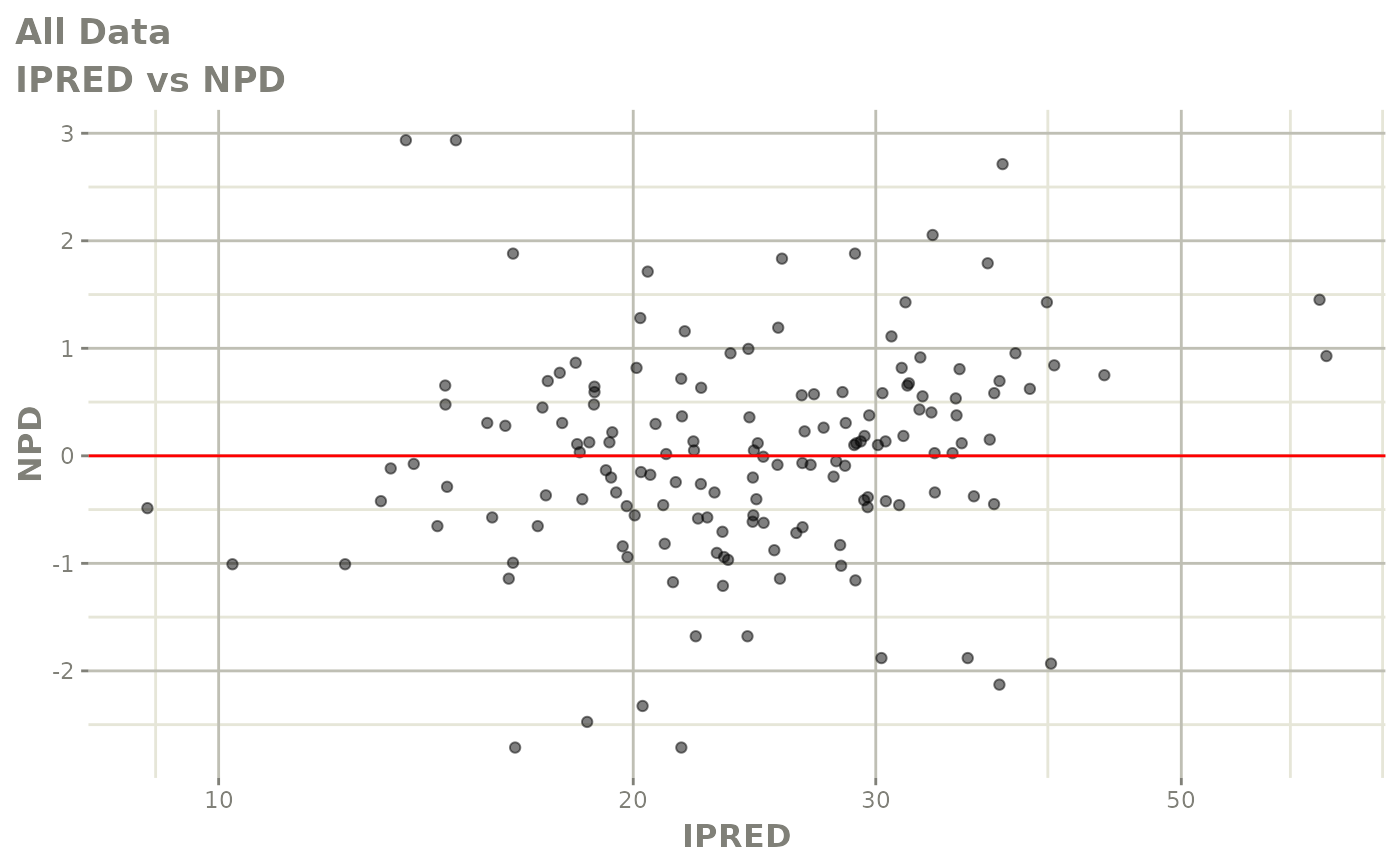
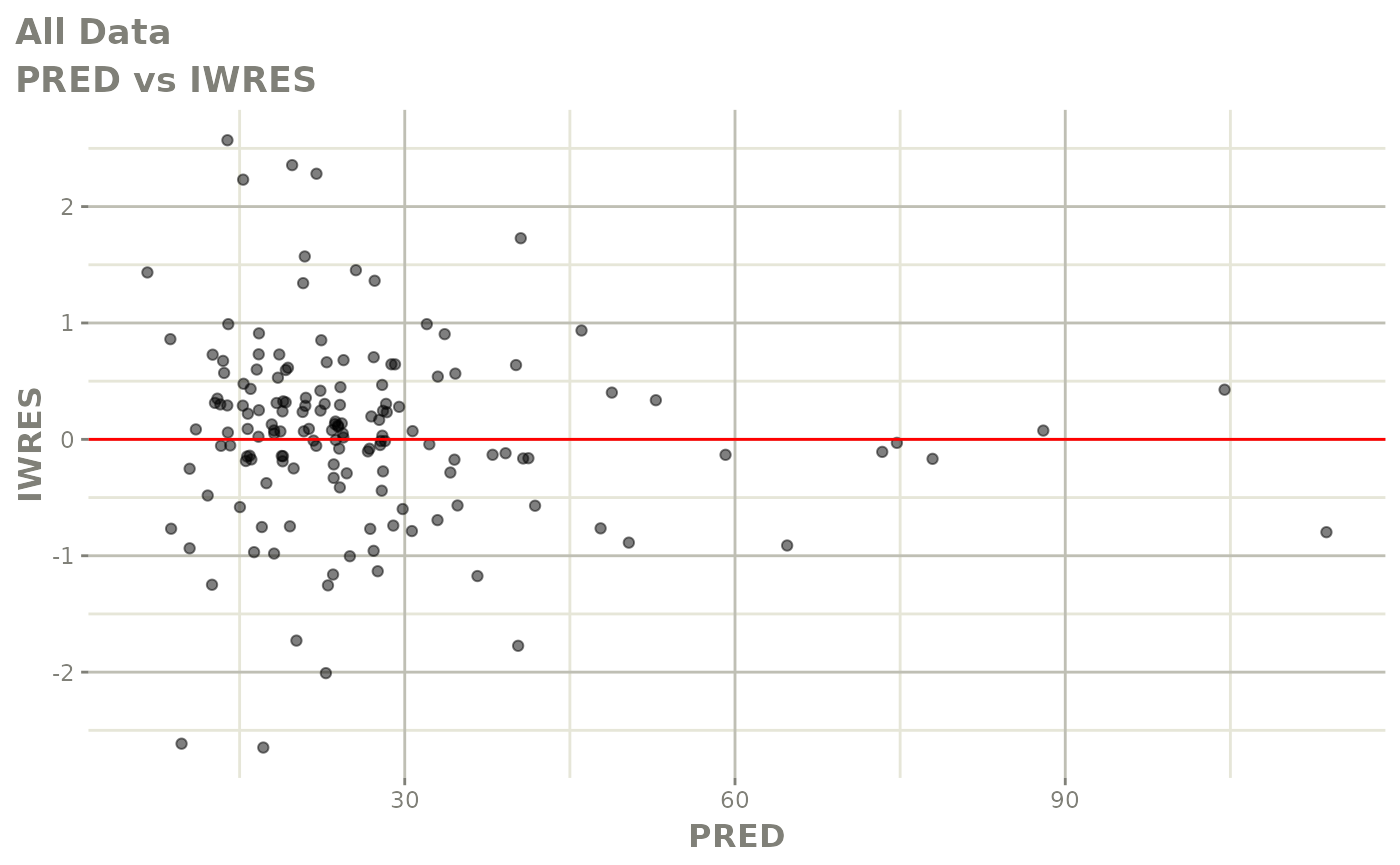
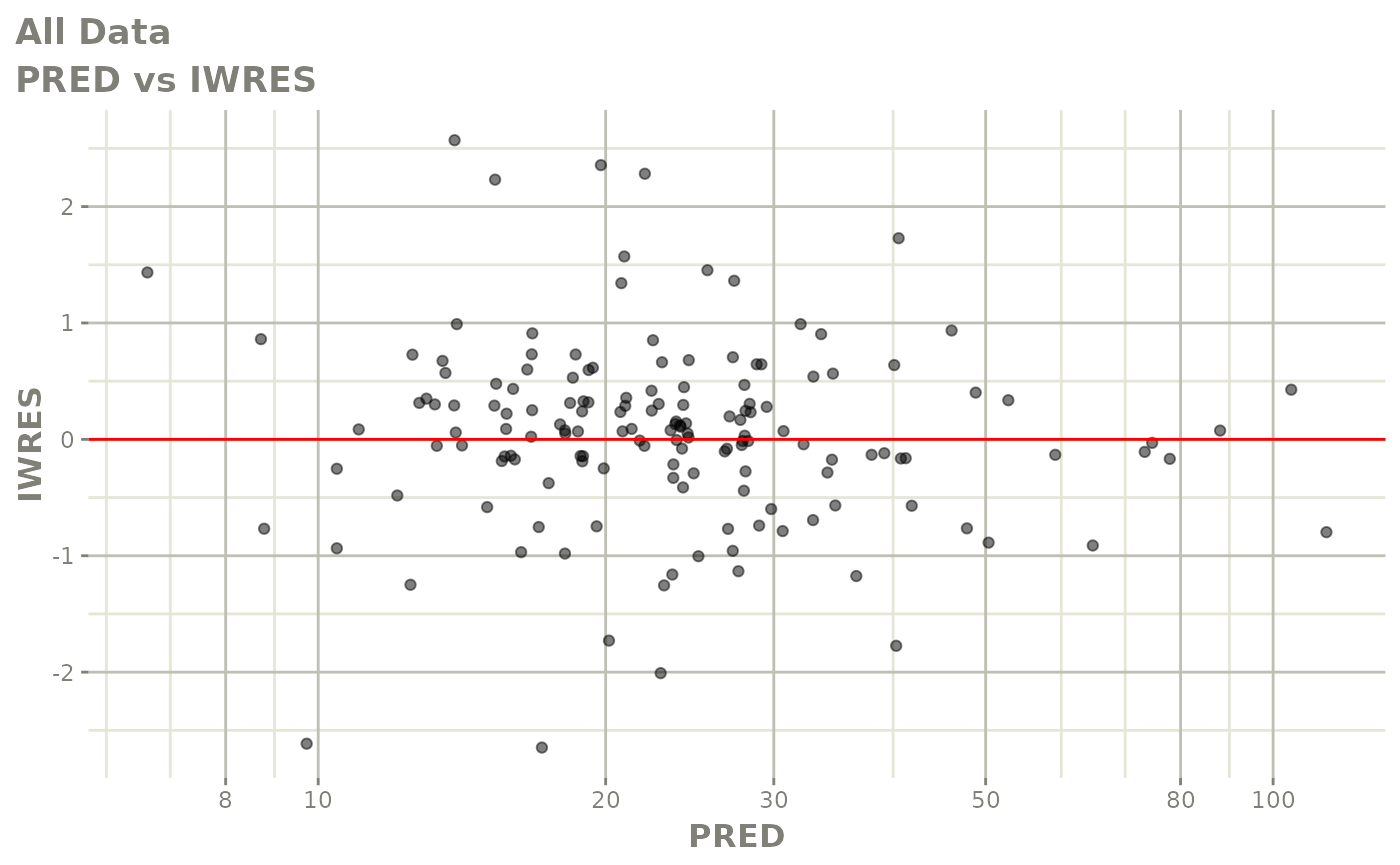
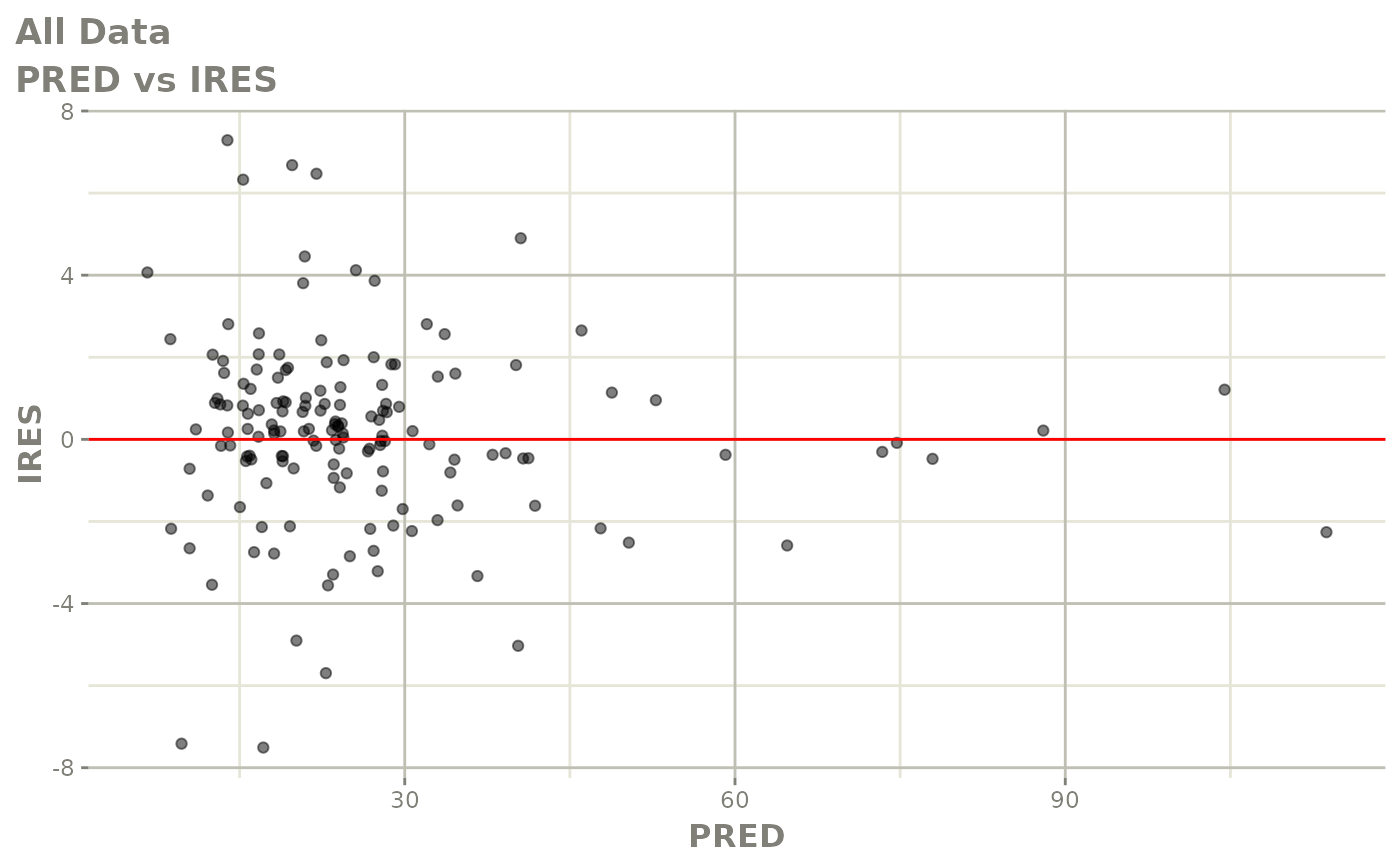
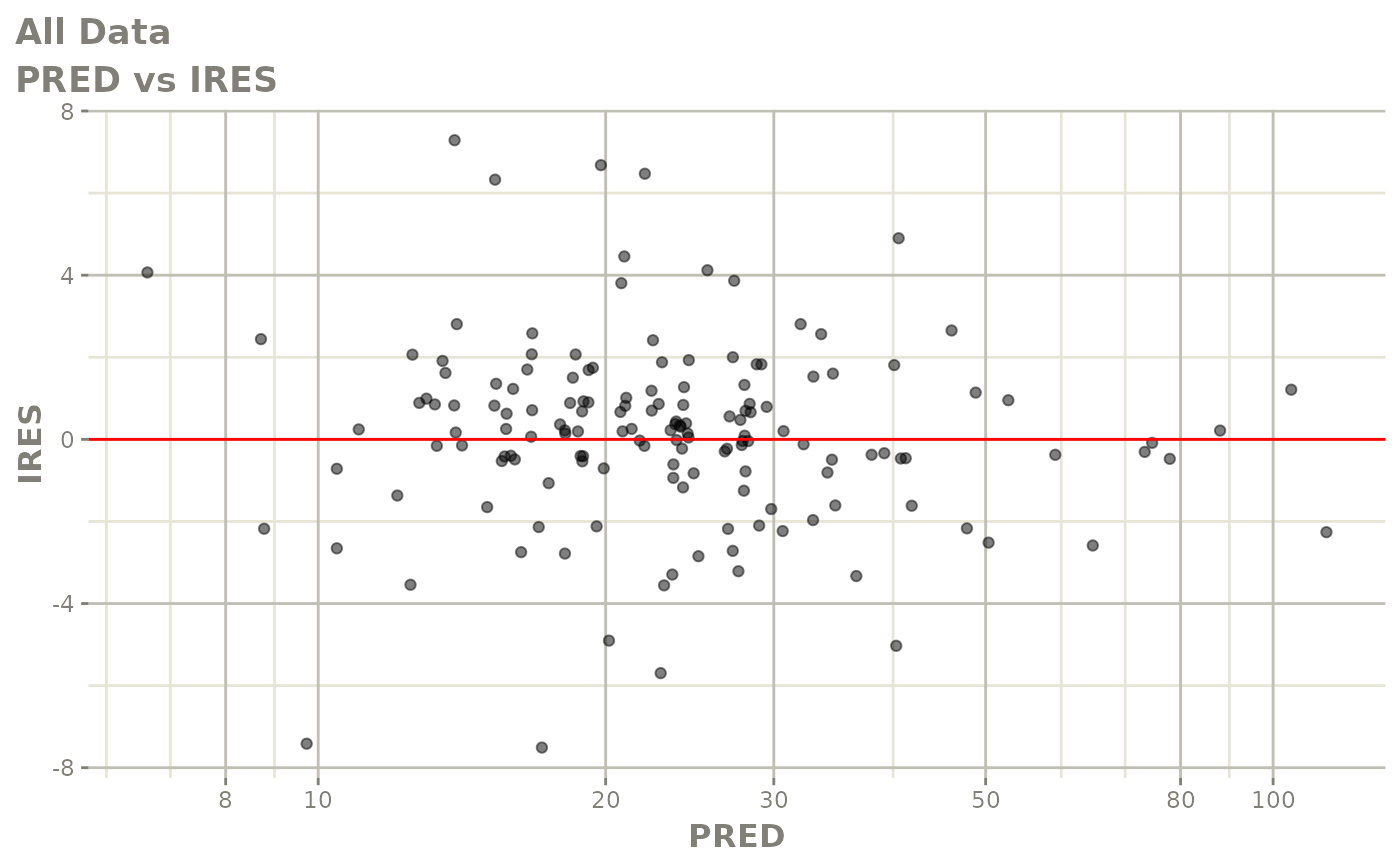
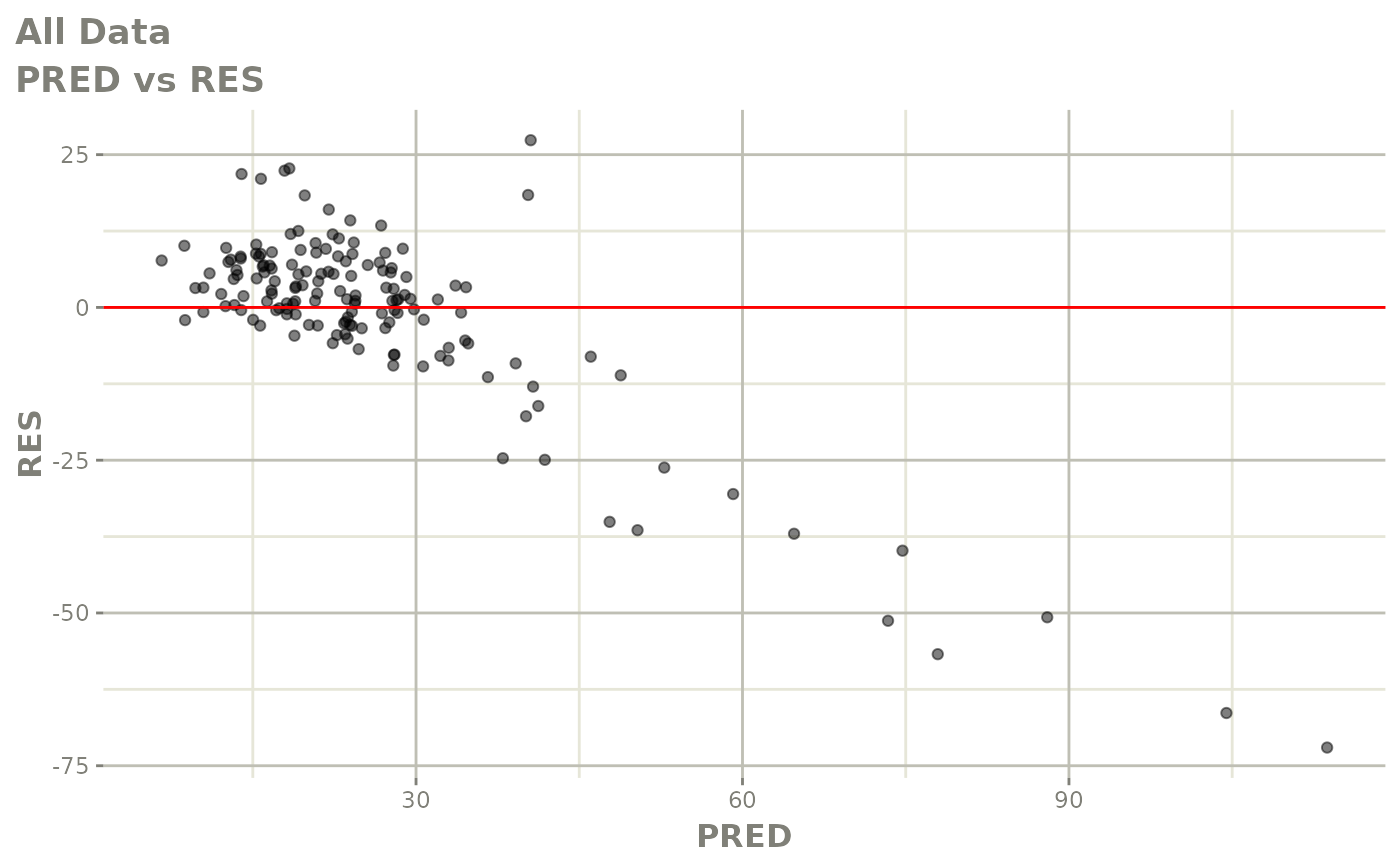
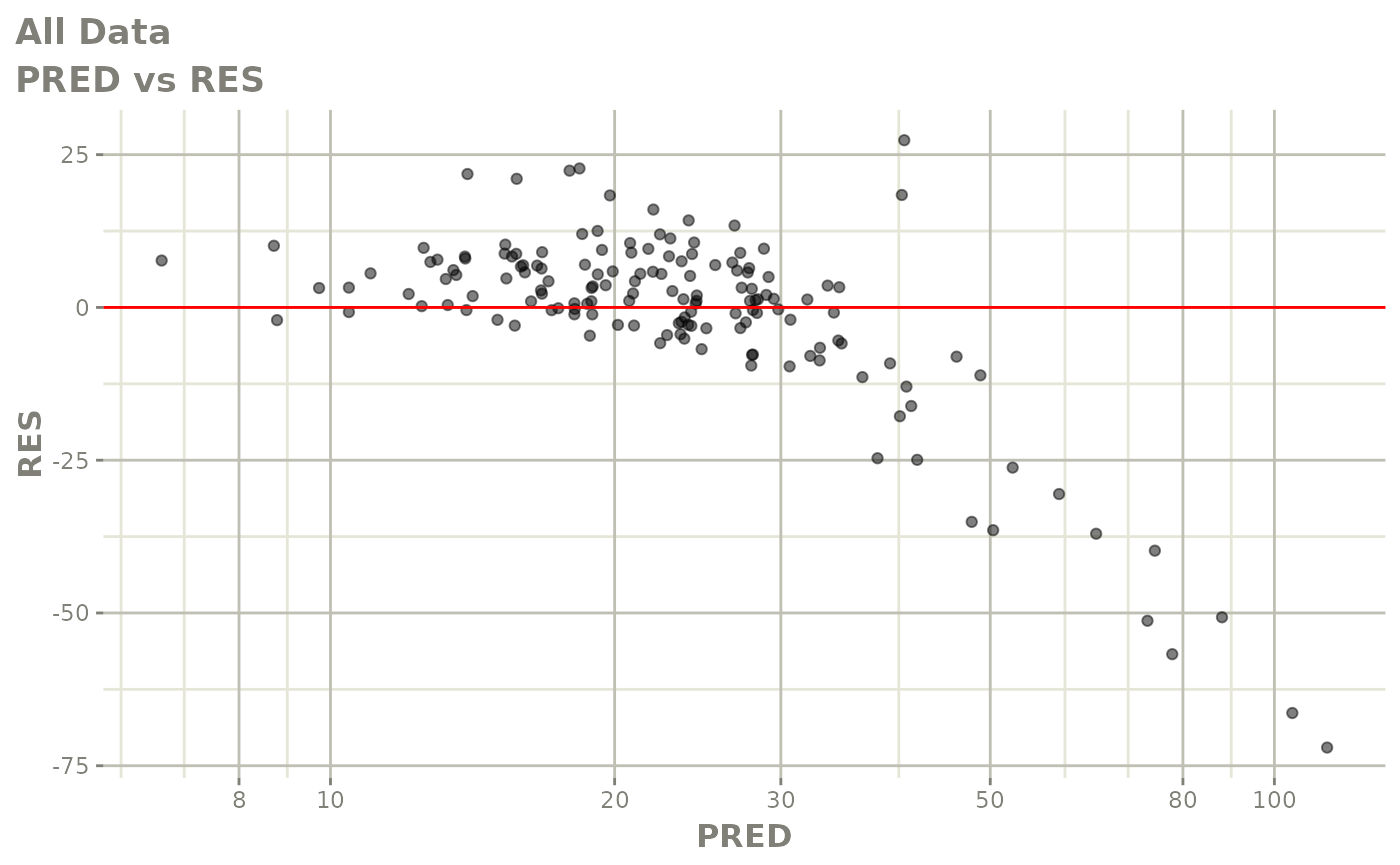
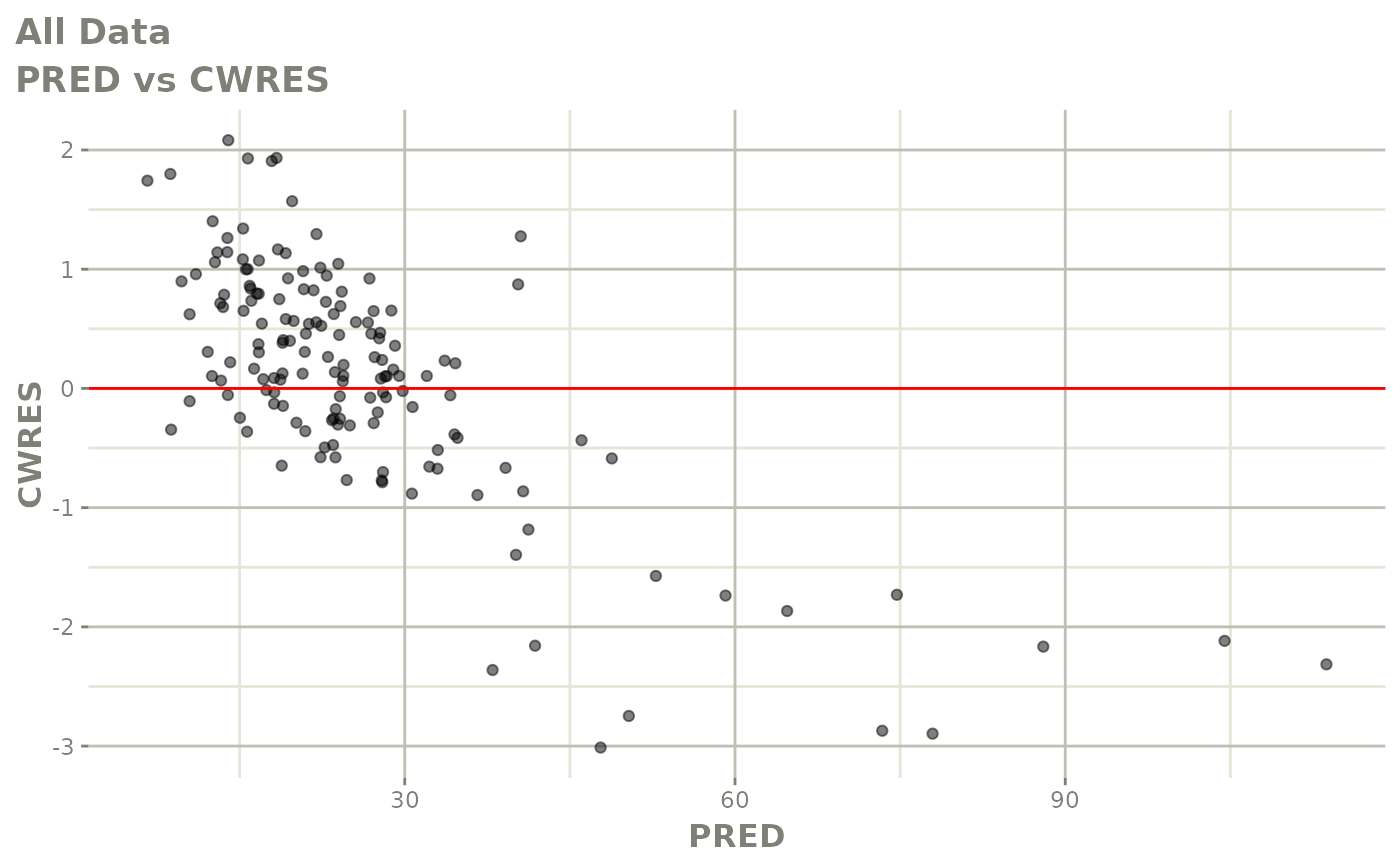
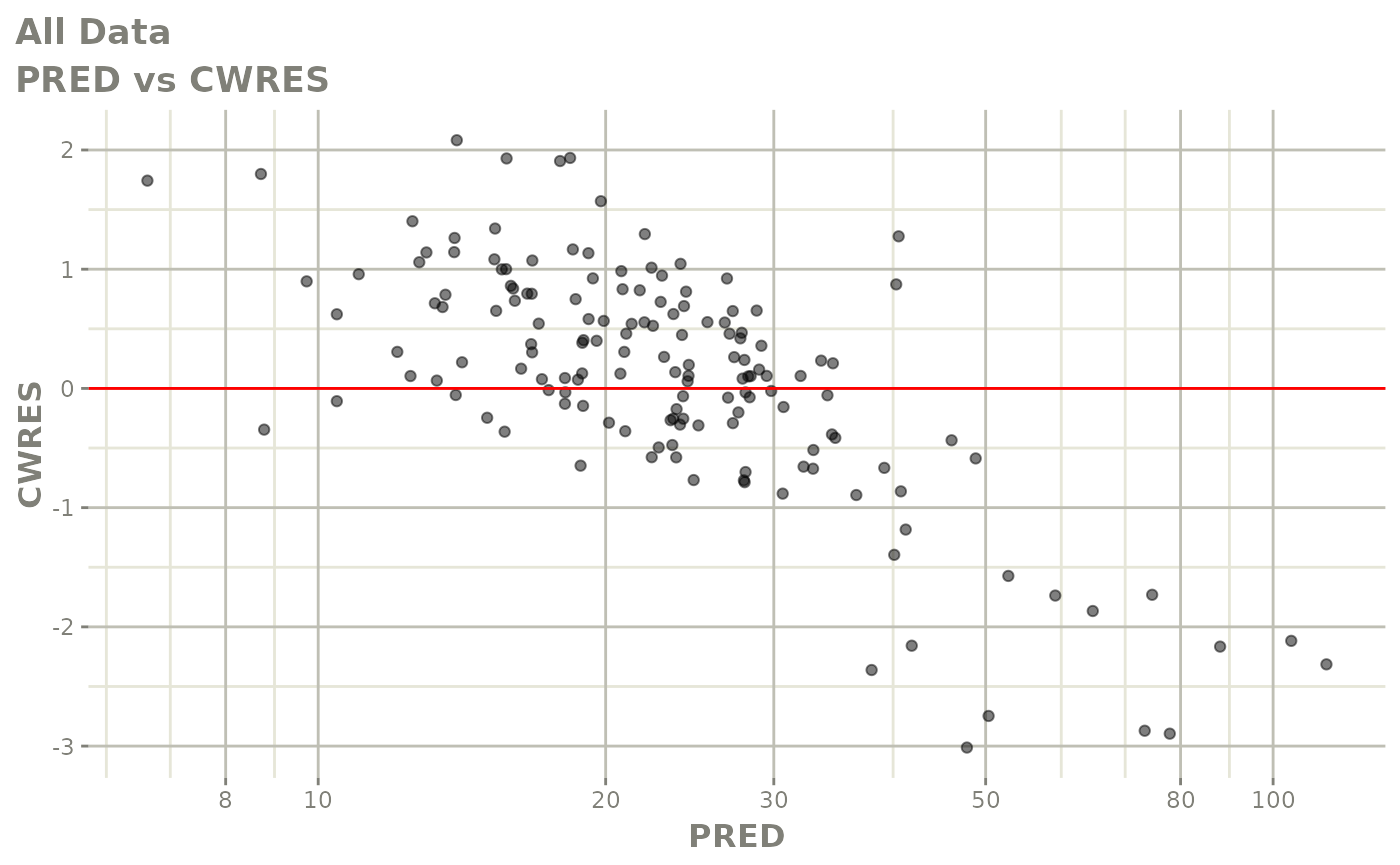
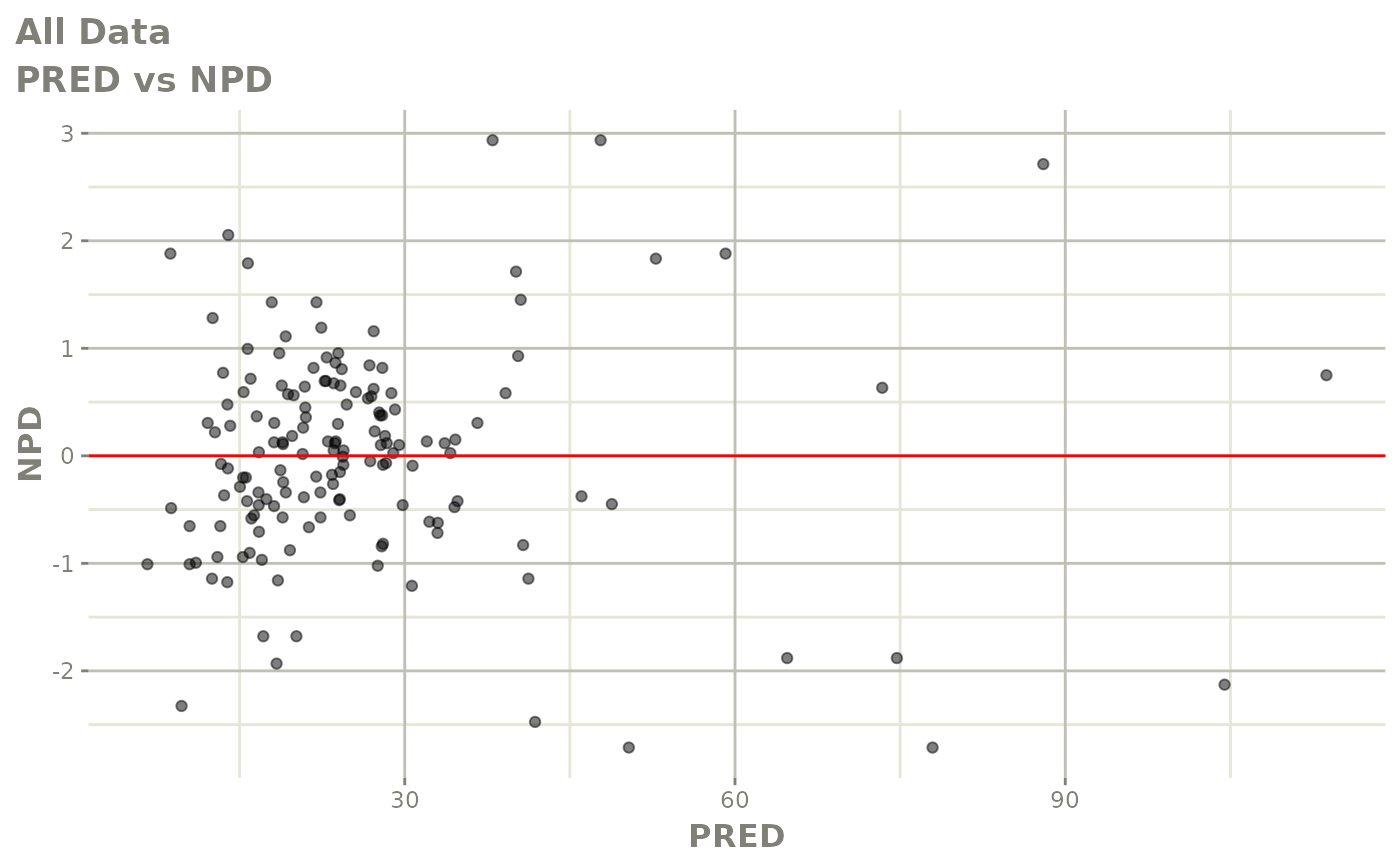
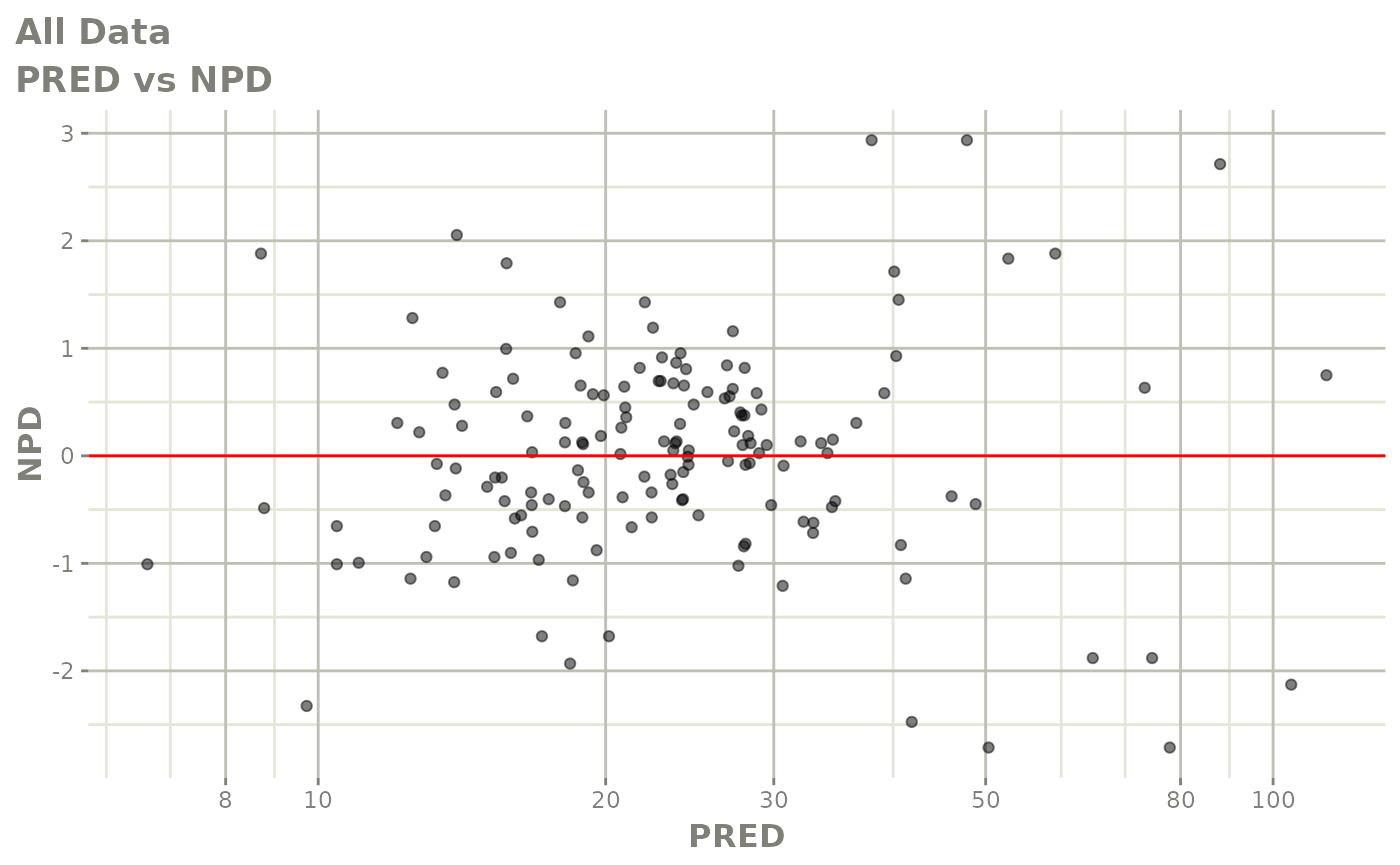
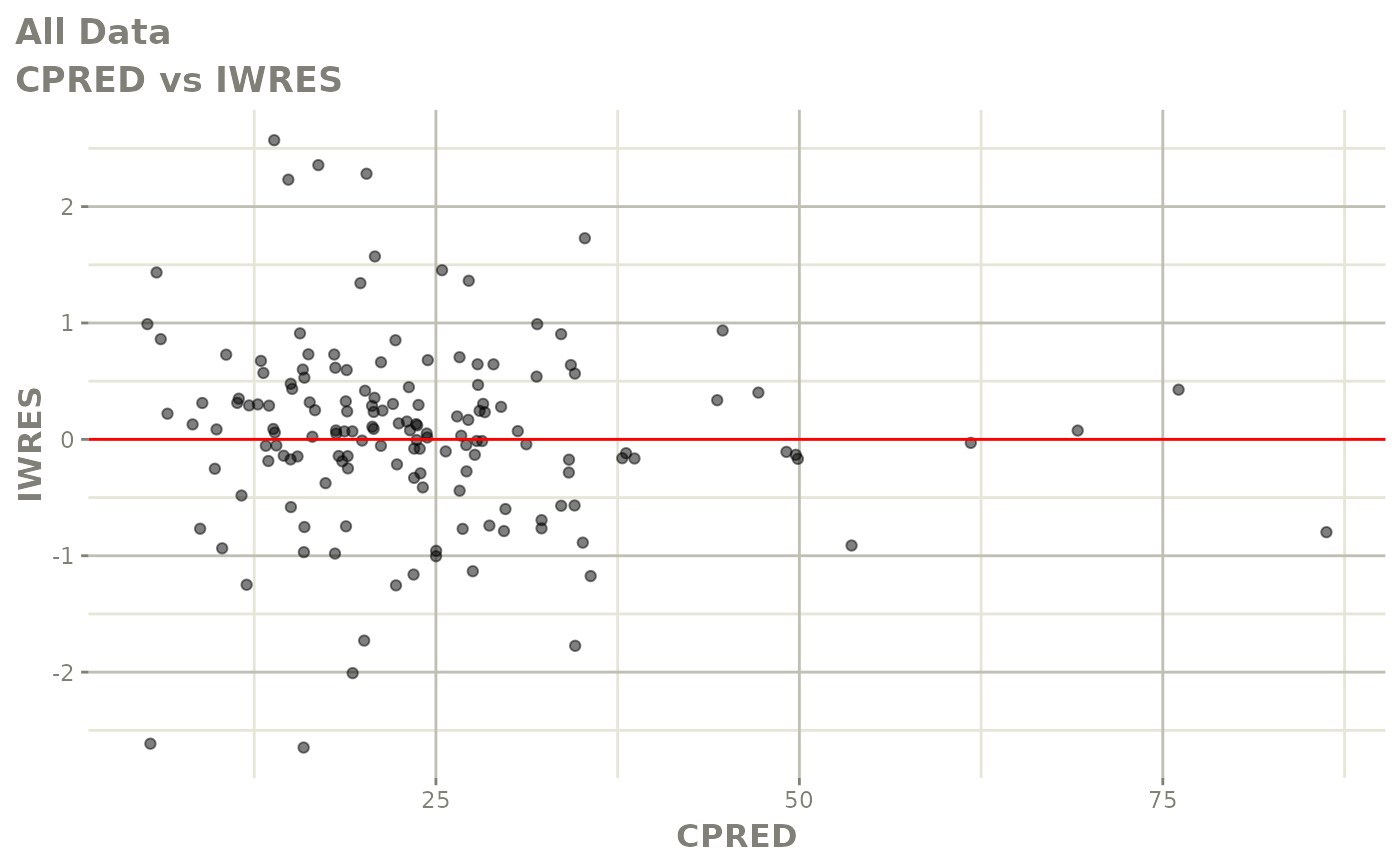
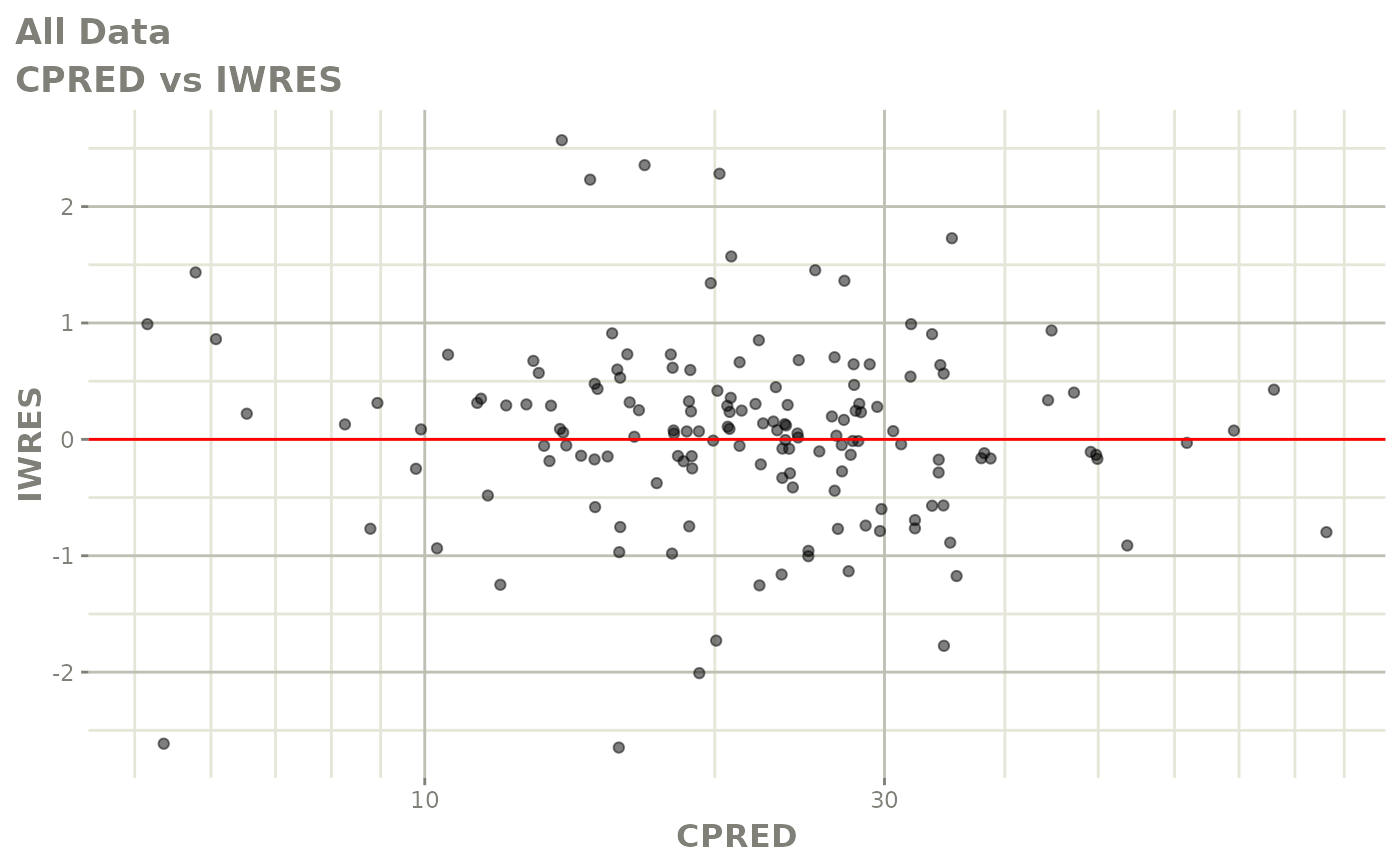
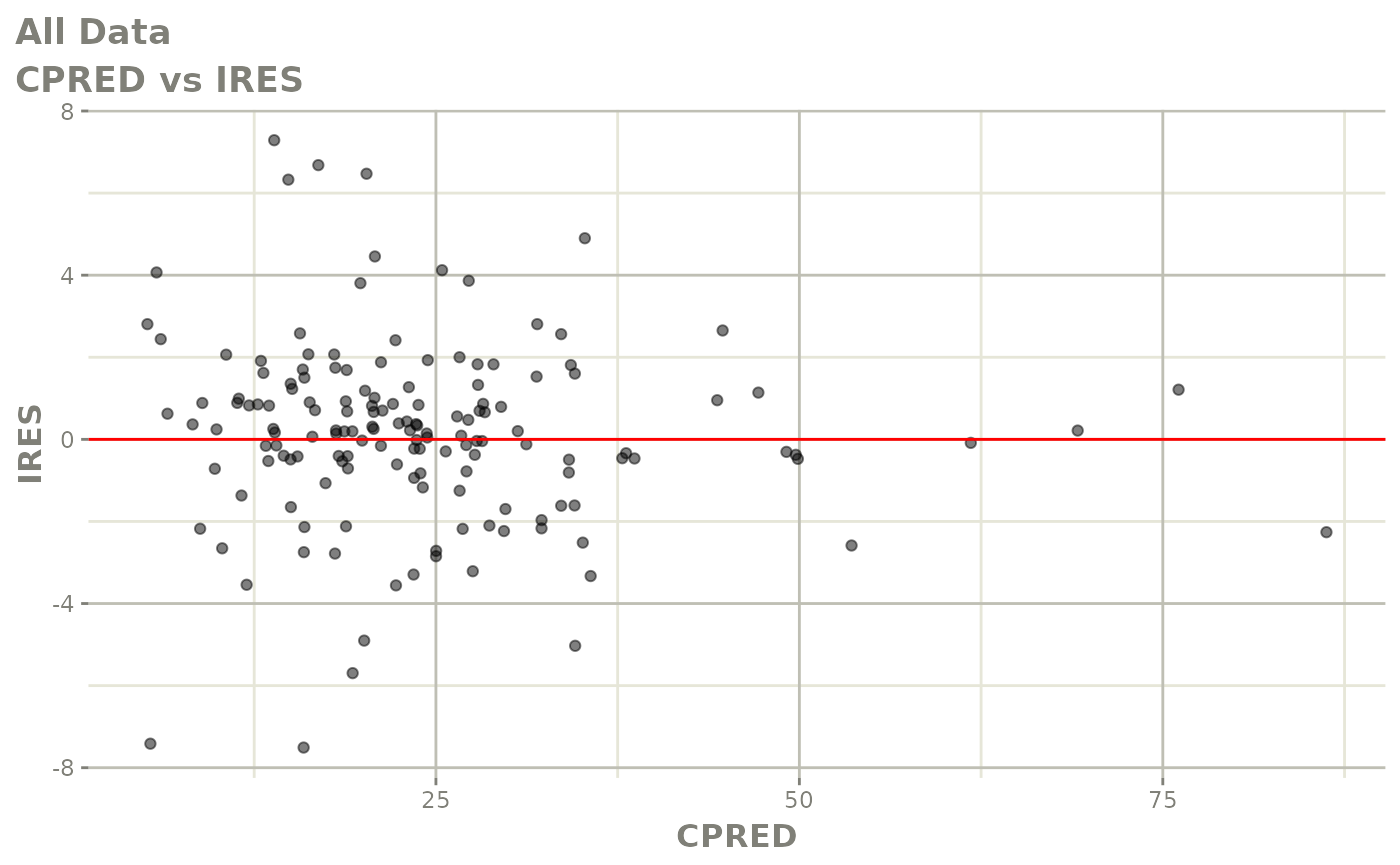
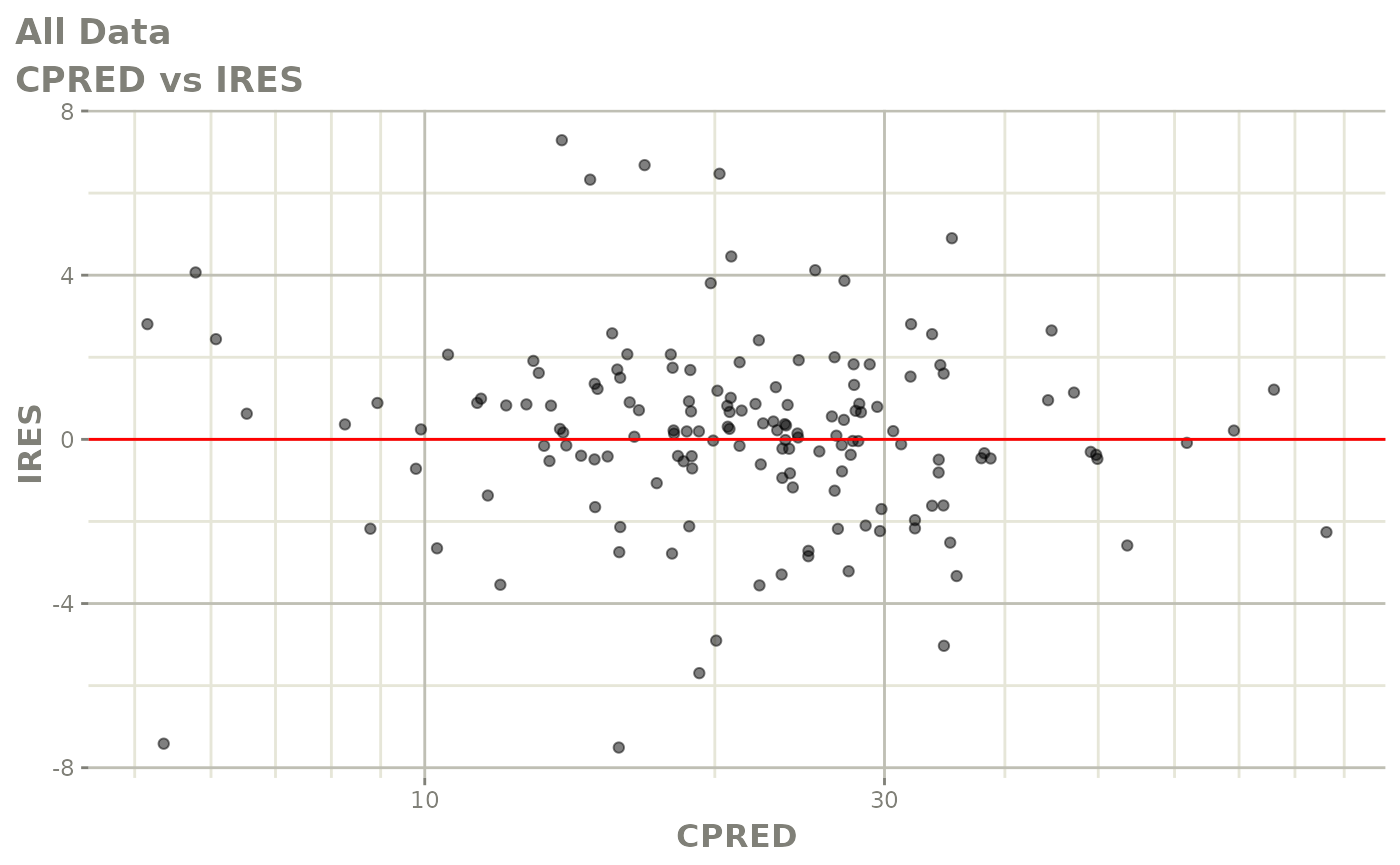
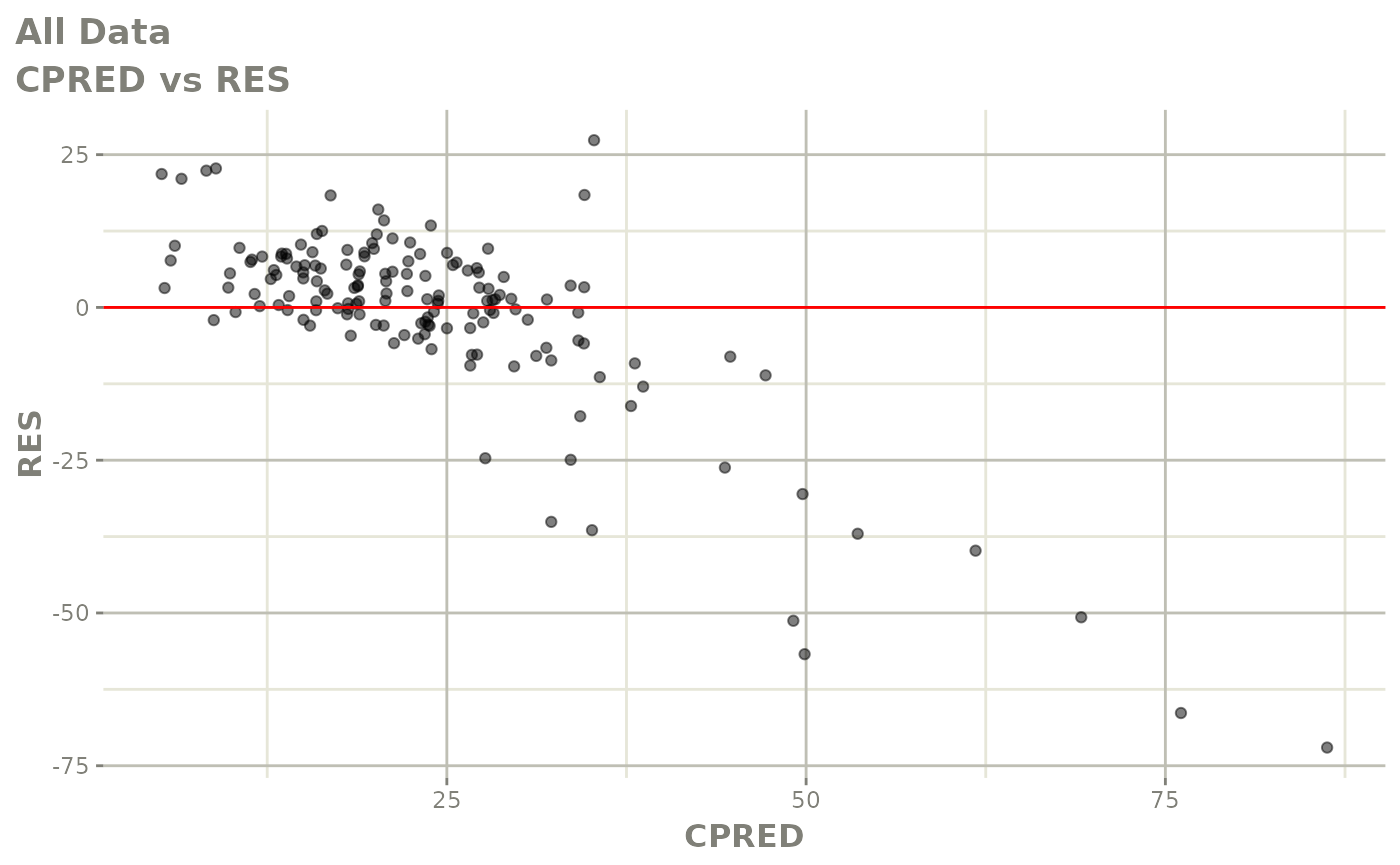
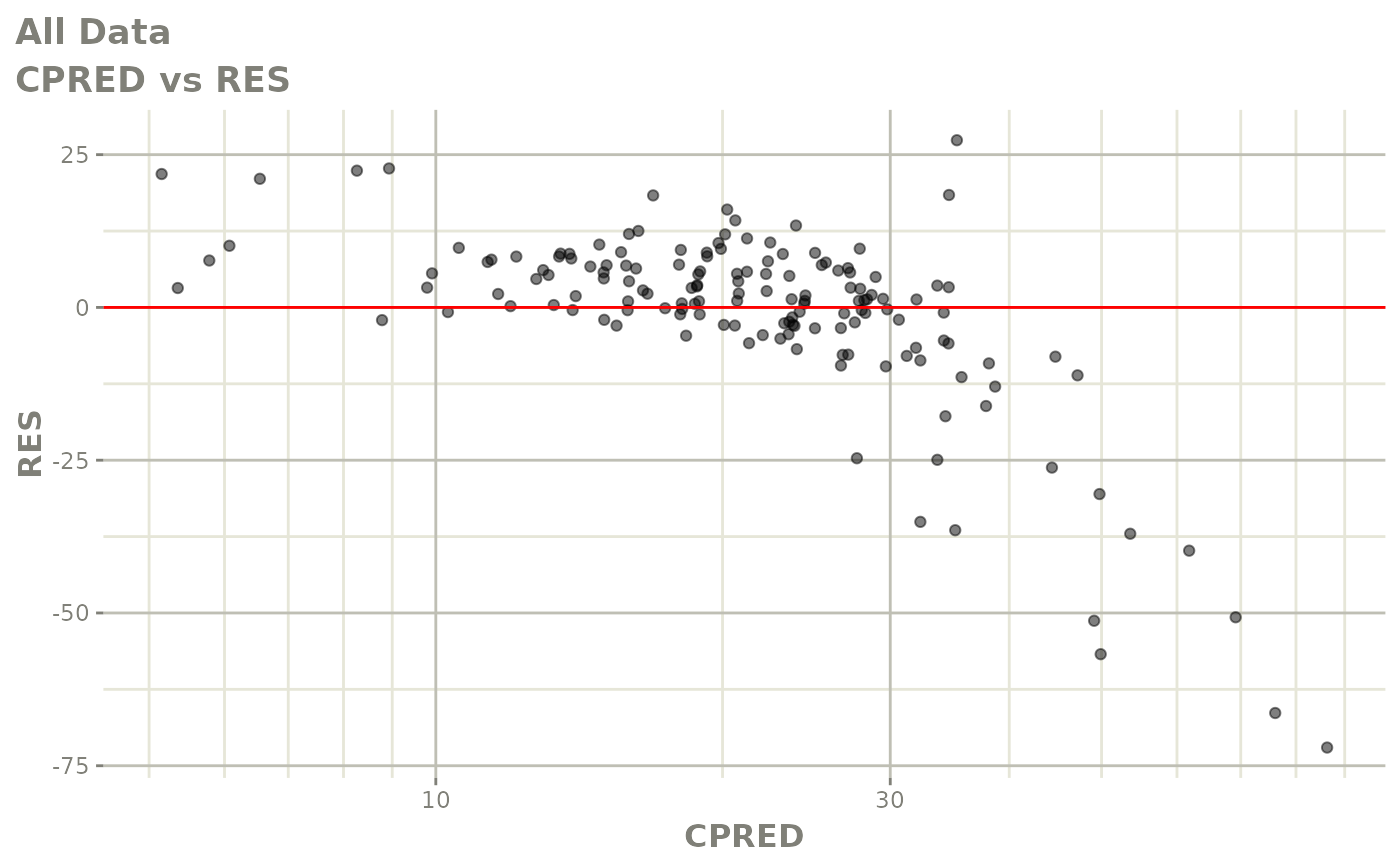
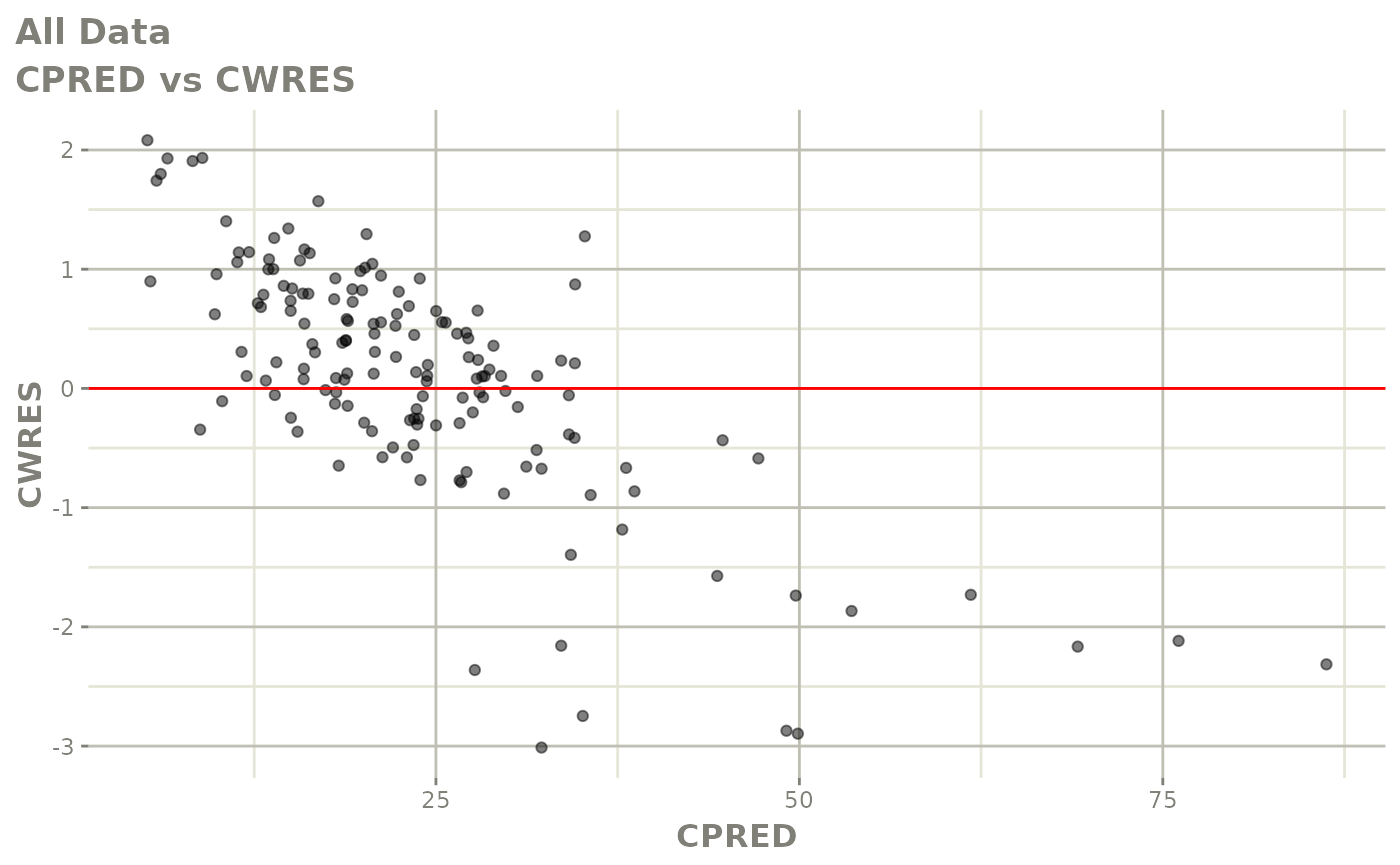
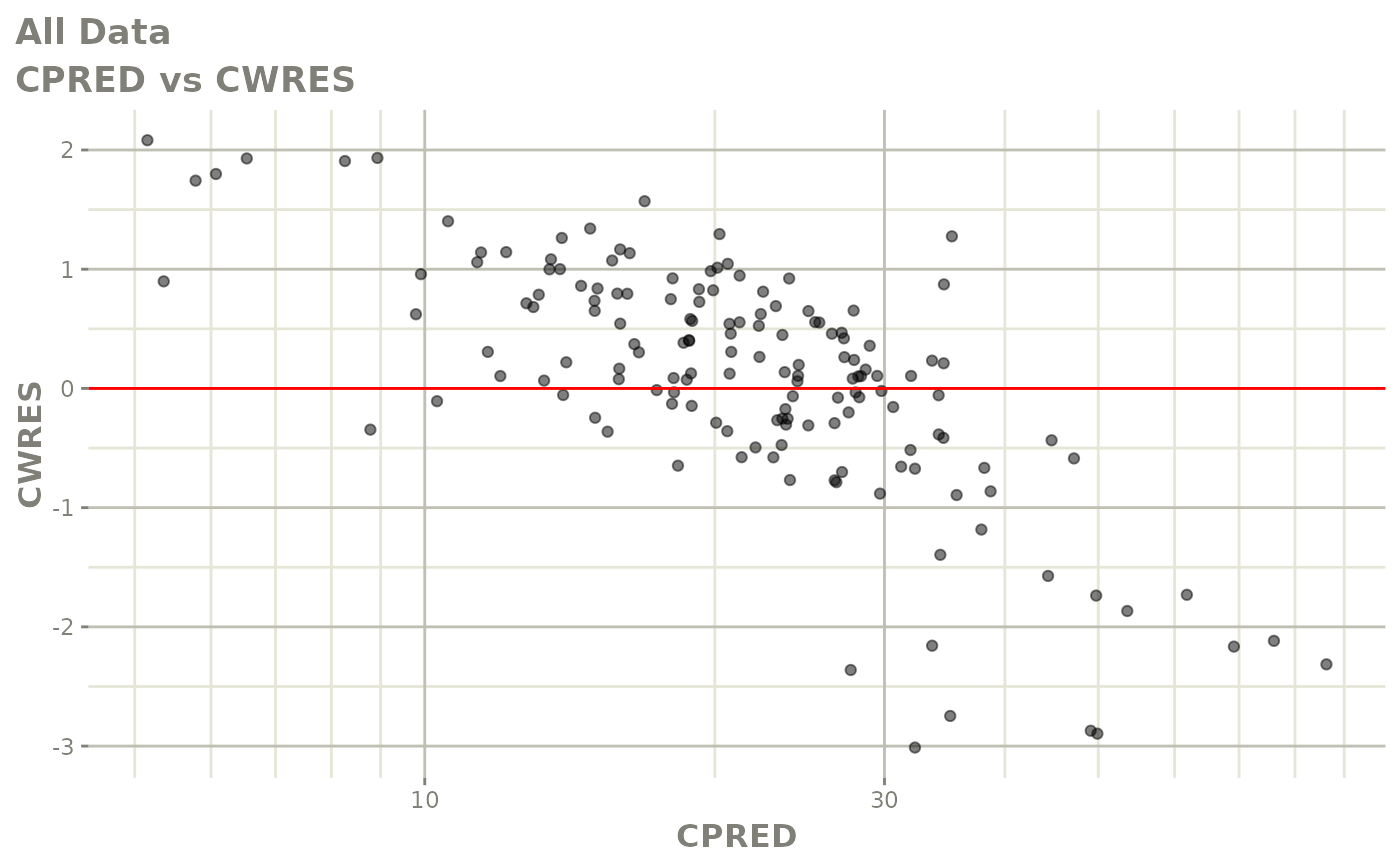
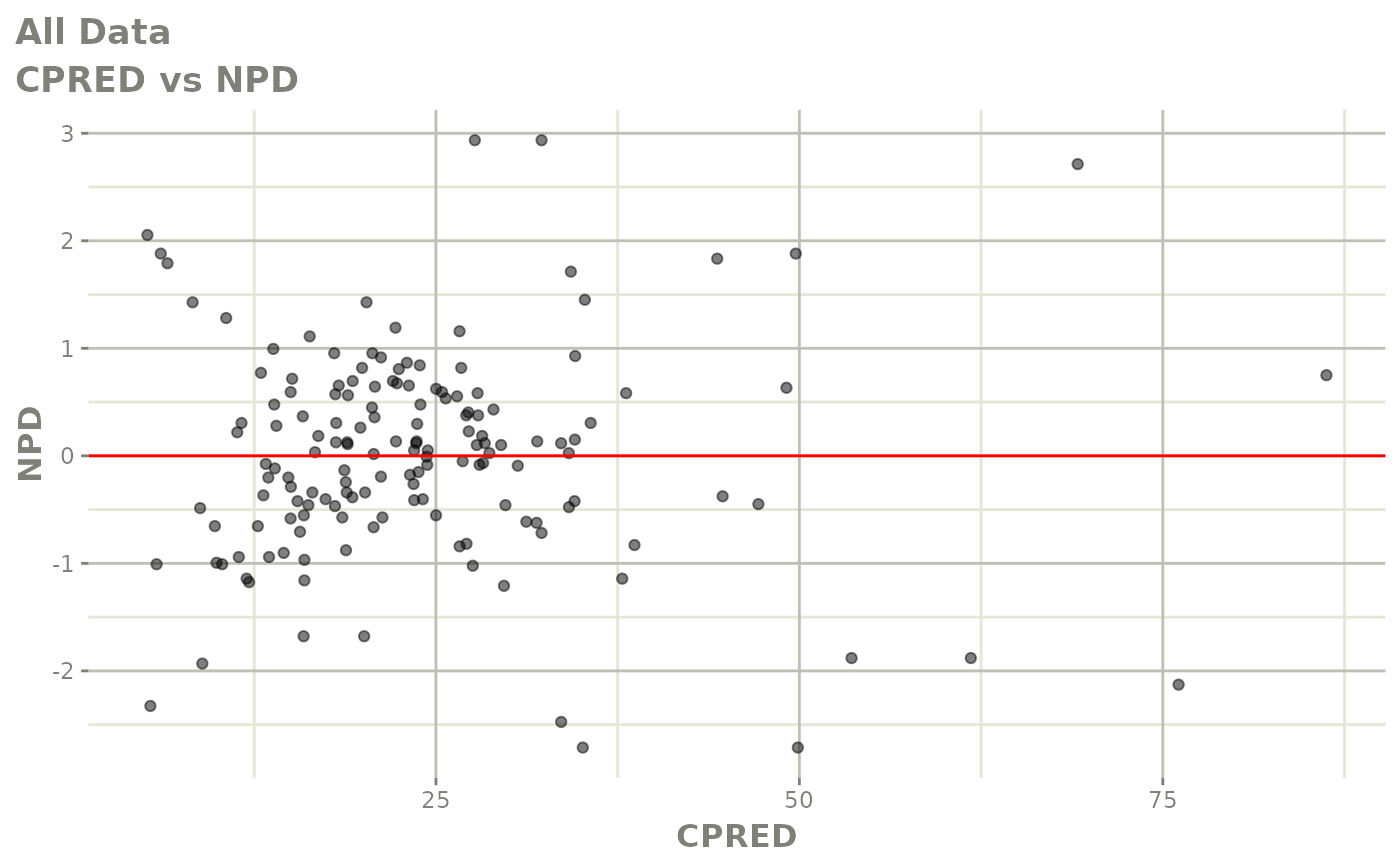
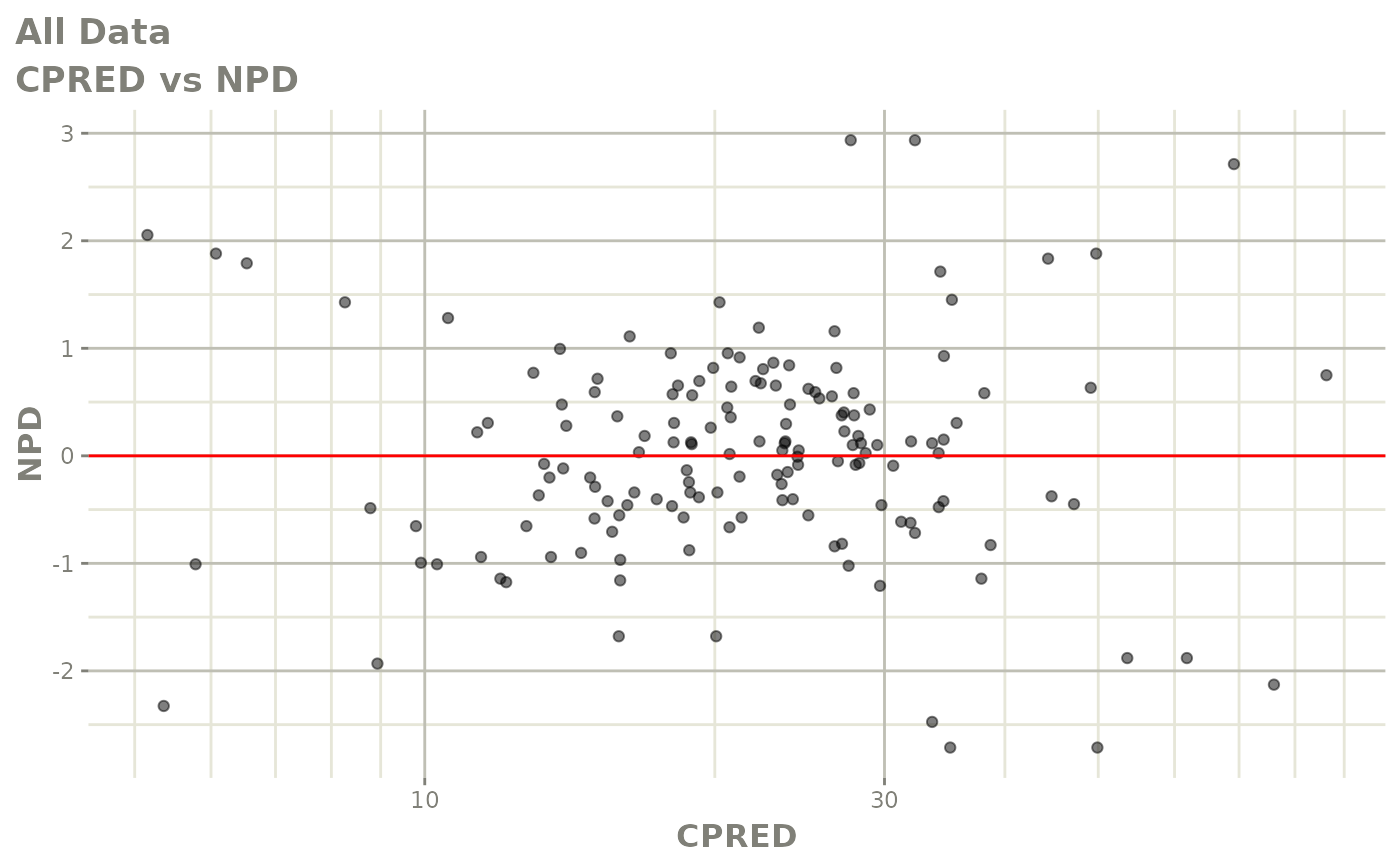
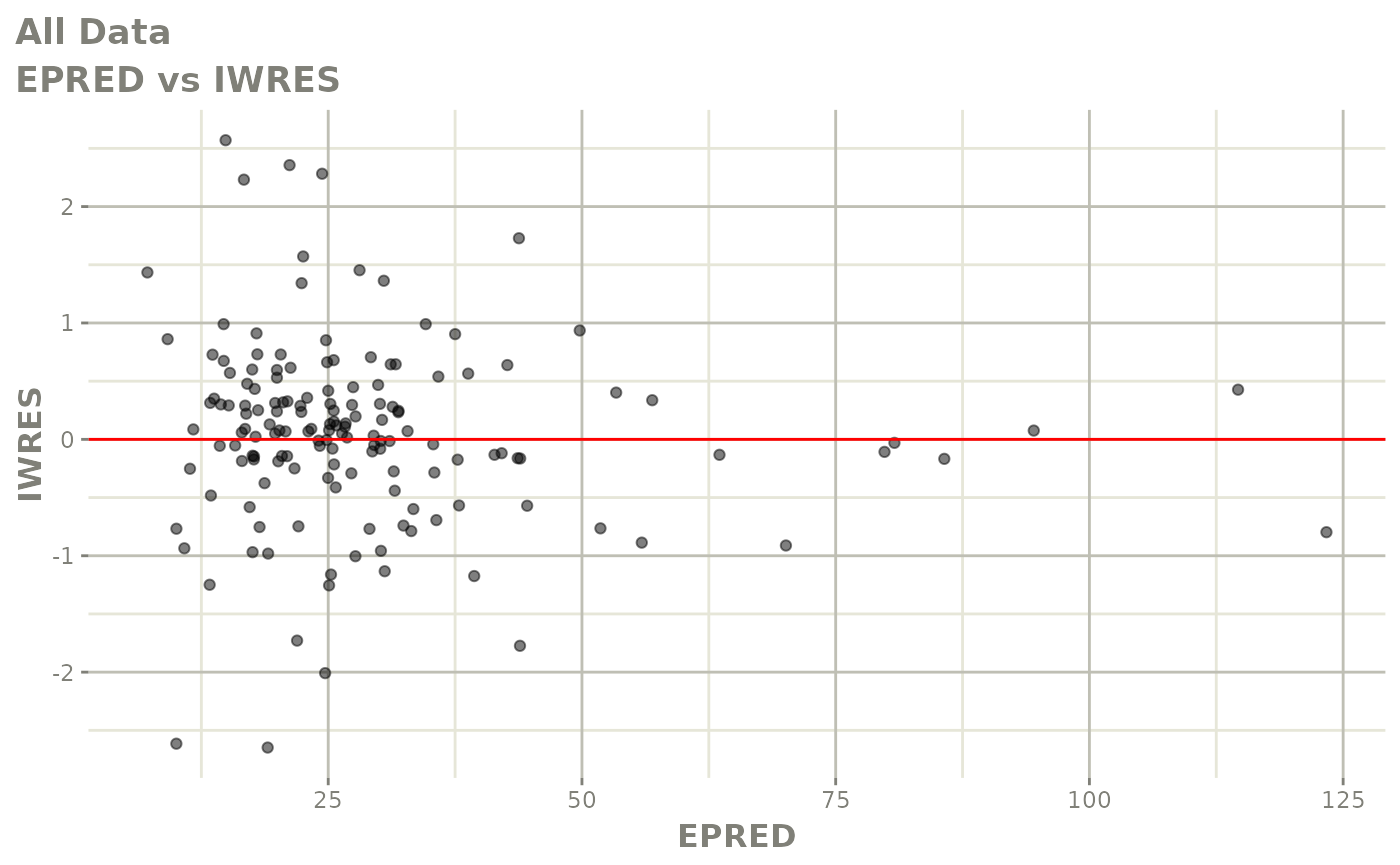
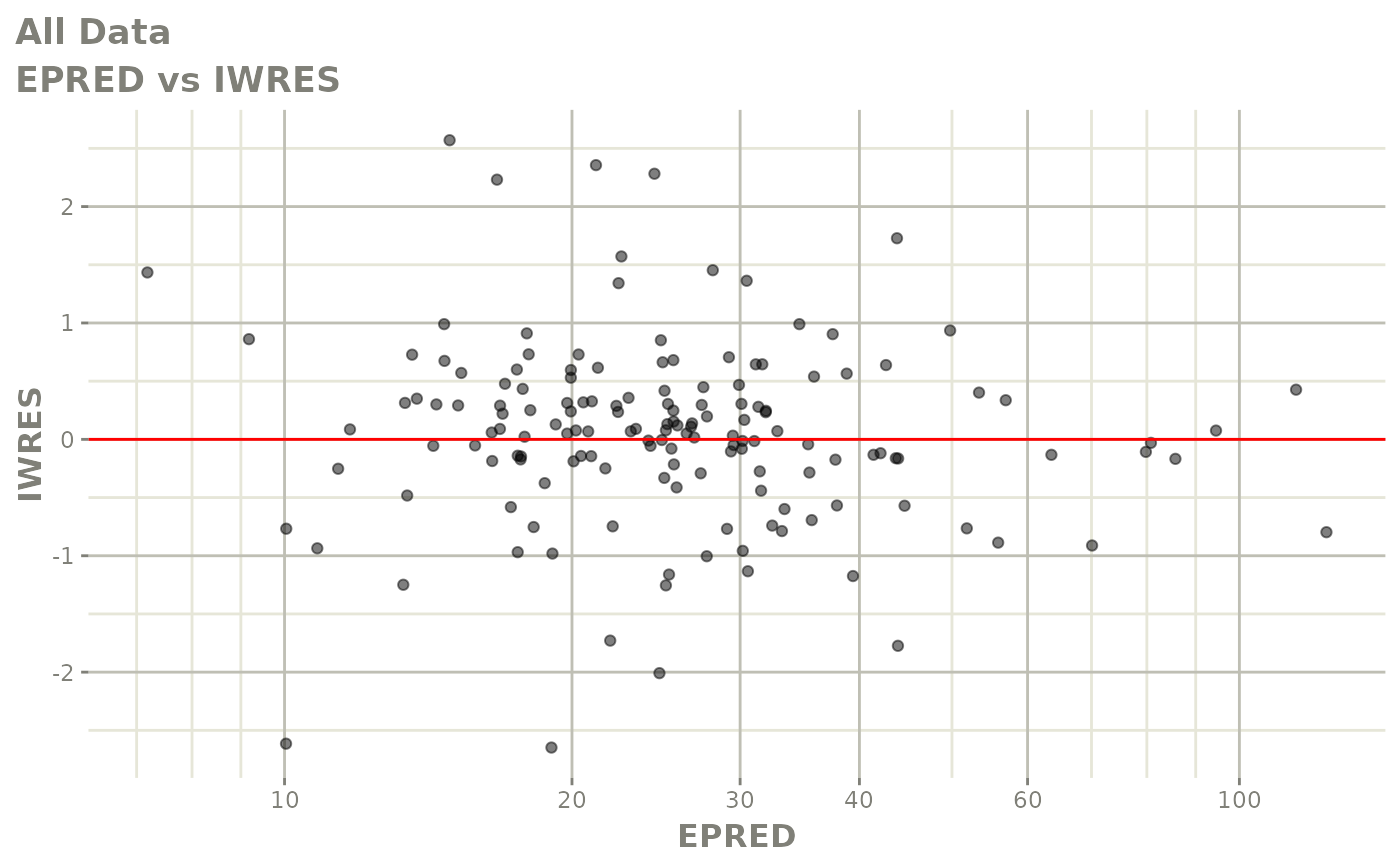
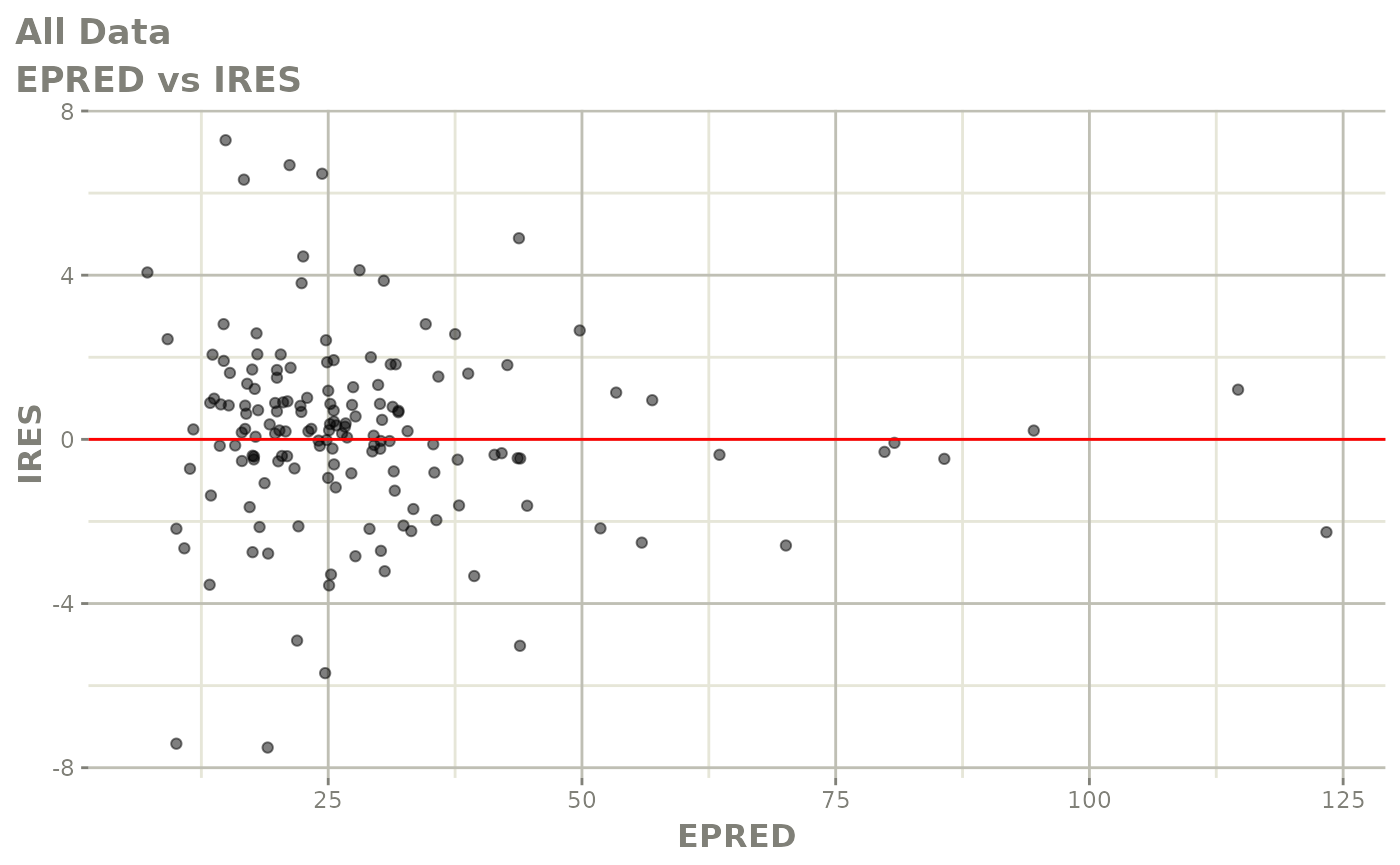
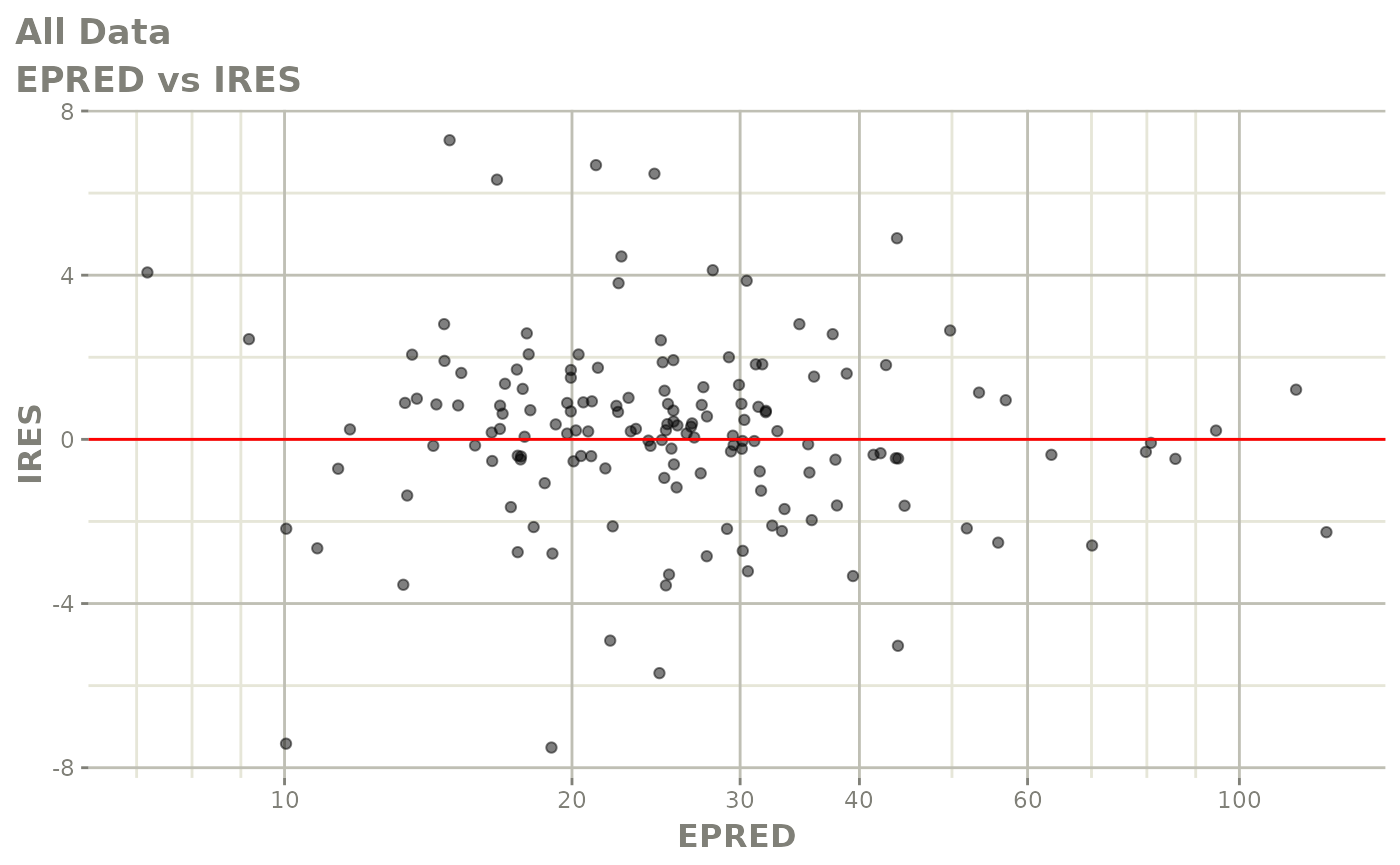
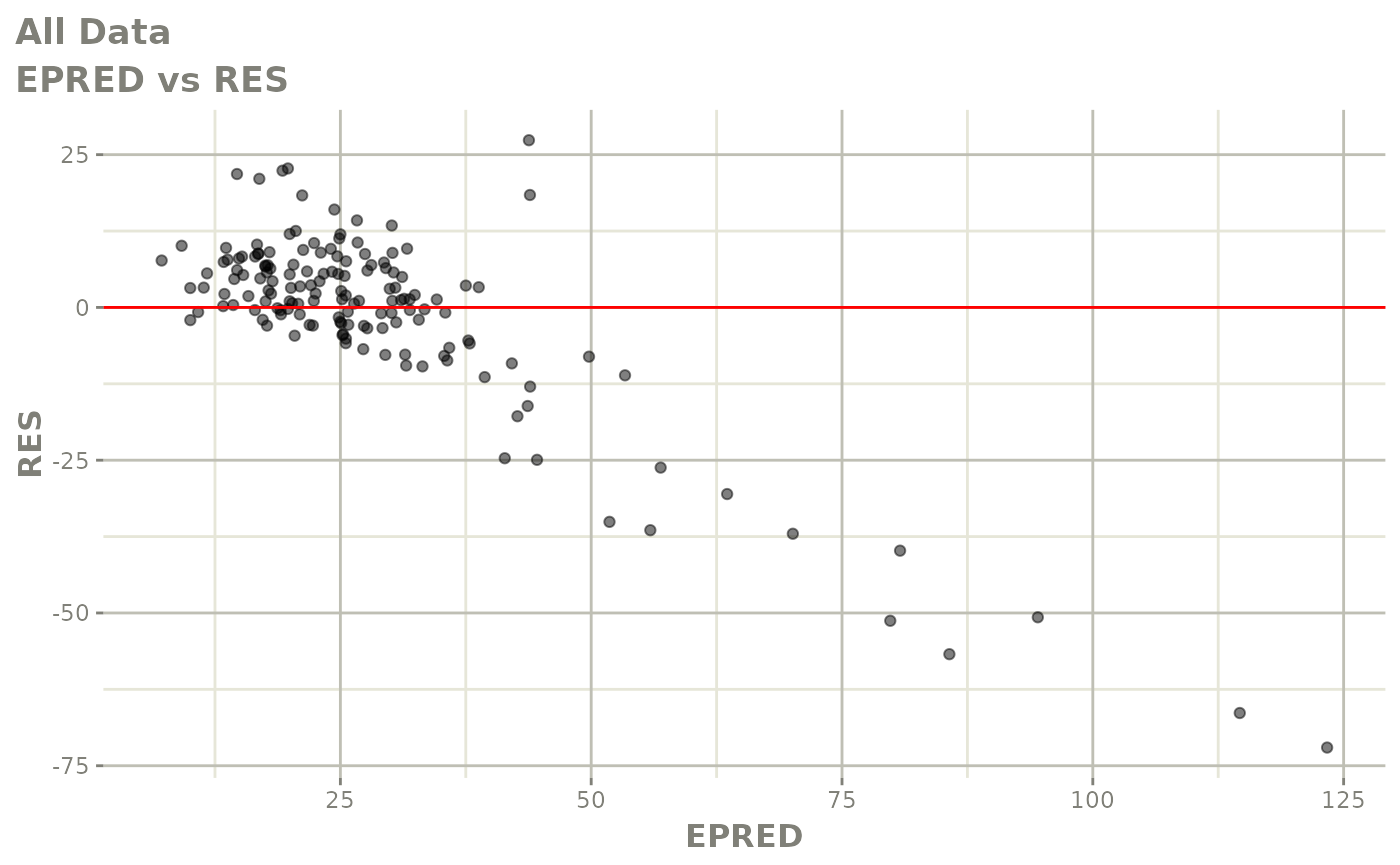
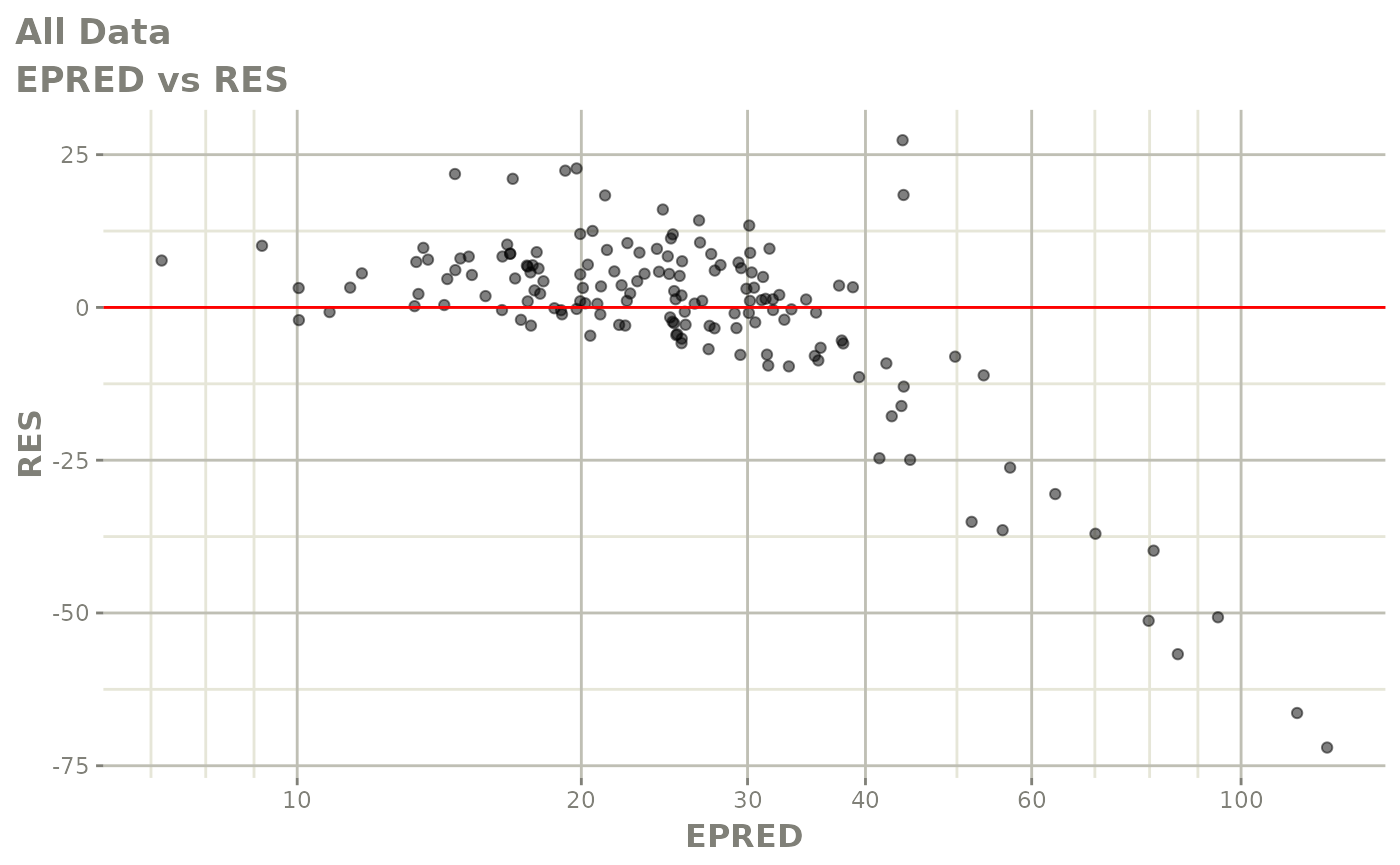
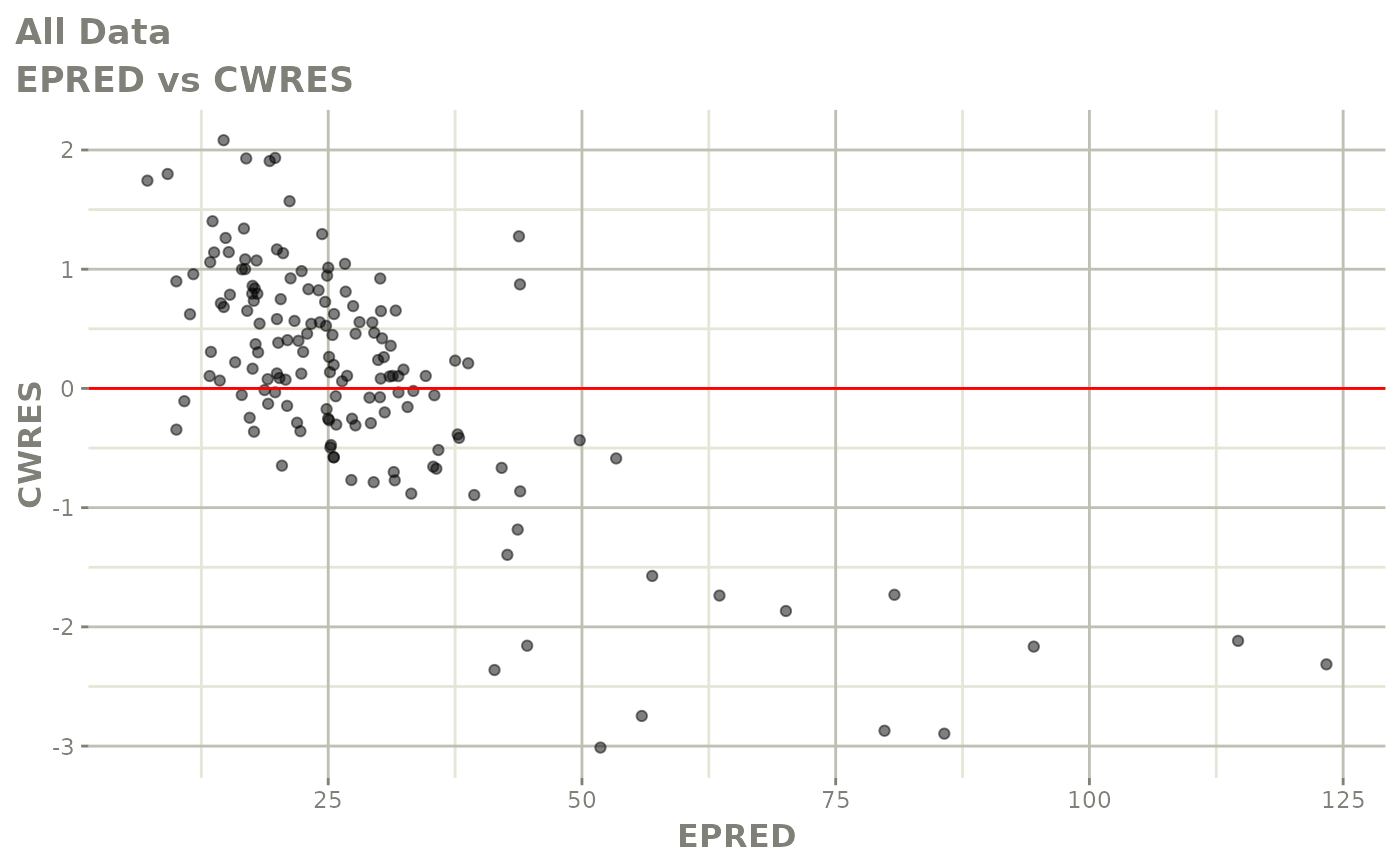
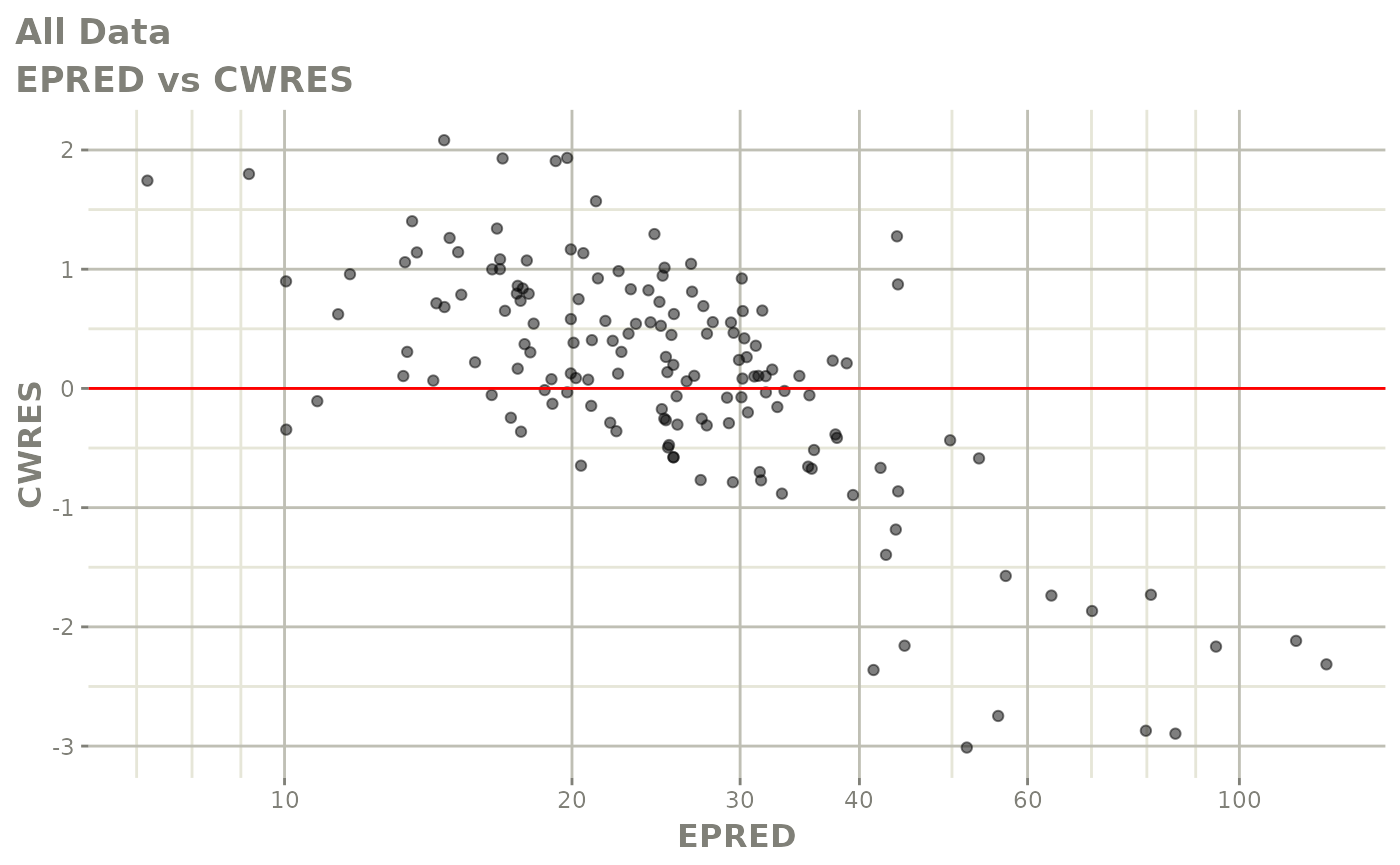
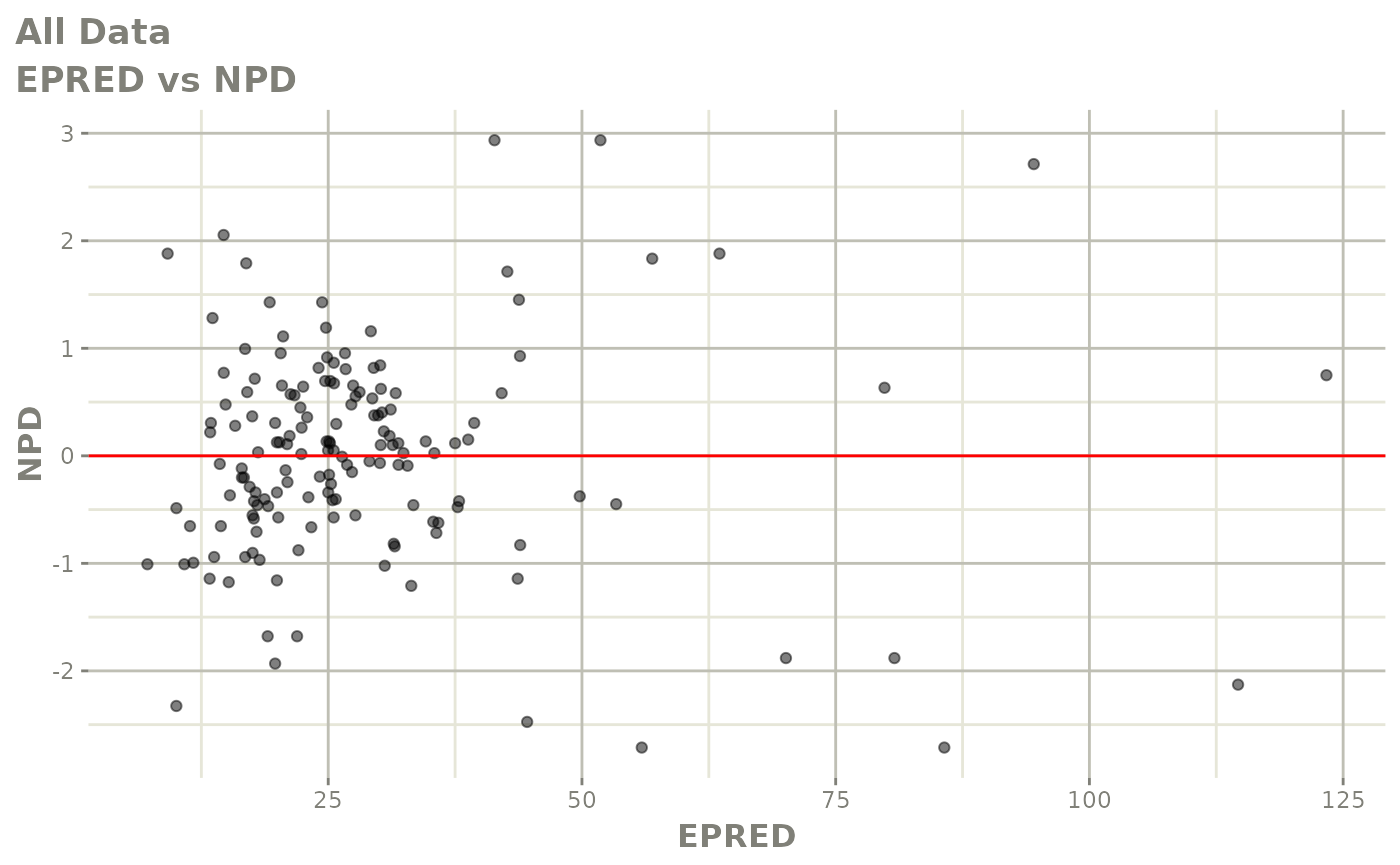
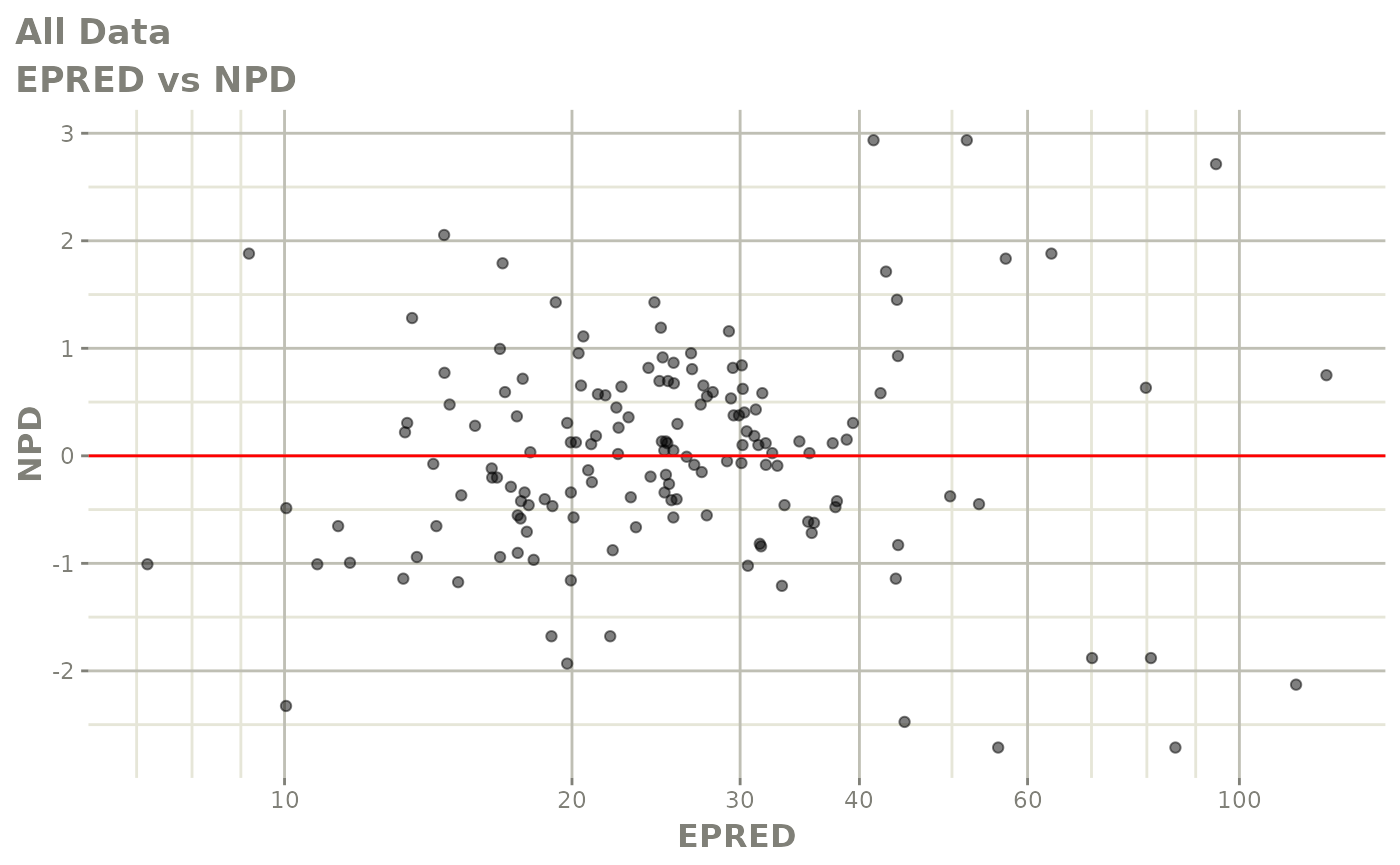
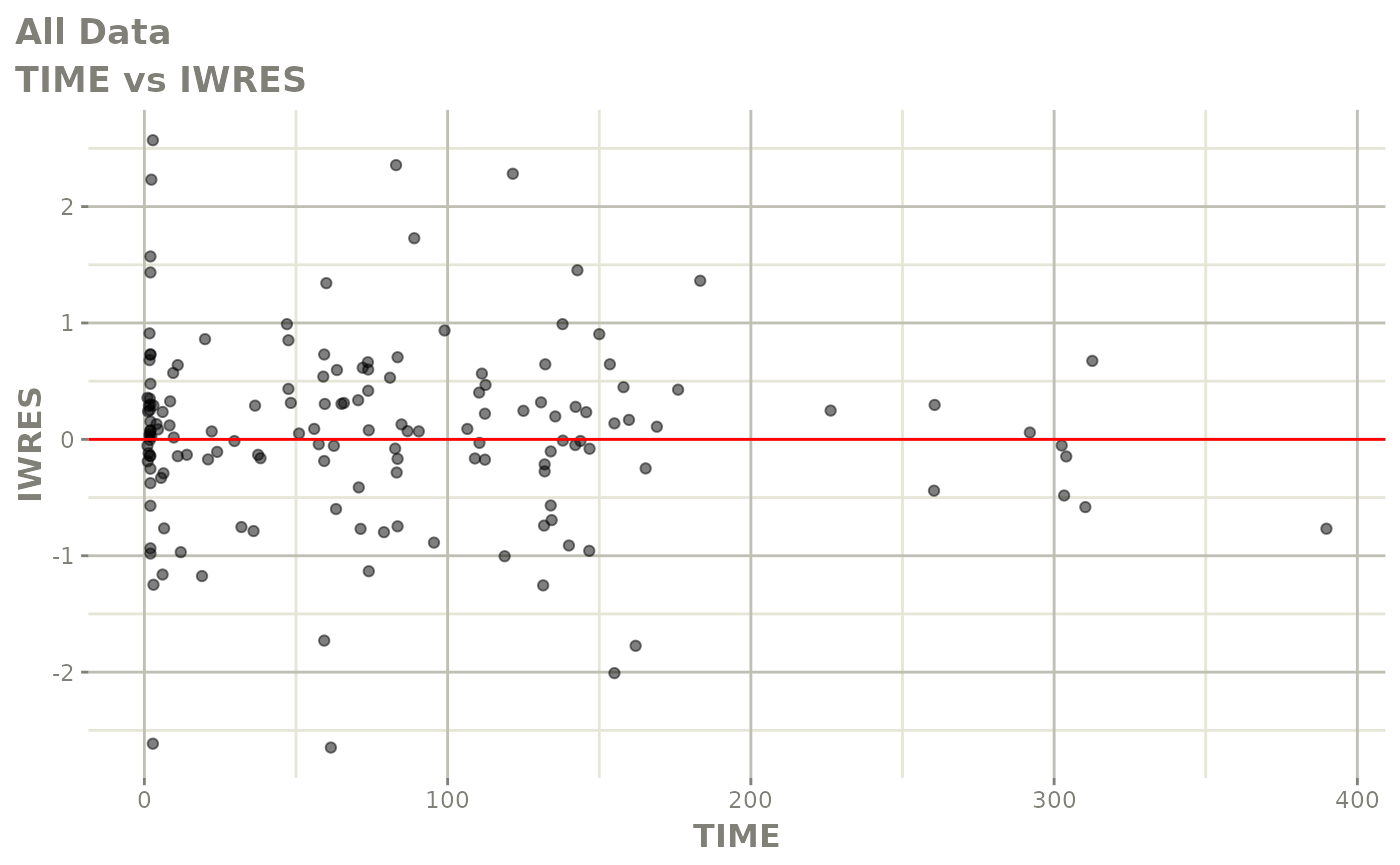
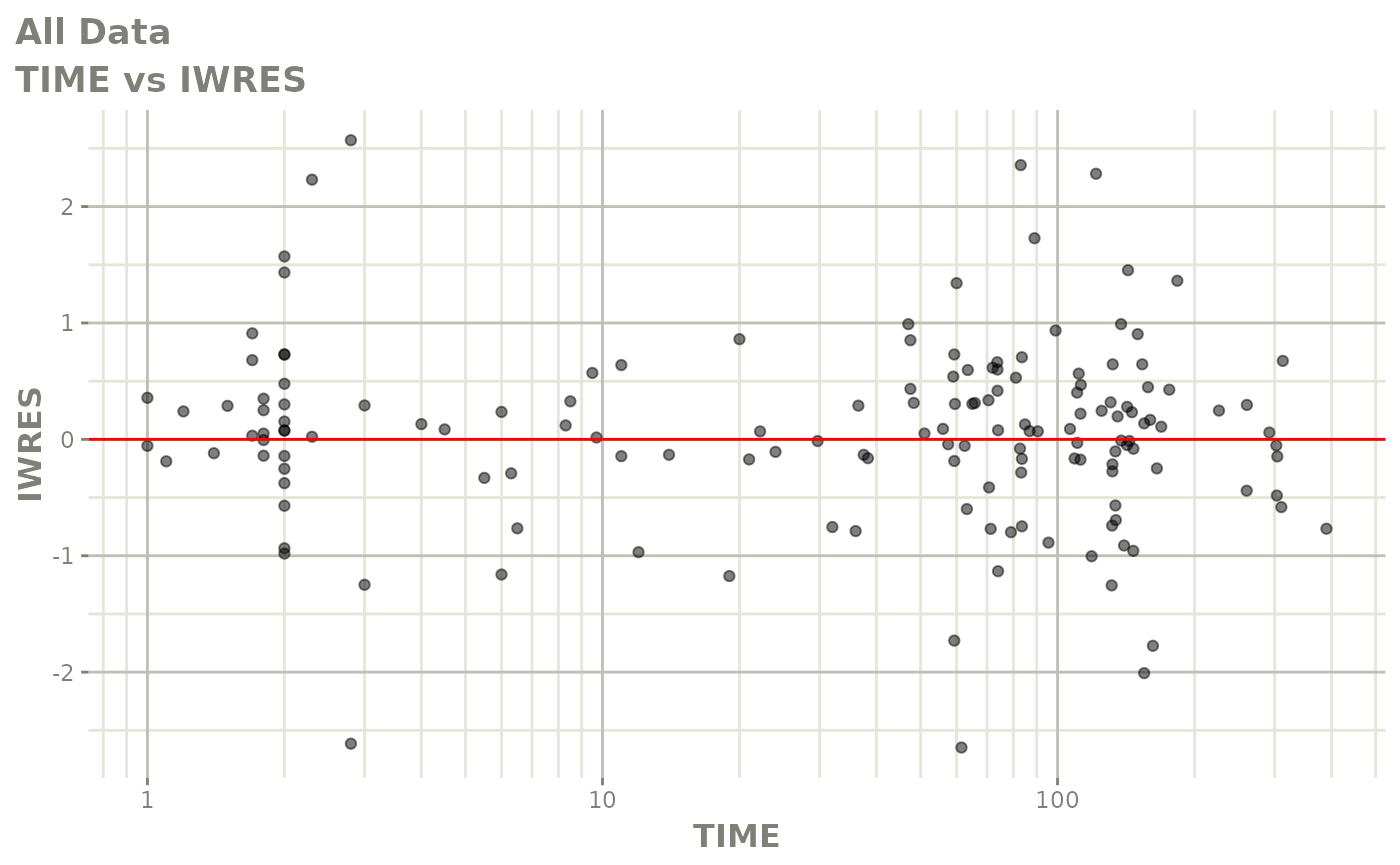
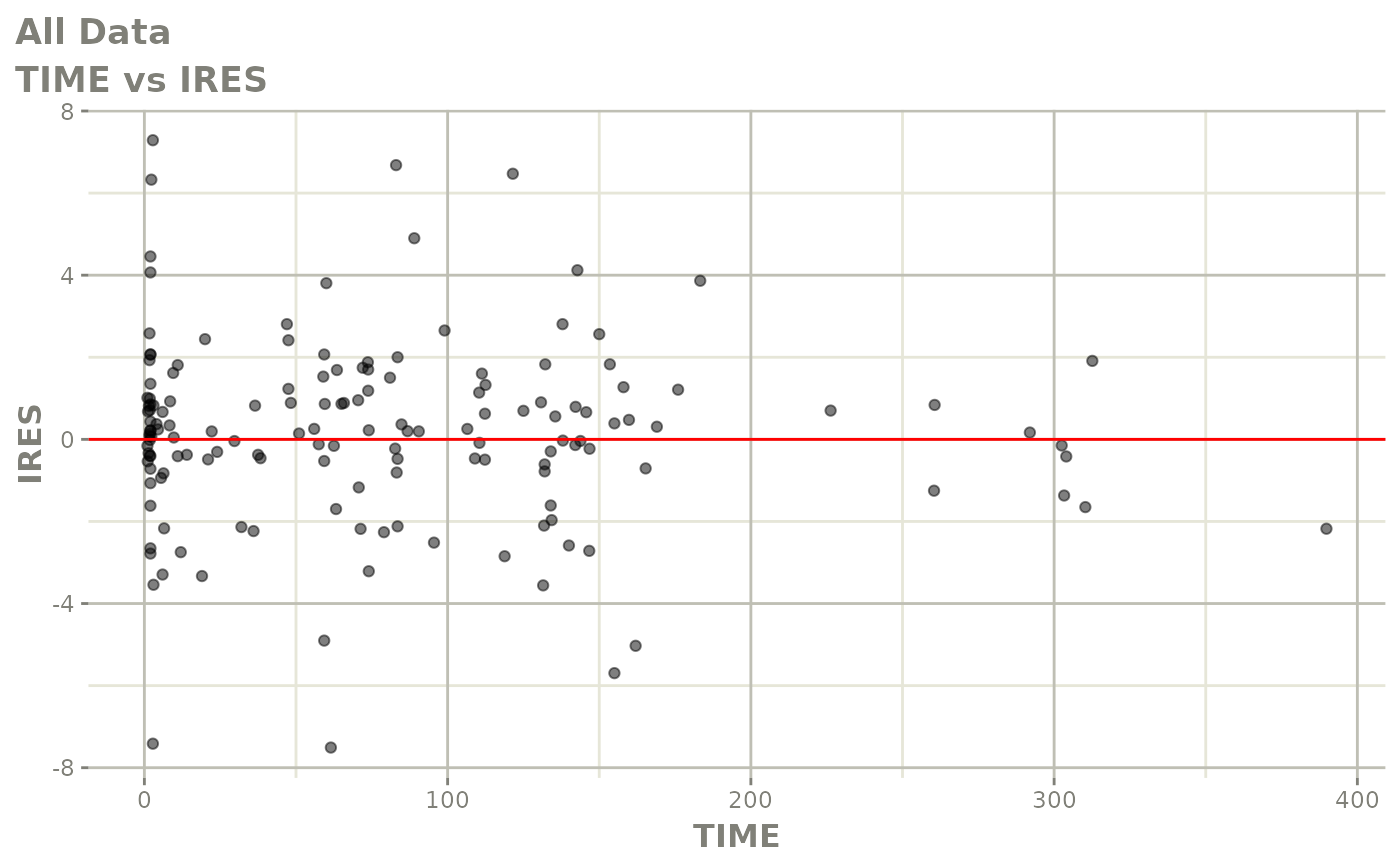
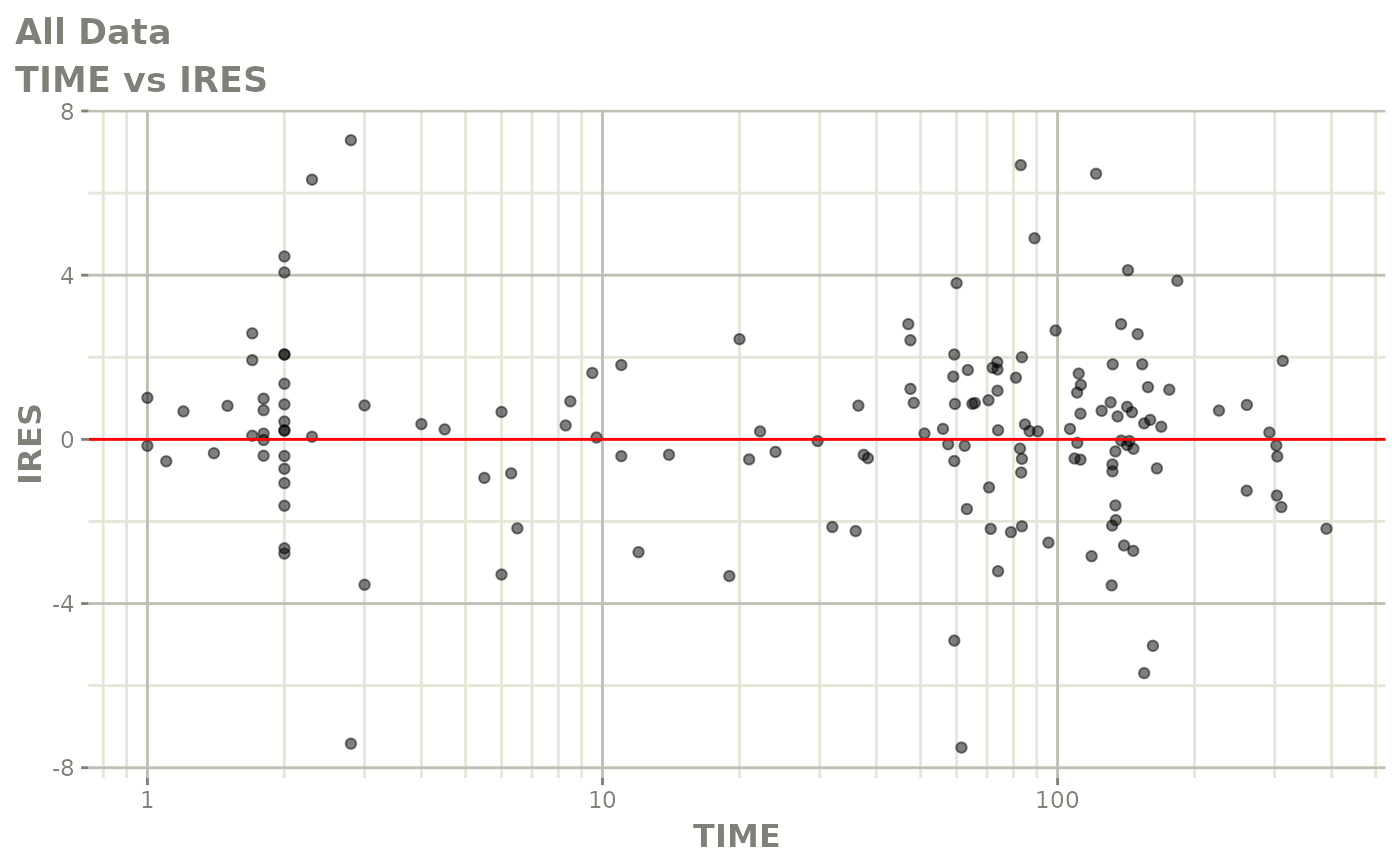
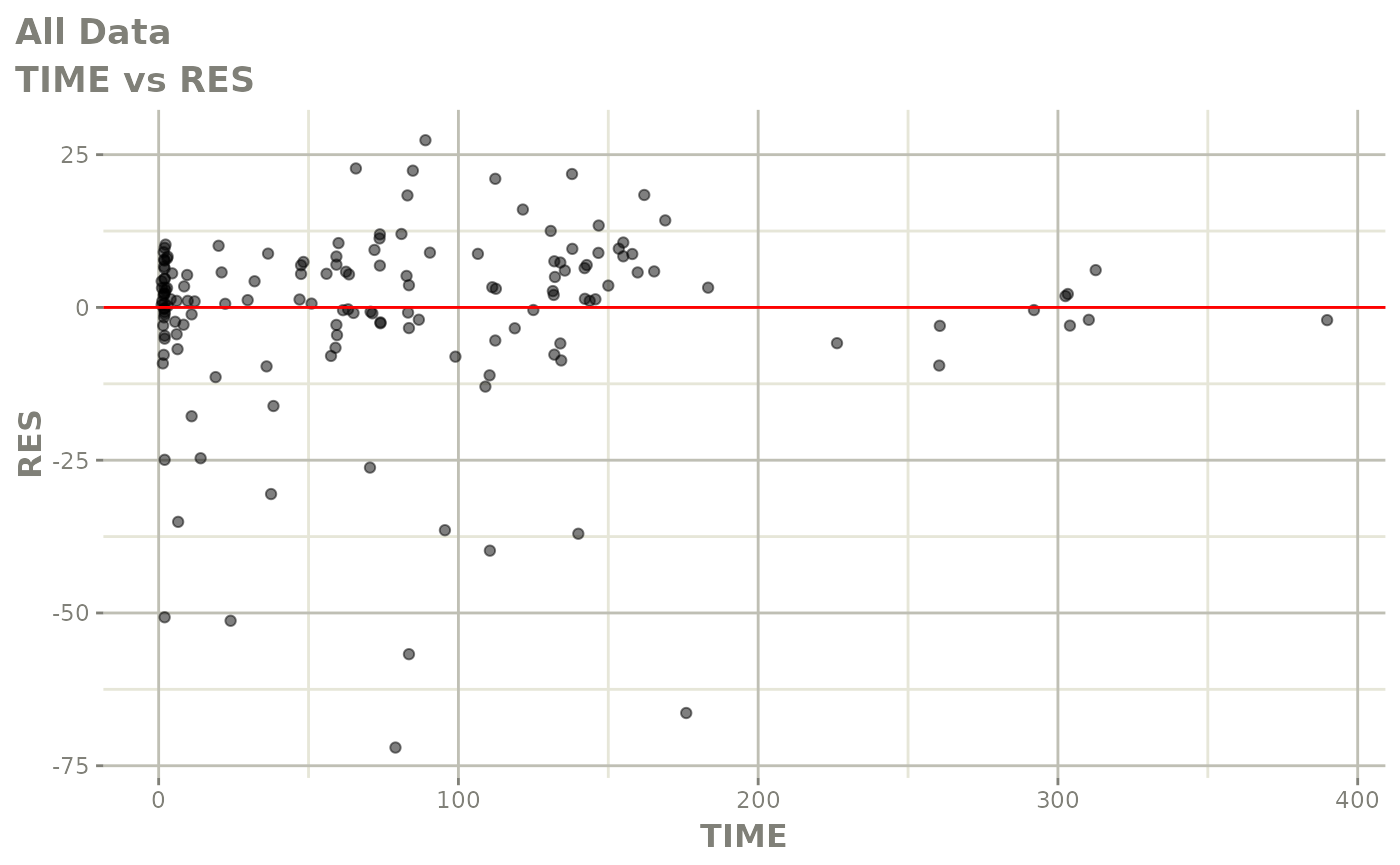
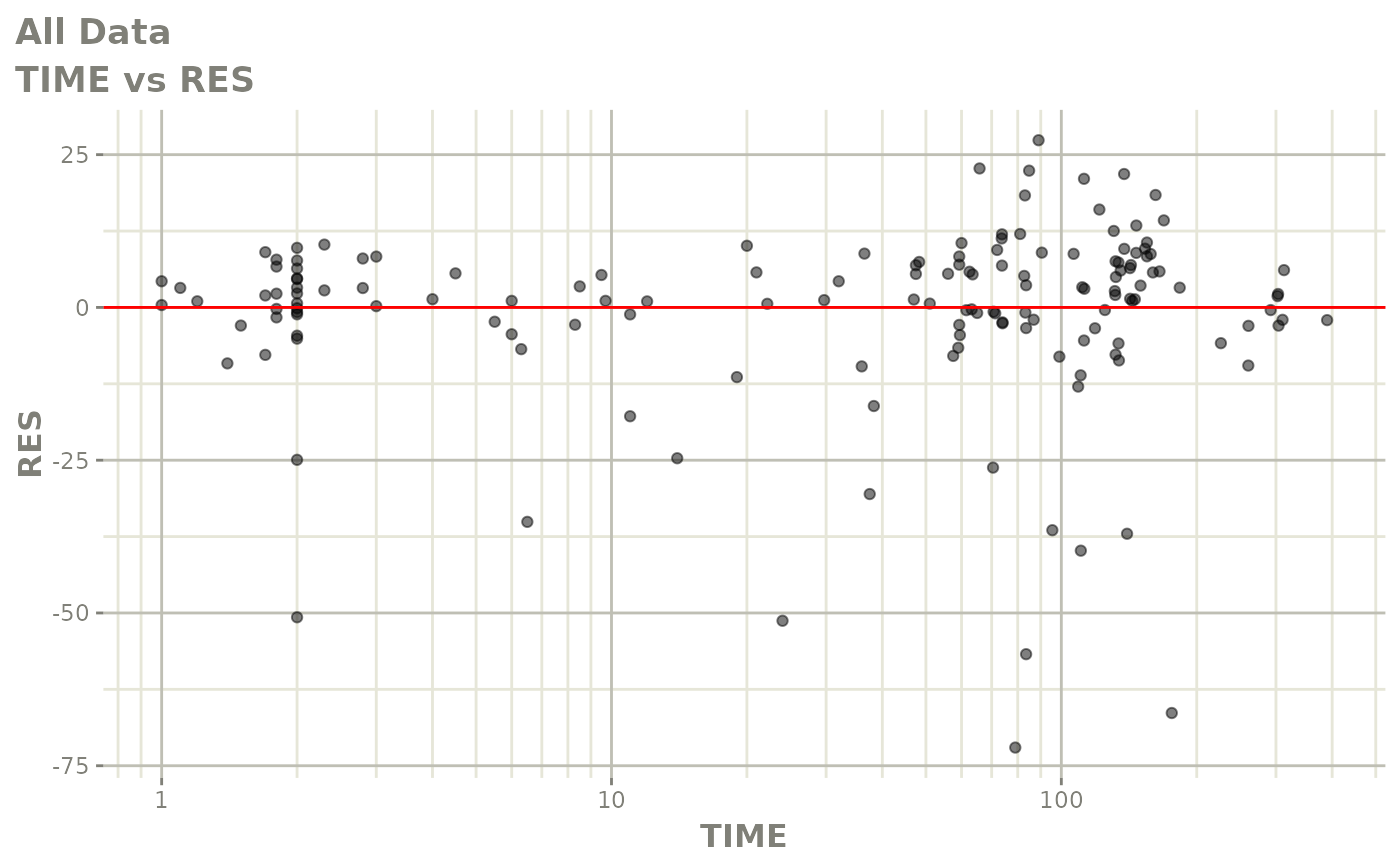
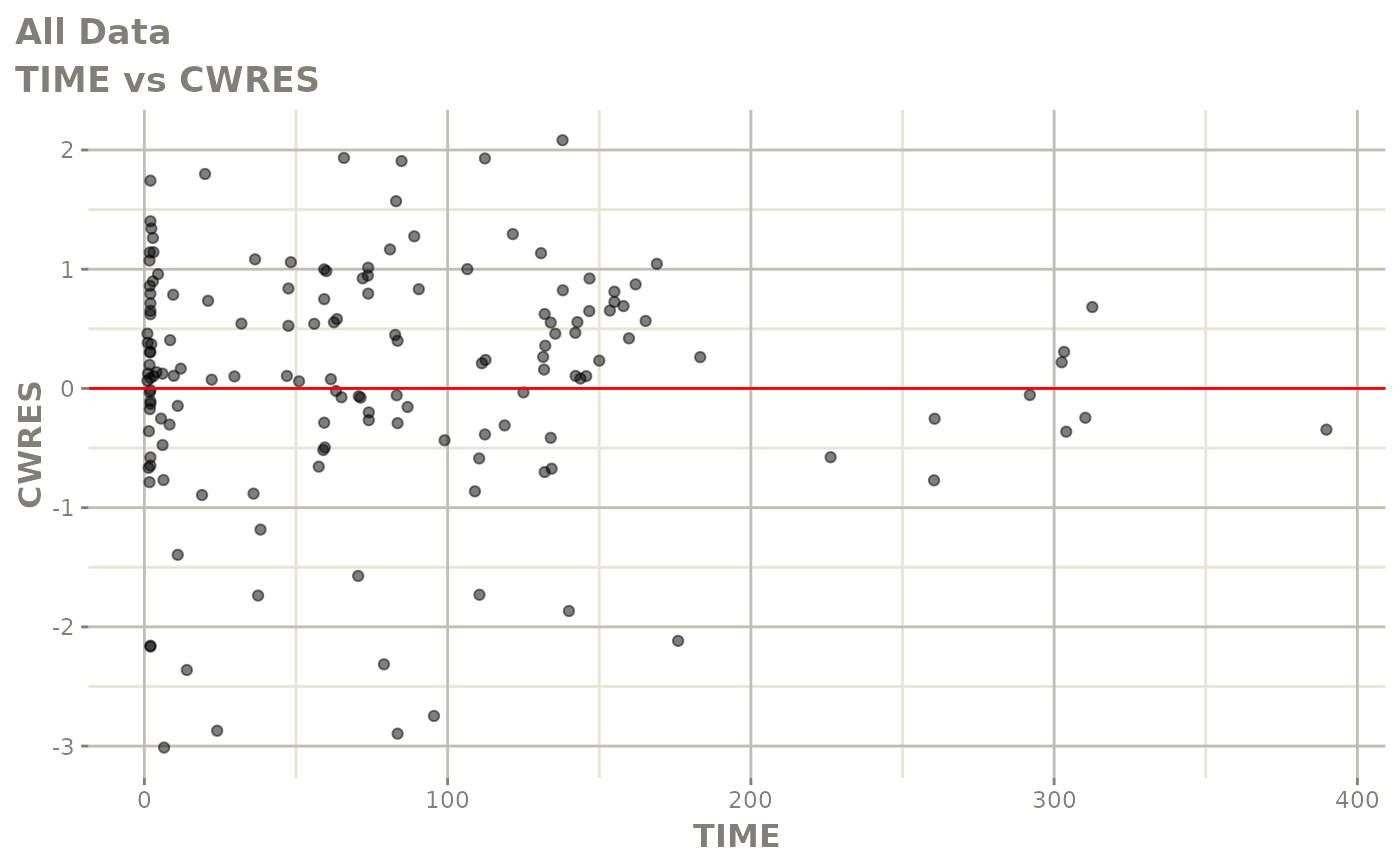
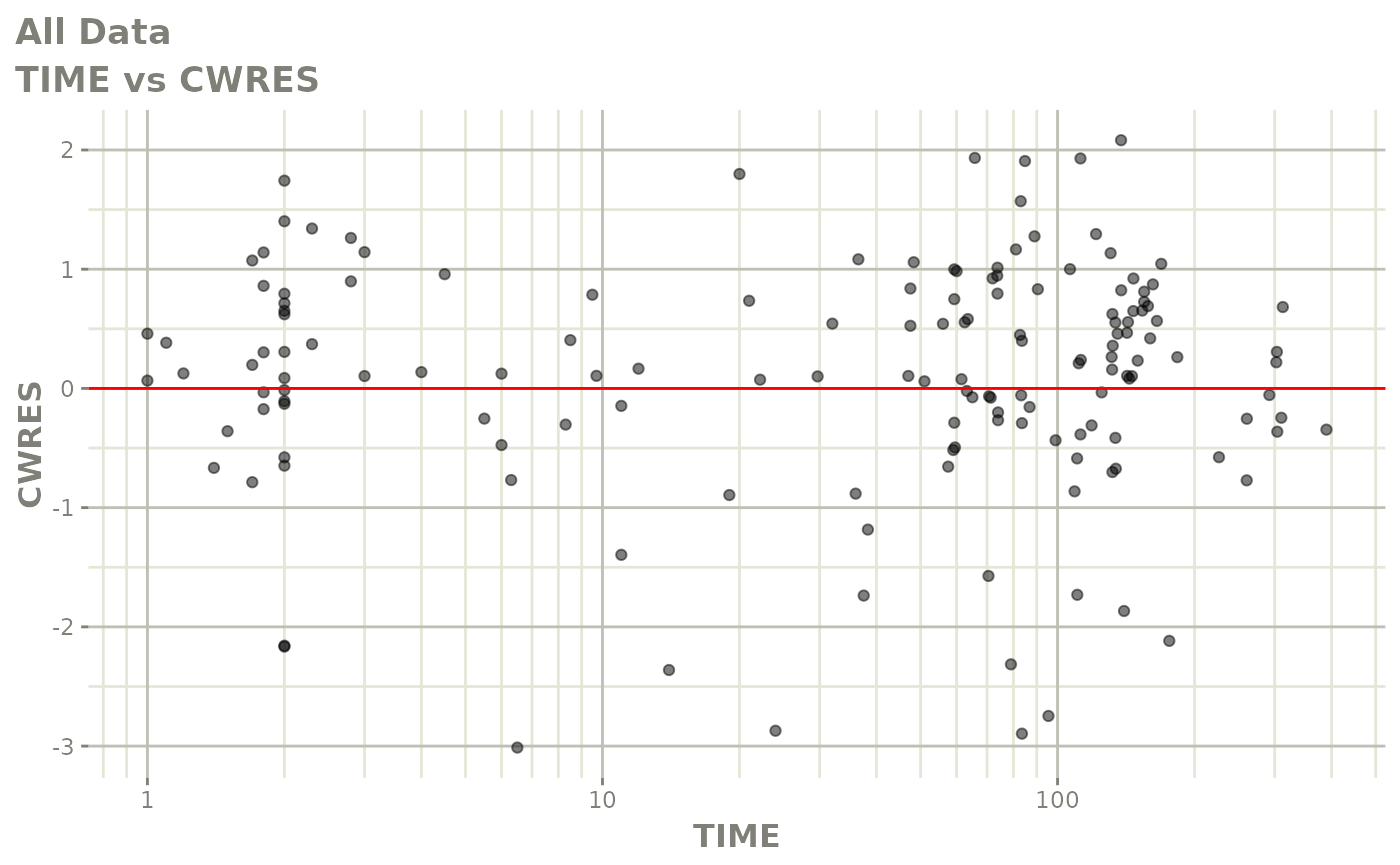
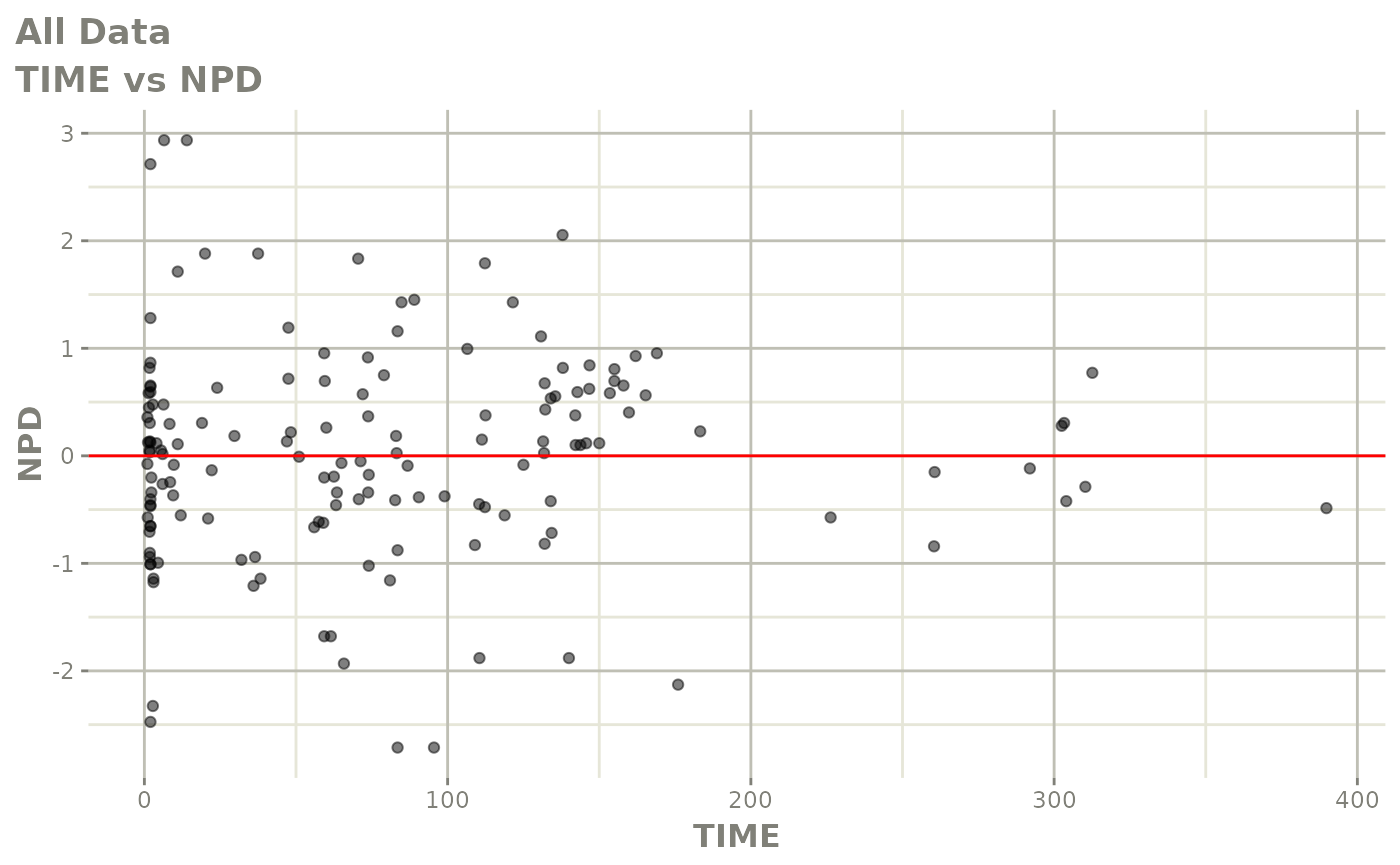
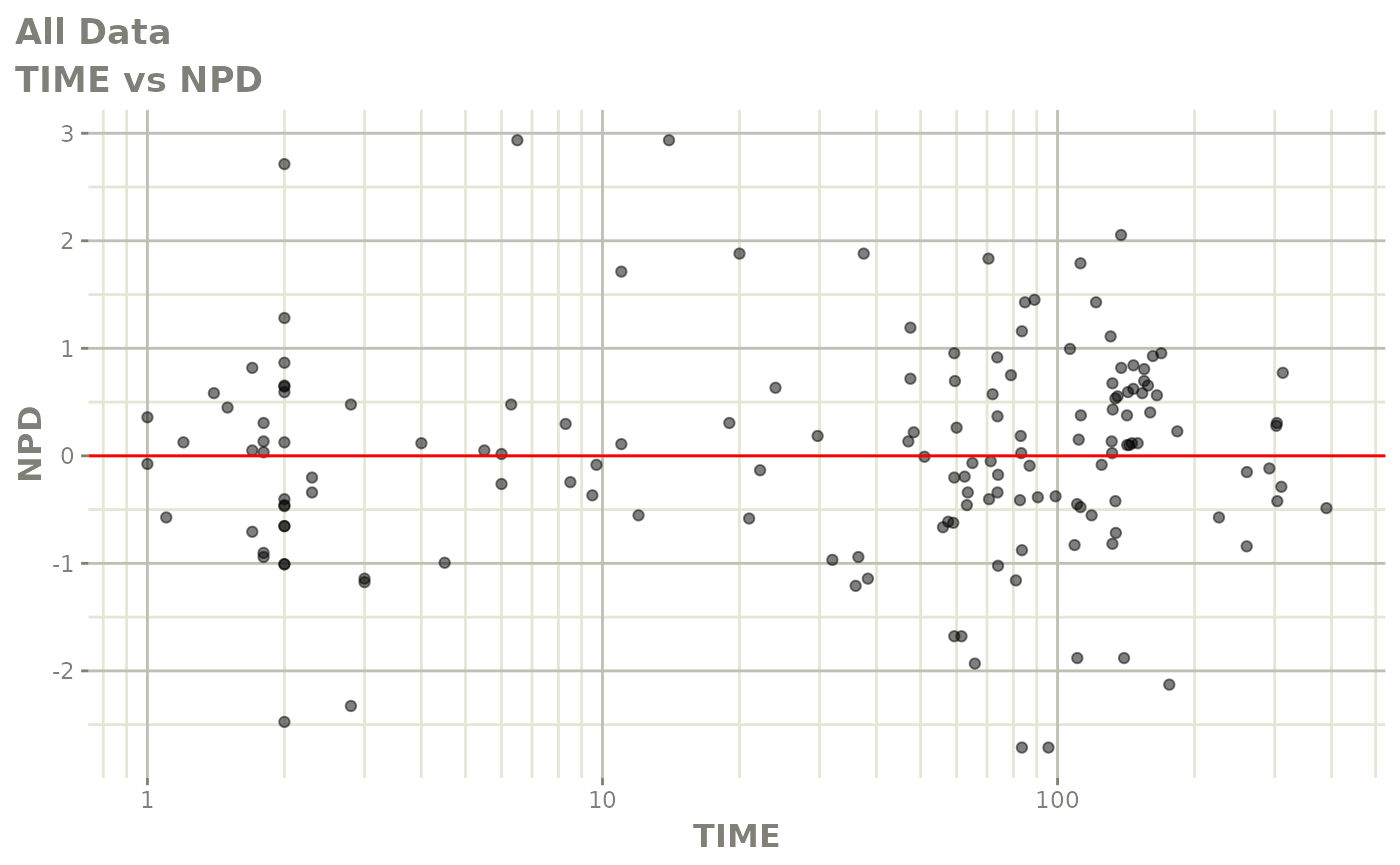
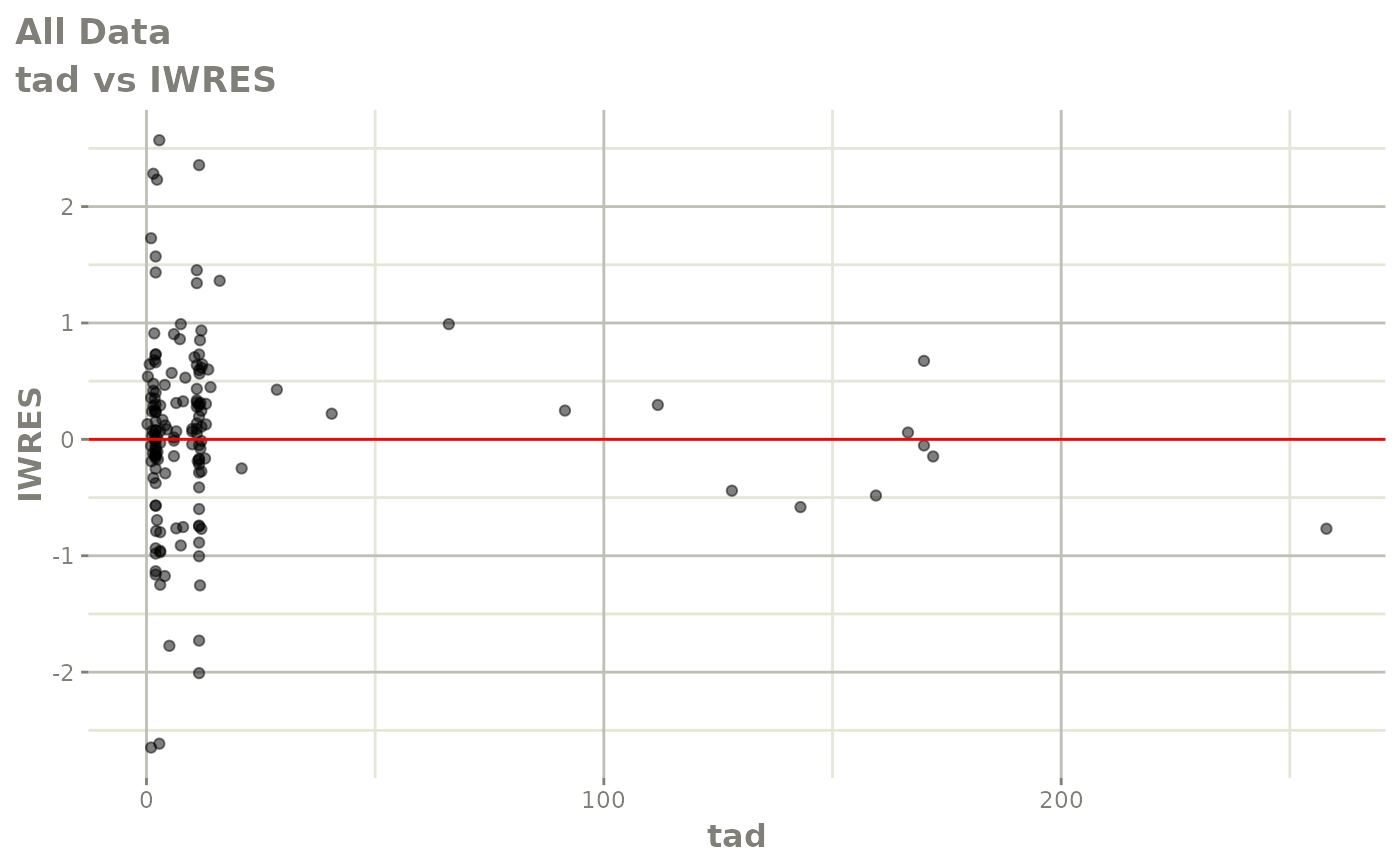
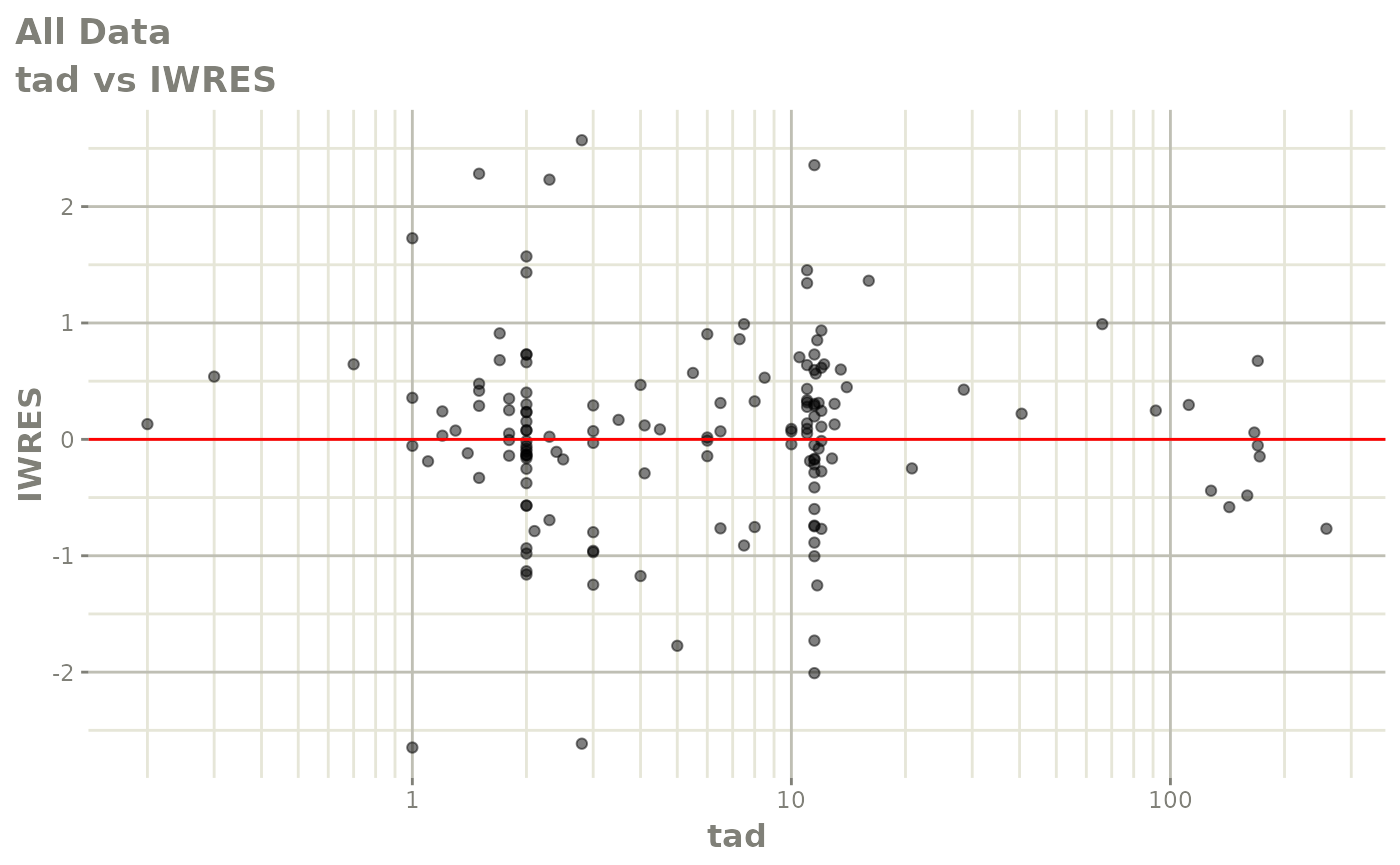
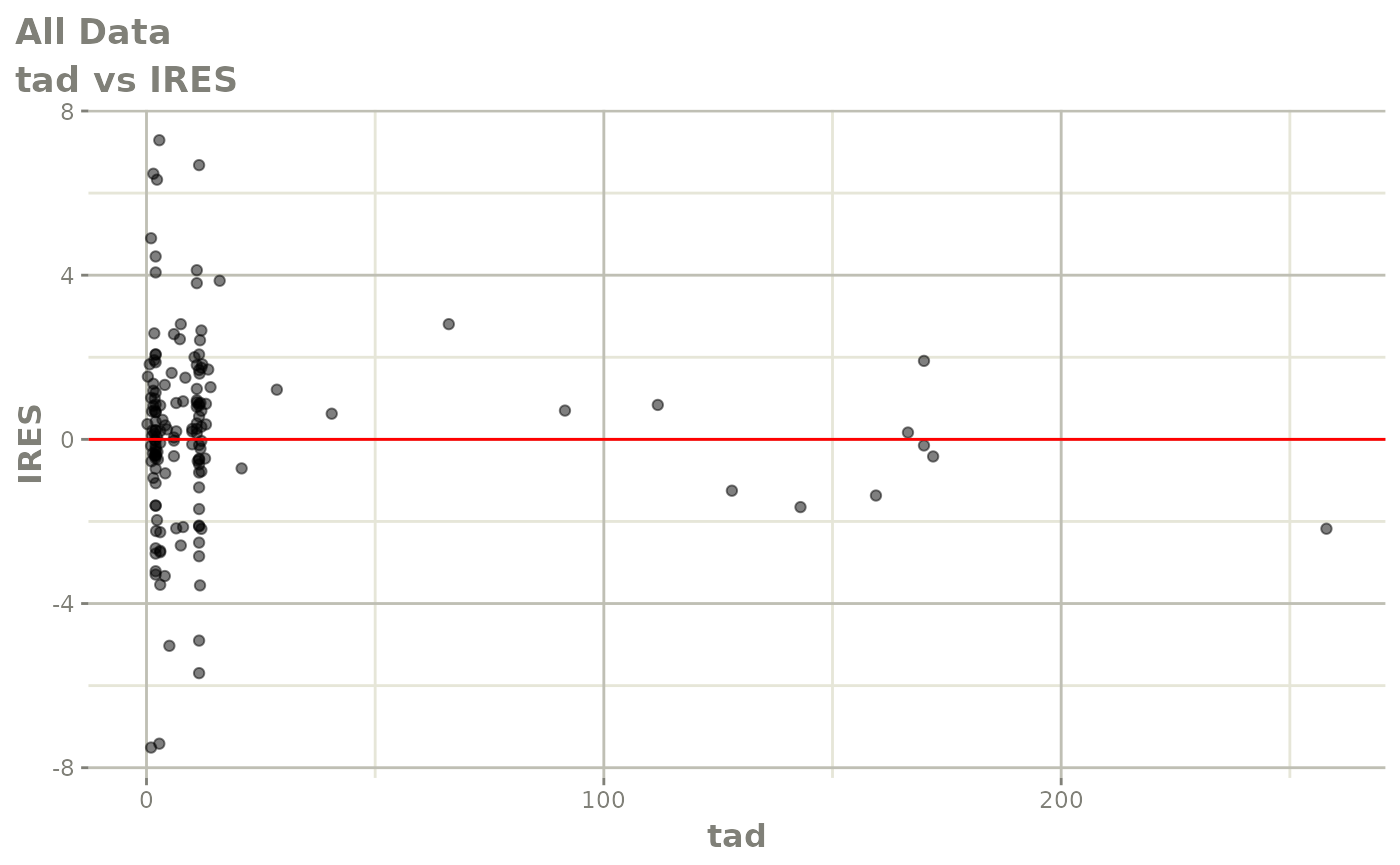
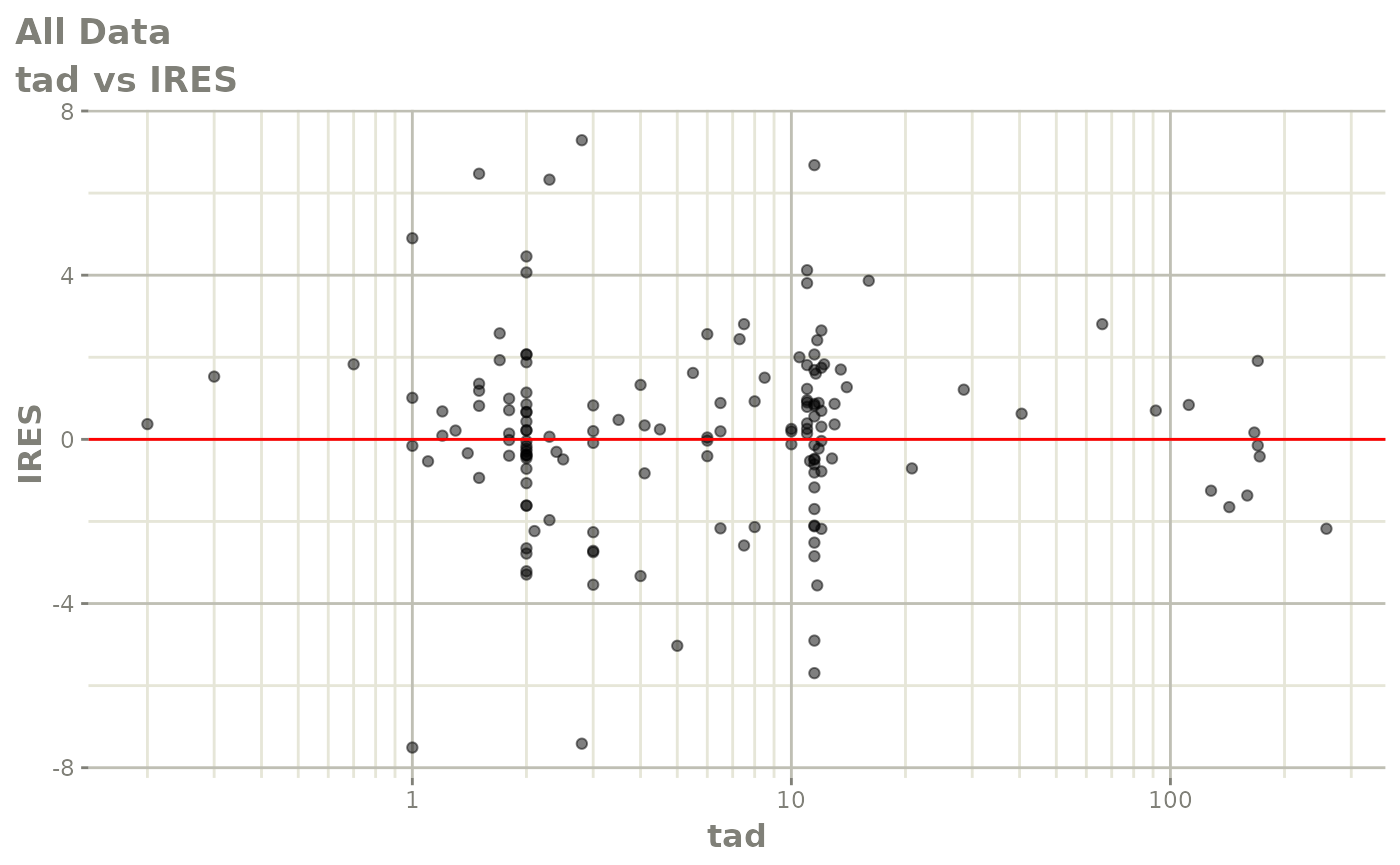
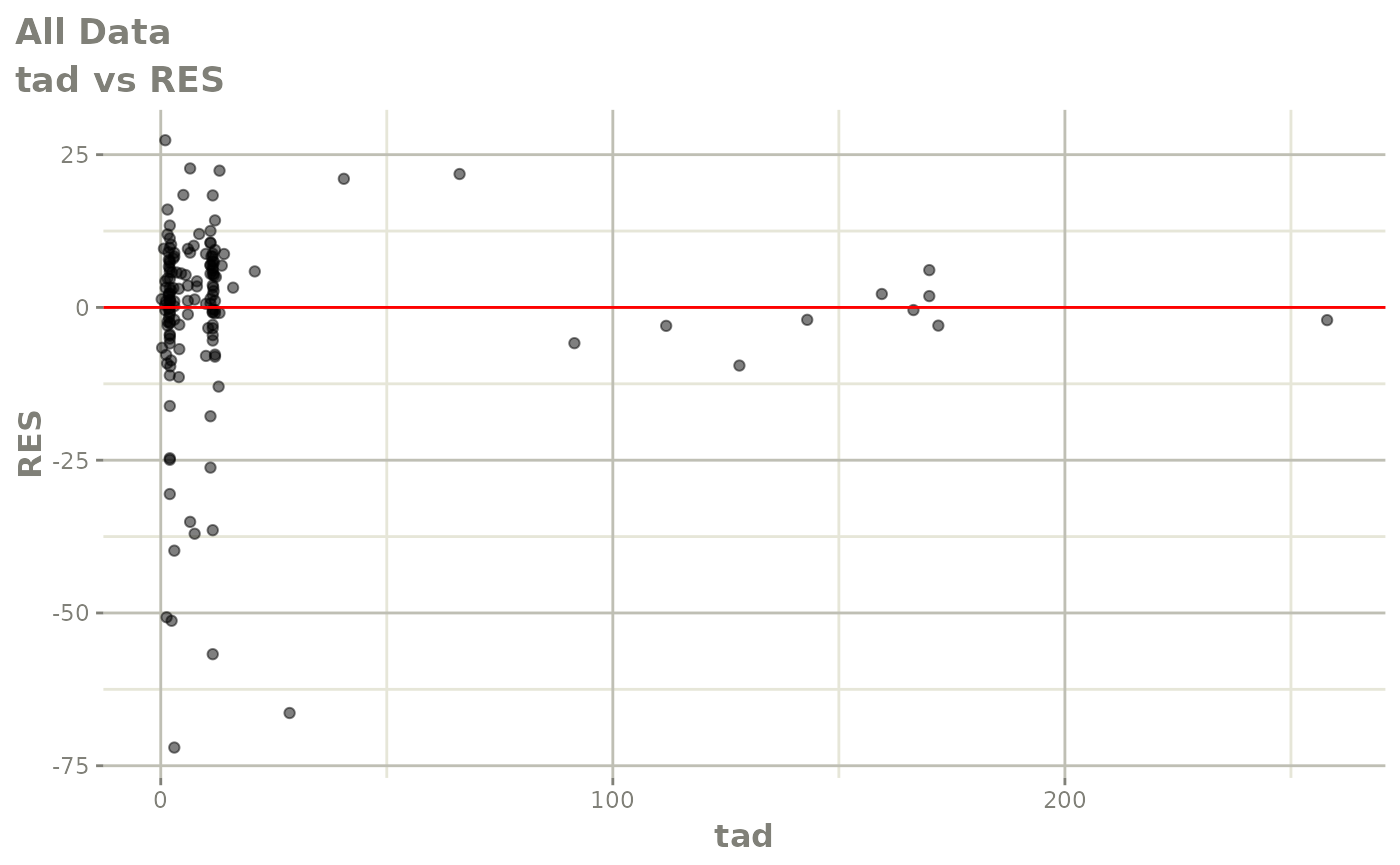
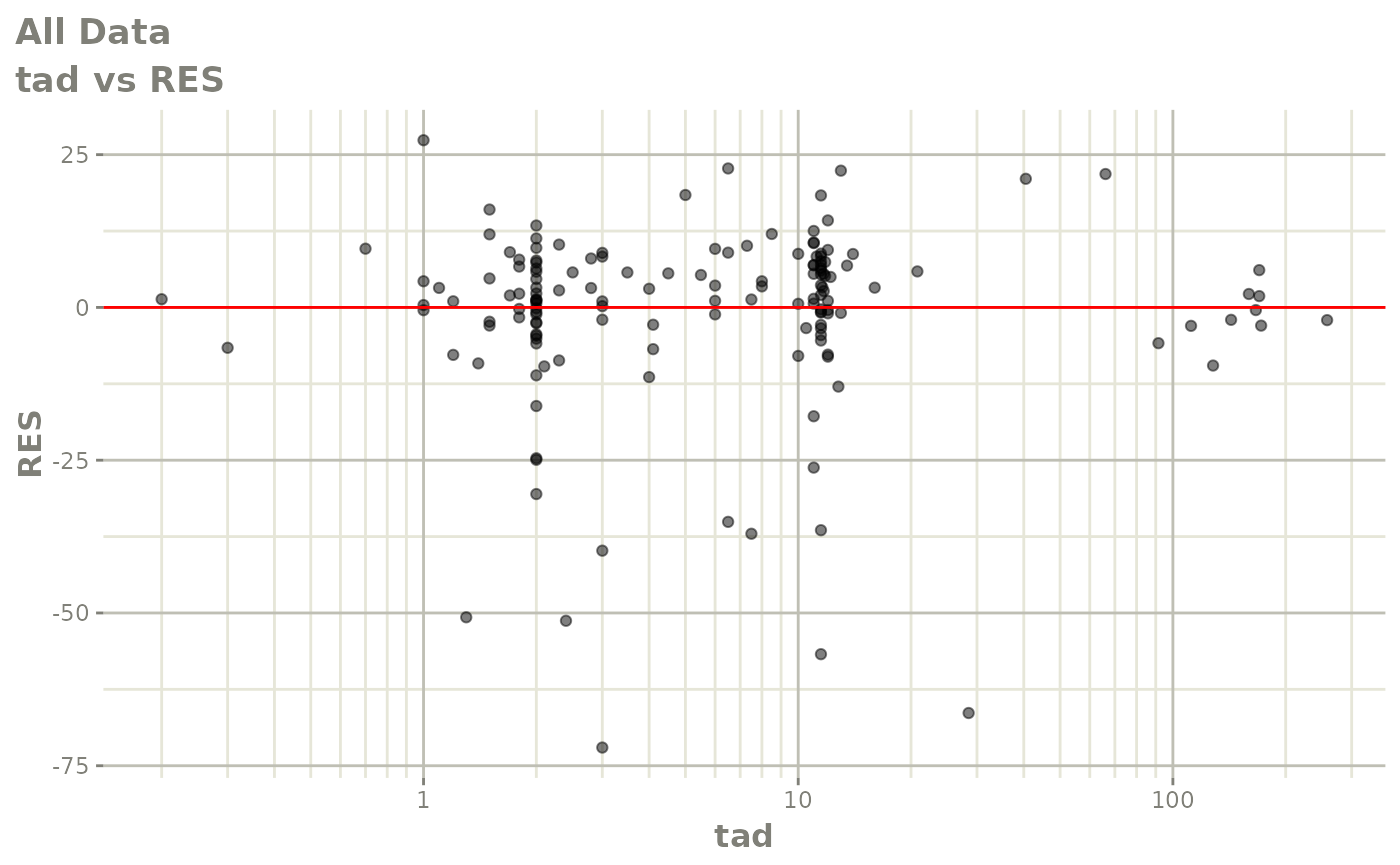
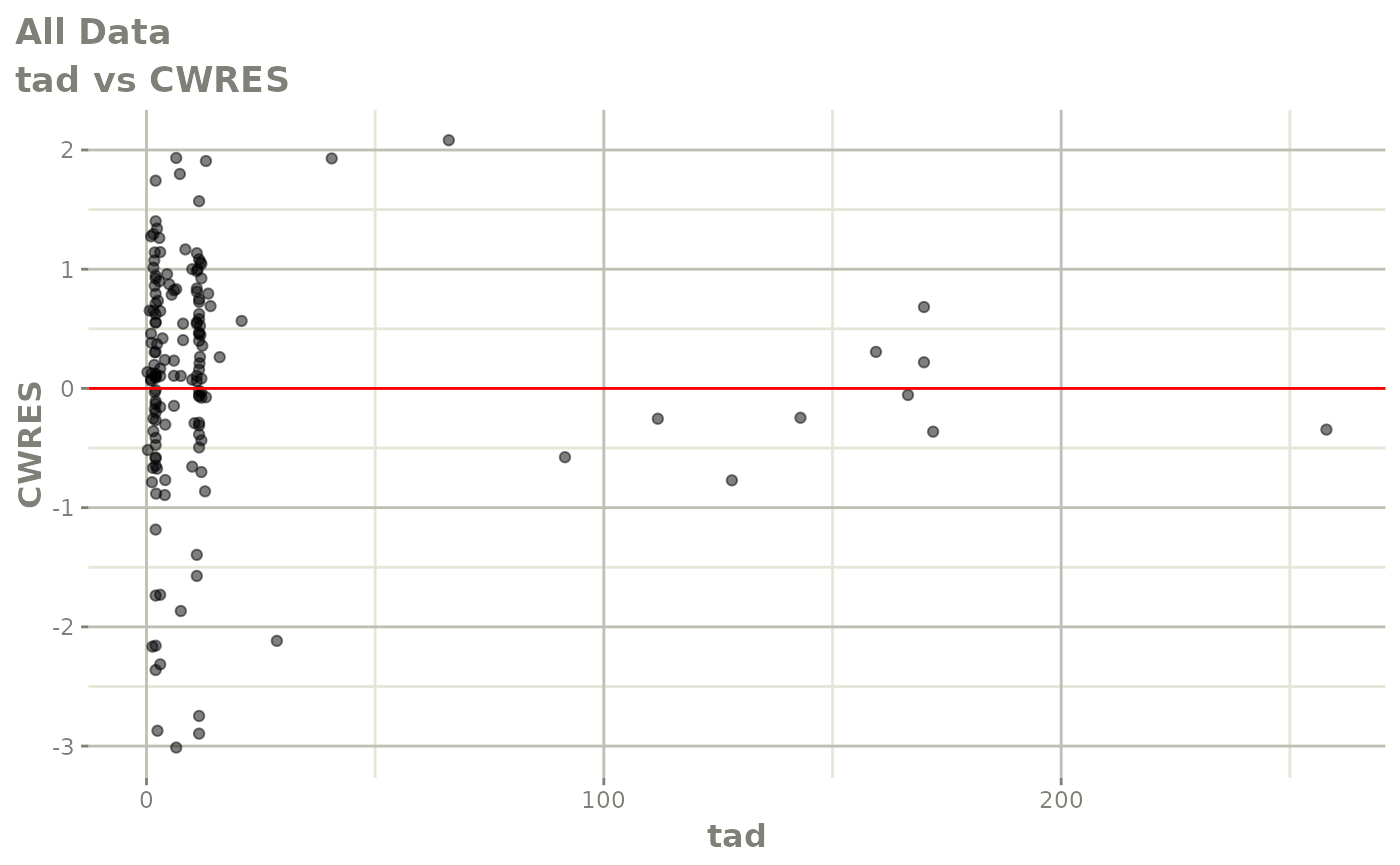
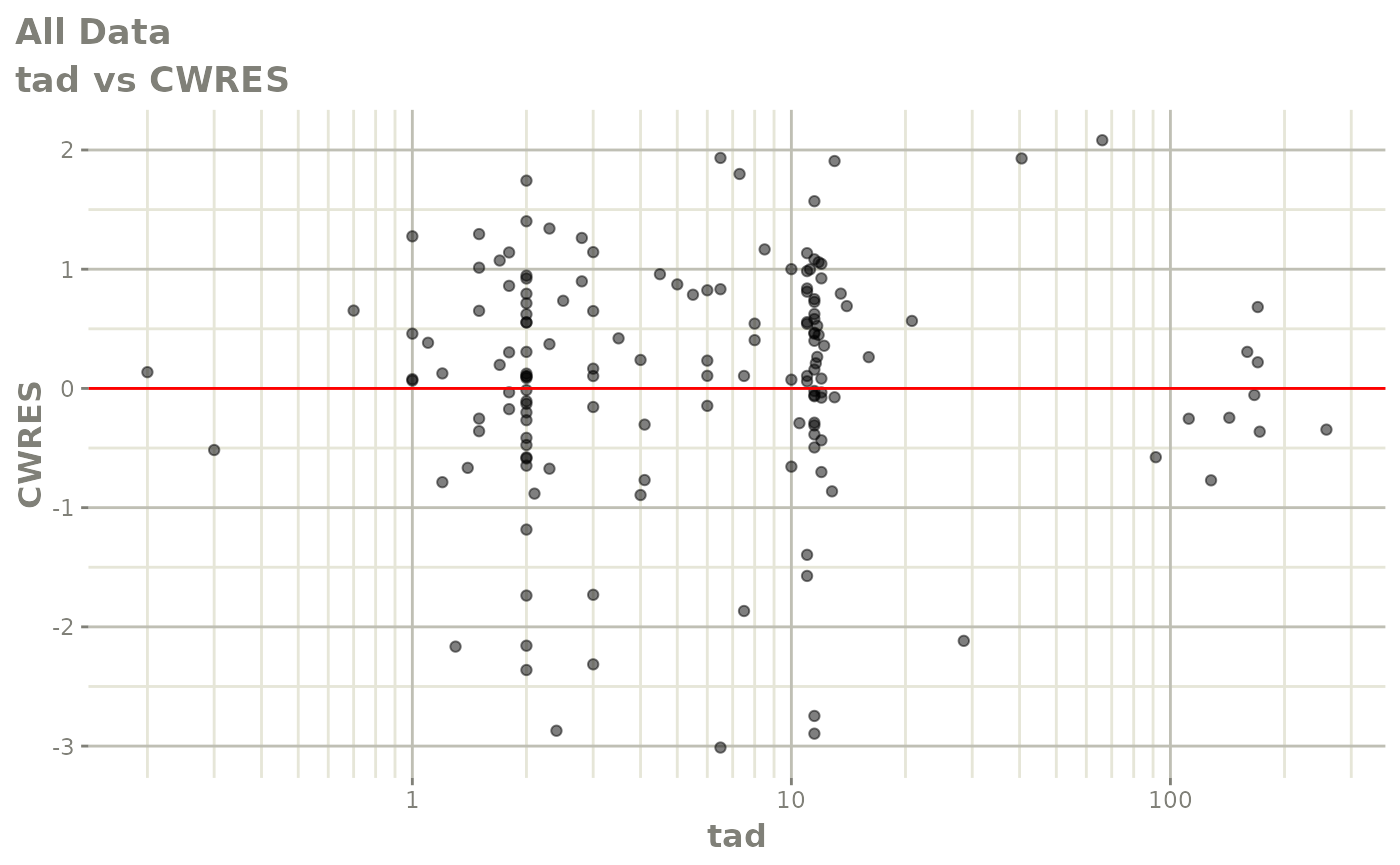
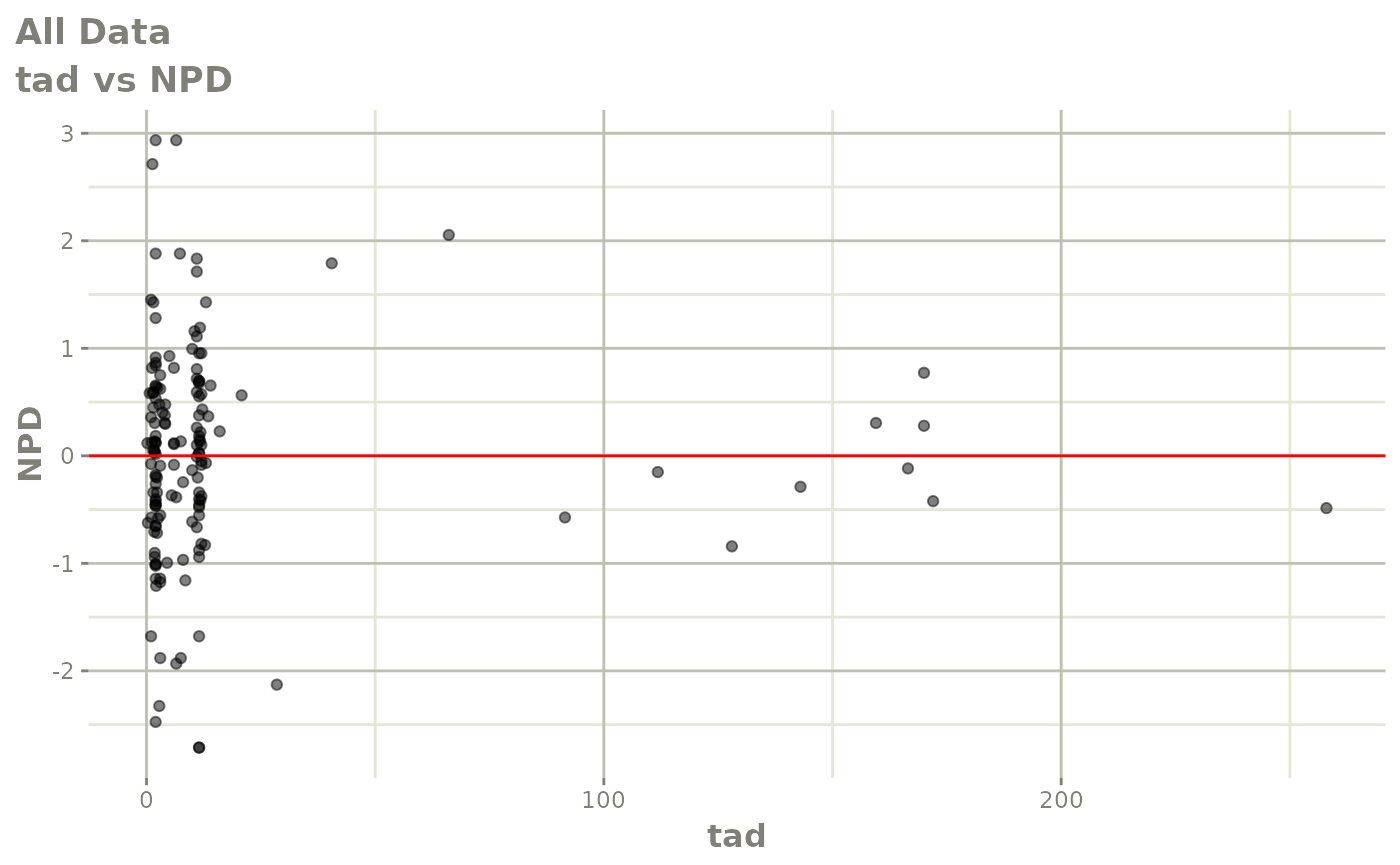
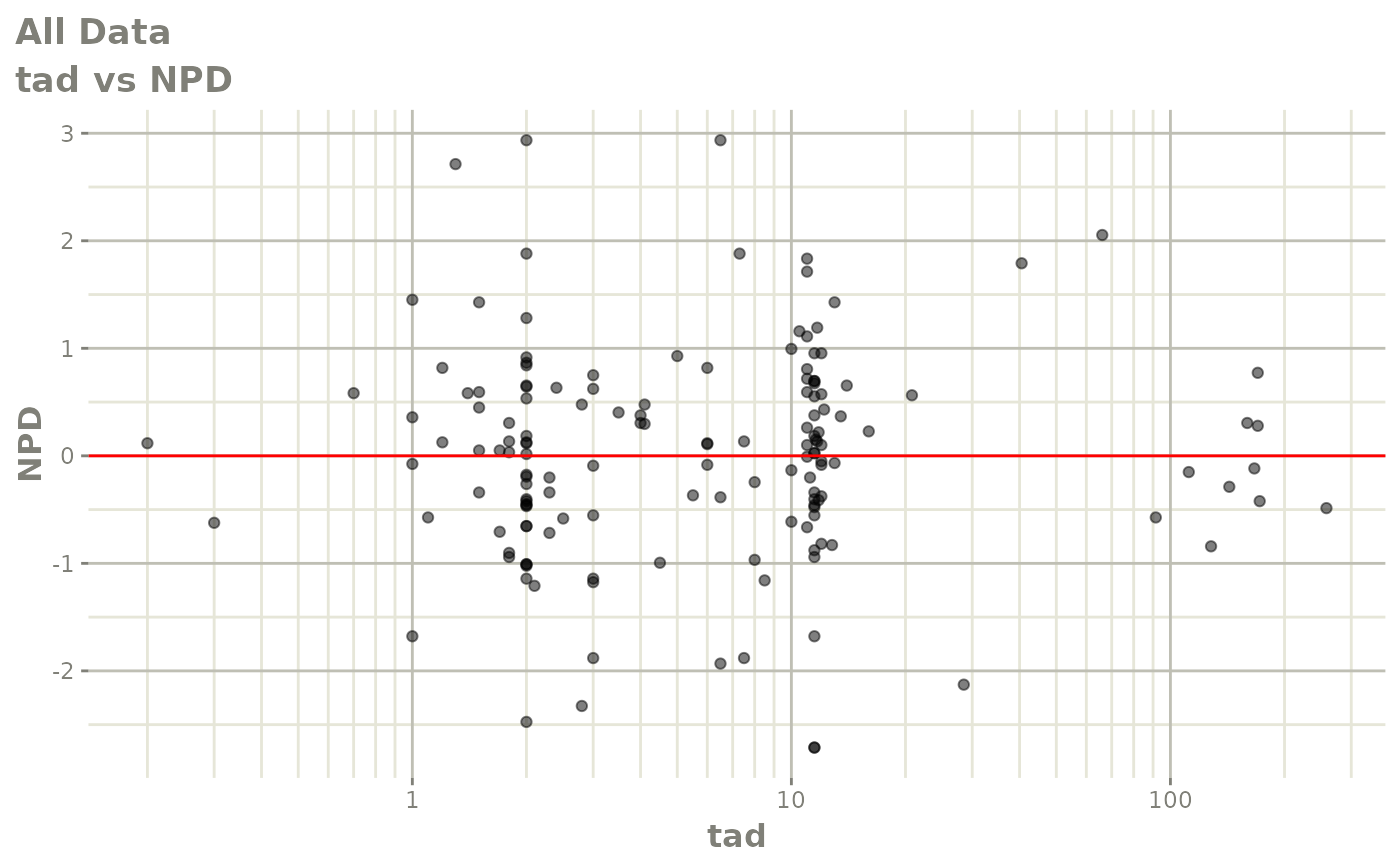
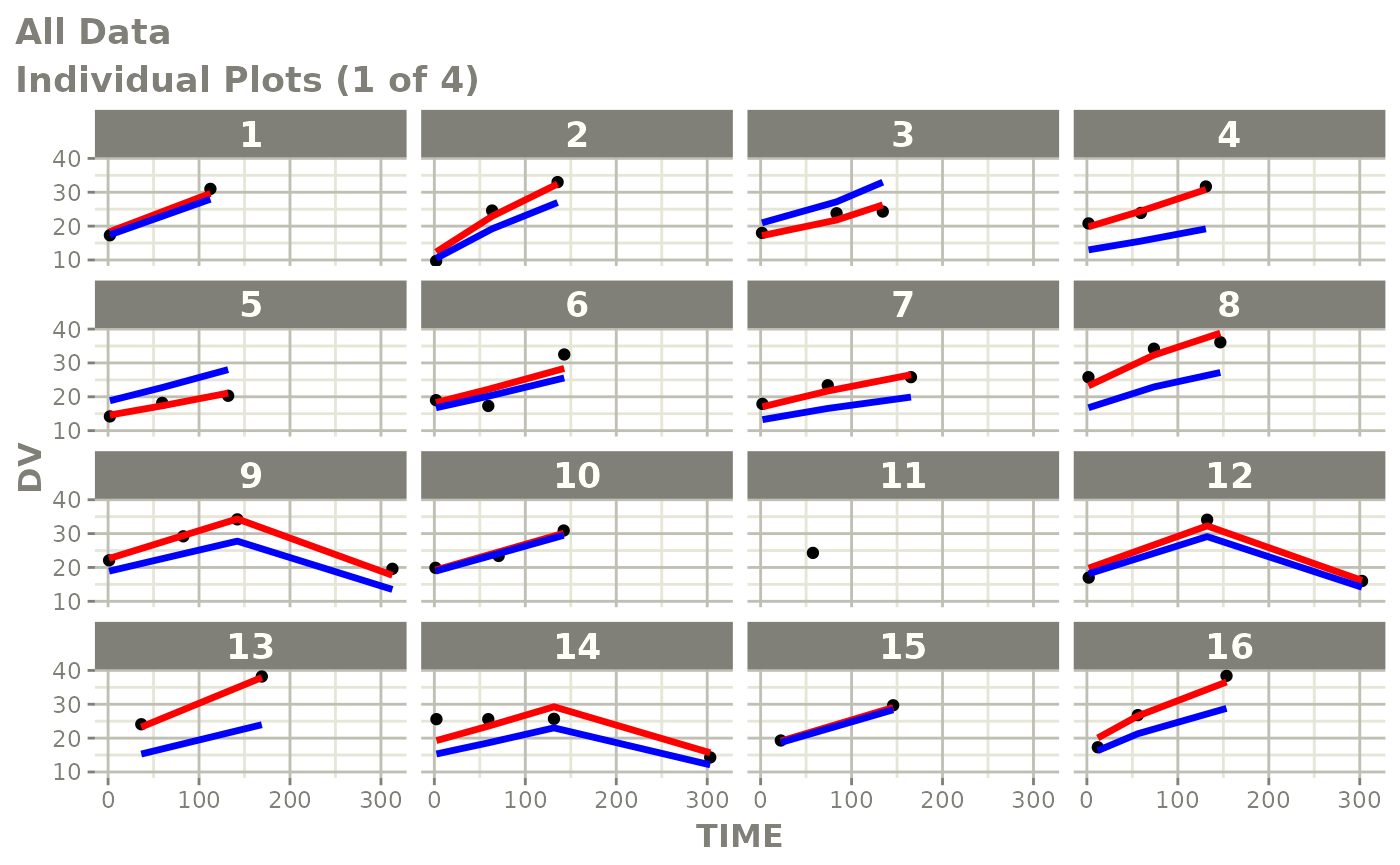
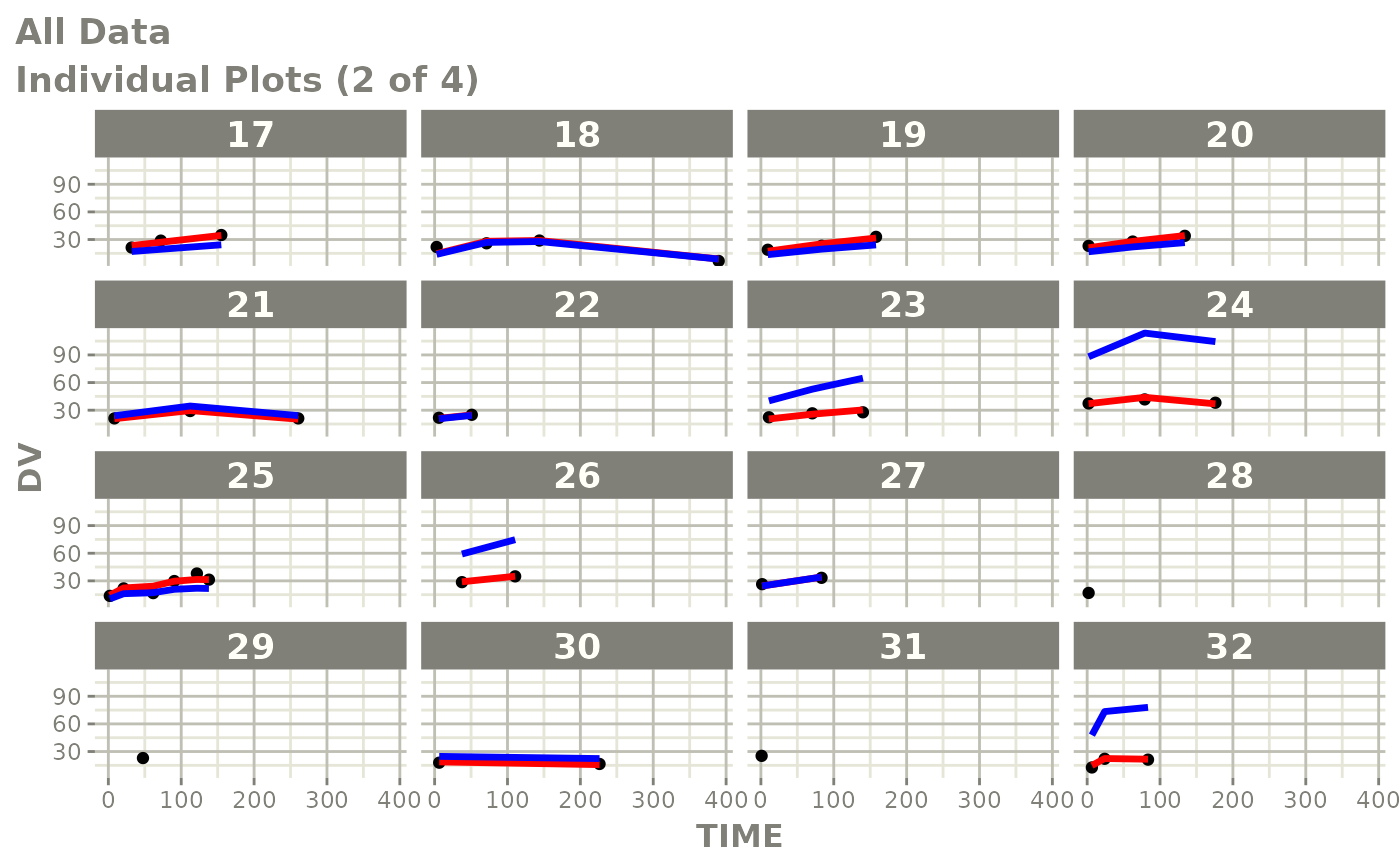
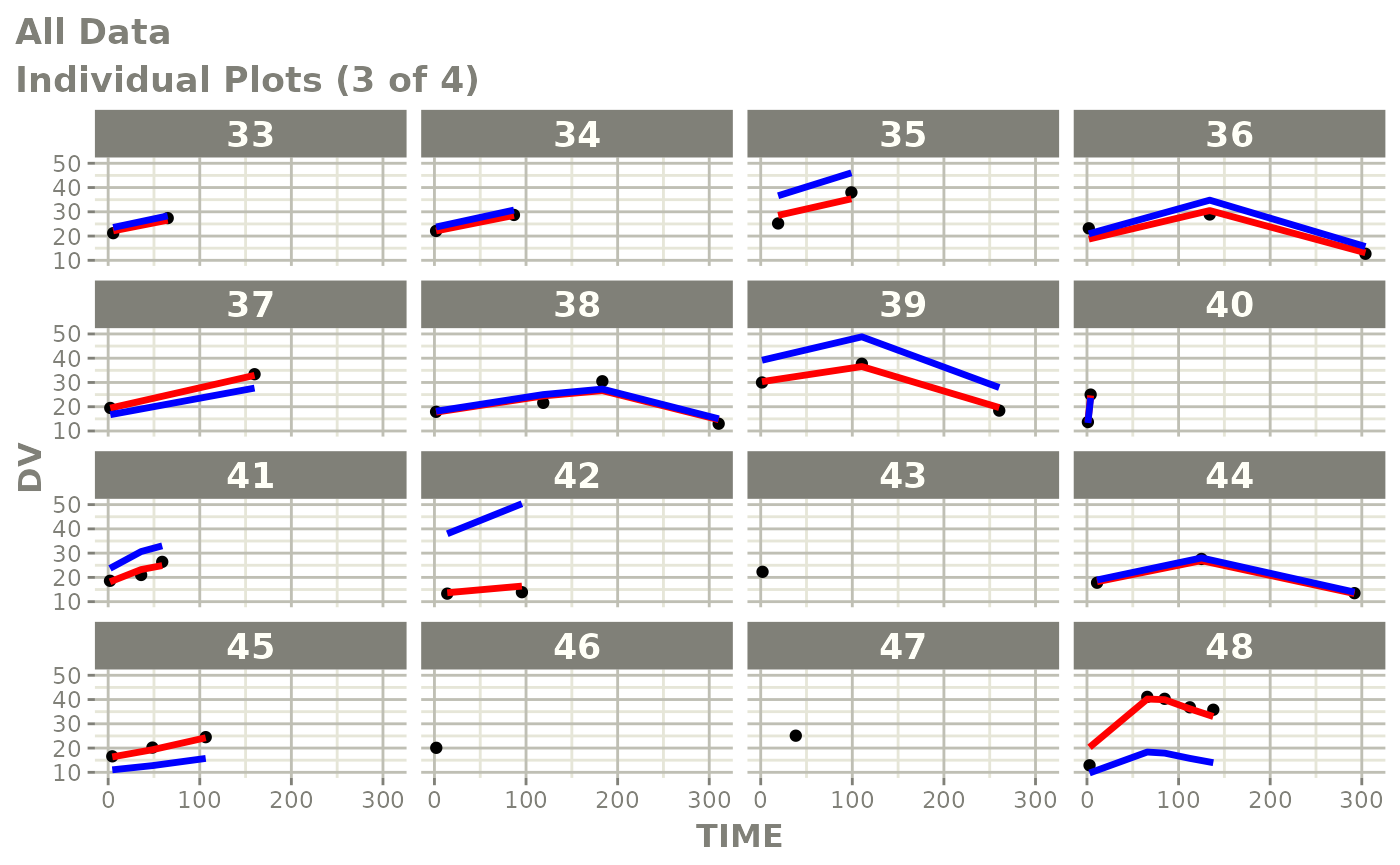
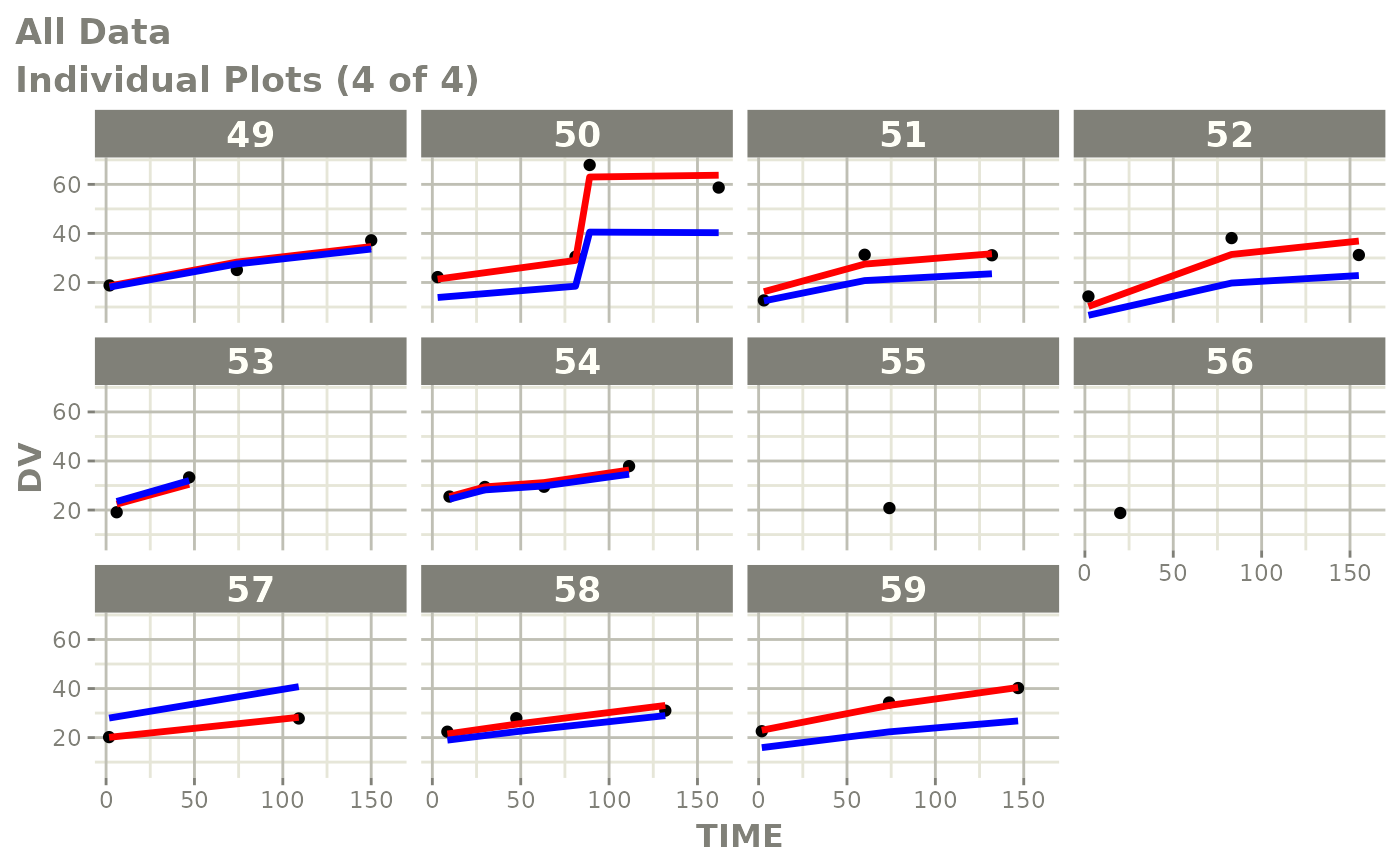
Those individual plots are not that great, it would be better to see the actual curves; You can with augPred

